Rural Celebrating Life
Eden Project’s Sir Tim Smit
Cairngorms National Park

Rearing British Beef
Gareth Wyn Jones The nation’s favourite farmer

Going for gold Ambitious young jockey Harry Cobden
Behind the scenes Prepping for HOYS
Gardening The benefits of bugs
Surnames History and origins
Autumn & Winter | Issue 13 | £3.99 5 036056044311


WELCOME
We’d love to hear your thoughts on the magazine or topics you'd like to see in future issues. Email us at countrystoremag@molevalleyfarmers.com
Published by Salt www.saltmedia.co.uk for Mole Valley Farmers
Copy manager Sarah Barclay sarah.barclay@molevalleyfarmers.com | 01769 576220

© 2019 Mole Valley Farmers. All rights reserved. No part of this publication may be reproduced or transmitted in any form or by any means without permission. In addition permission must be obtained before any part of this publication is stored in any form of retrieval system. No responsibility can be accepted by Mole Valley or Salt Media or contributors for any action taken as a result of information contained in this publication. The views expressed in this publication are not necessarily those of the publisher or editor. All prices shown are inclusive of VAT where applicable and correct at time of going to print. E&OE. Stock availability cannot be guaranteed in your local store, please call to check availability before travelling.
Competition winners from last issue
£100 worth of Cuprinol paints Nicola Miller (Devon). Manhattan four seater dining set Carolyn Hill (Devon). £100 of Lazy Jacks clothing Sue Culley (Cornwall). £100 of Vedoneire Clothing Louise Ainsley (Northumberland). £100 of Weird Fish Clothing Andrew Thomas (Leicestershire). If you are entering more than one competition in the magazine, please send multiple entries in a single envelope. For competition T&Cs visit: www.molevalleyfarmers.com/terms-conditions
One of the things that we rural dwellers share is being tuned in to the seasonal changes.
We can’t fail to notice the first hint of rust coloured hues spreading through woodlands in early autumn or the inaugural crunch of morning frost when we're up and out with the dogs.
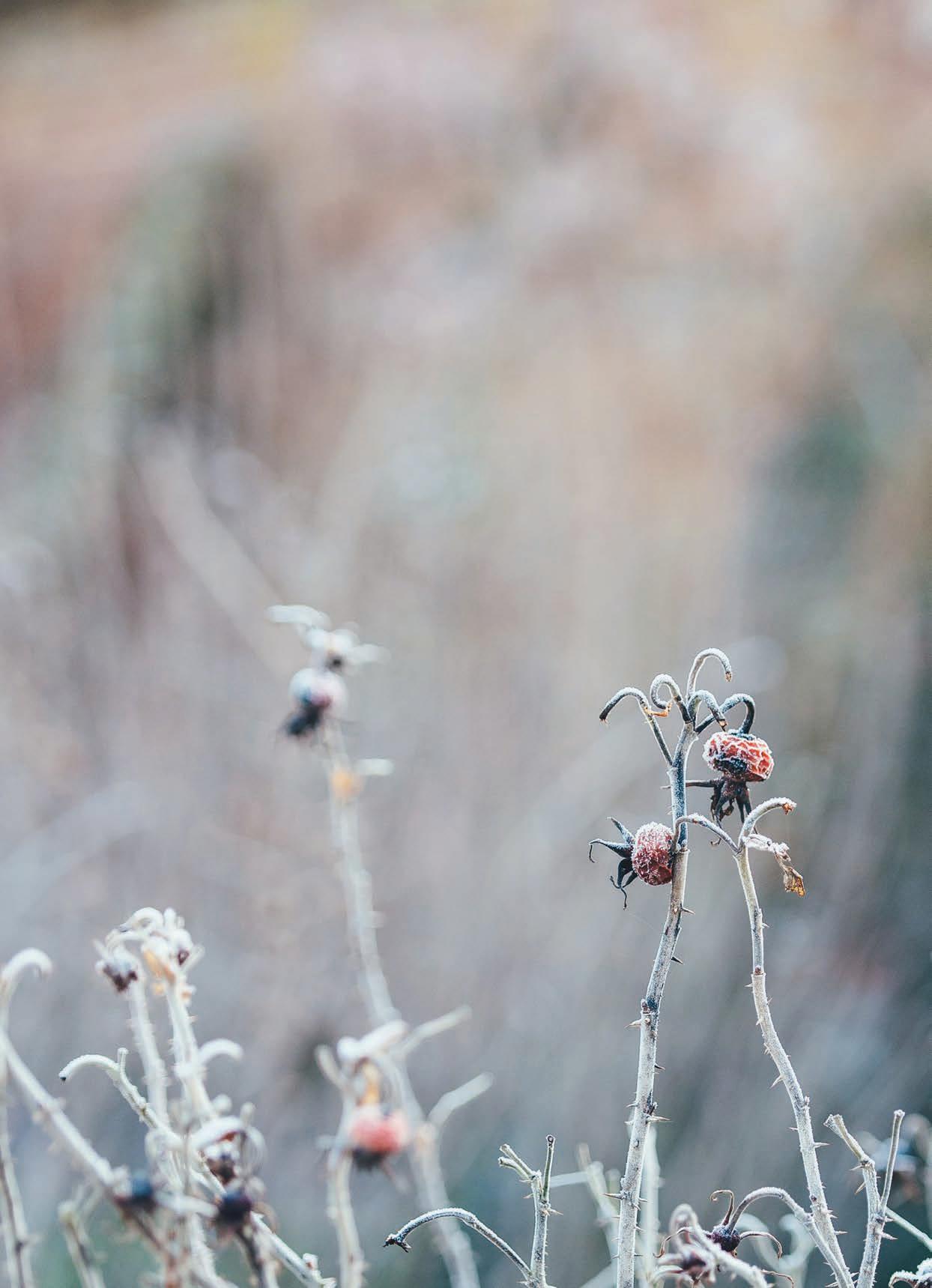
Farmers are even more aware of the seasons and temperatures so, in this issue, we take a look at what the recent extreme weather patterns have meant for those who work the land and rear animals on it.
We also meet some interesting folk: astonishing jockey talent Harry Cobden, the Eden Project’s Sir Tim Smit and Welsh sheep farmer (and social media star) Gareth Wyn Jones all make fascinating interviewees.
Show jumper and producer Vicky Smith reveals what it takes to prepare for and perform at Horse of the Year Show (‘exhausting and exciting’ seems to cover it) and we discover more about how bugs benefit our gardens, as well as learning about the history of surnames. There’s loads more of course – from keeping goats to looking after pets in winter – alongside fabulous products, competitions and vouchers.
Enjoy the read – and the season.
Julie Edwards
CONTENTS Season's Journal Seasons' Eatings 6 Reindeer Roundup 6 Supermarket Savvy 7 Consider This ... keeping goats 8 Rural Portrait Farming Life Through A Lens 10 The Interview Eden Project's Sir Tim Smit 12 Lifestyle Perfect Prezzies 16 A Traditional Festive Feast 18 Will it be turkey, beef or goose this year? Bloomin' Lovely 22 Cosy Home 23 Gardening Benefits Of Bugs 24 Why we need creepy crawlies O, Christmas Tree 28 Low-down on the fabulous fir Outdoors Cairngorms National Park 30 Weathering The Storm 32 Extreme weather and UK farmers Equine The Young Farmer Going For Gold 36 Successful young jockey Harry Cobden Show & Tell 38 Vicky Smith reveals how she prepares for HOYS Take 3 ... horse clippers 40 Winter Wish List 42 Inspiring gifts for riders and horses Farming Gareth Wyn Jones 44 Meet the nation's favourite farmer Inside Information 46 The spy inside the herd Beefing Up Britain 50 What does it take to produce top quality beef? Sharing The Load 54 Farmers don't have to struggle alone In The Balance 58 The pros and cons of rewilding Countryside Matters 60 Rural news and issues Smallholding The Smallholder 64 Beware of your body language Simon's Smallholding Season 66 Country Life Showtime 68 Mole Valley Farmers hits the road National Treasure 70 The history of the National Trust Watch The Birdie 73 Fantastic feeders for your garden Curious Britain Say My Name 76 What's the history of your surname? Christmas Crackers 80 Wild and wonderful festive traditions Eye Spy Pick Of The Season's Clothing 82 Pet Care Ask The Vet 86 Country Canine's Dream Diet 88 Pet Store 90 Store List 92 Find your money off vouchers at the back of the magazine

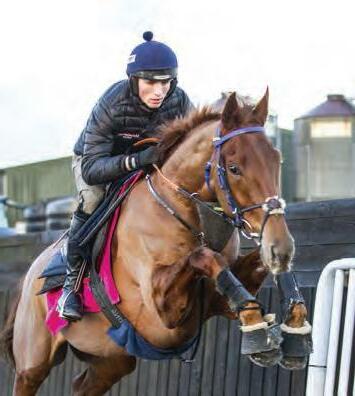
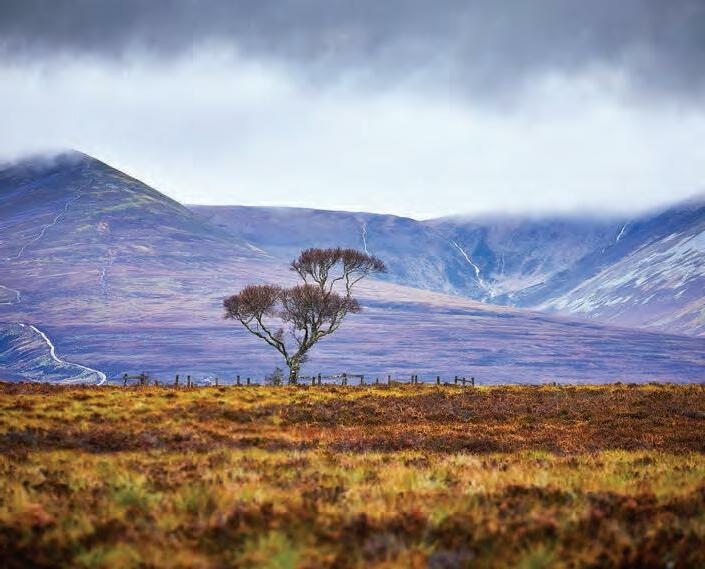








12 50 8 30 38 44 60 70 36 80 24 Turfpix ©National Trust Images/Chris Lacey
Autumn & Winter SEASON’S JOURNAL
Seasons’ eatings
The glut of spring greens and summer fruits may be over, but there is still plenty of British-grown produce to enjoy – especially the autumnal harvest. Here's what's in season:

Reindeer
ROUNDUP
Straining to hear the tinkle of Santa's sleigh and hoping to catch a glimpse of reindeer racing over rooftops is part of the excitement of Christmas Eve for children all over the world. Santa's unique mode of transport is part of seasonal folklore, but the first reference to the Arctic-deer delivery service appears in Old Santeclaus, an illustrated children's poem published in New York in 1821.
November
Swede (until March)
Bramley apples (until March)
Jerusalem artichokes (until March)
Brussels sprouts (until March)
Kale (until February)
Parsnips (until March)
December
Leeks (until April)
Chestnuts (until January)
Did you know ...
January
Cauliflower (until March)
Rhubarb (until July)
February
Purple sprouting broccoli (until April)
Reindeer hairs are hollow, which insulates them against the cold. Wild reindeer could be seen in Scotland a millennium ago, but they became extinct around 800 years ago – probably as a result of hunting and climate change.
Reindeer were reintroduced in the Cairngorms in Scotland in 1952 and there's also a permanent herd at a Cotswolds farm.
Both male and female reindeer have antlers, which are shed every year. Tendons in reindeer’s feet make a clicking sound when they walk, allowing them to communicate in blizzard conditions.
6 CountryStore www.molevalleyfarmers.com
SUPERMARKET SAVVY

risk of salmonella in Lion eggs is testament to the work carried out by egg producers. The measures they've taken, from vaccination of hens through to improving hygiene on farms and better transportation, have dramatically reduced salmonella levels in UK hens.’
Baffled by the bevy of labels which adorn the products lining the supermarket aisles? Many are purely a marketing ploy: the likes of 'farm fresh', 'country style' and 'natural' really mean very little at all. In a quest for quality, we've waded through the meaningless marks and sought out the stamps worth looking out for.
Red Tractor
The iconic Red Tractor pops up on everything from beef to breakfast cereals. Independent inspectors conduct over 60,000 in depth inspections a year, only stamping the logo on products traceable to British farms which have met its standards for animal welfare, food safety, traceability and environmental protection. Currently, 75 per cent of British produce is Red Tractor assured.
The assessment is pretty rigorous. Suffolk duck farmer Ian Rix says: ‘When we have a Red Tractor assessor, they like to see a clean and tidy site and well-looked after animals. It means looking after the ducks through good welfare standards like proper ventilation, good straw, good care, regular daily checks, attention to water, food and anything that makes a duck comfortable and happy.'
British Lion Eggs

The familiar British Lion mark guarantees full traceability of hens, eggs and feed. It also assures the birds have been vaccinated against salmonella.

The scheme has been credited with the drastically reduced presence of the infection in UK eggs over the past 21 years. This success was recognised in 2017 when the Food Standards Agency ruled Lion marked eggs safe to eat runny and even raw.
Heather Hancock, Chairman of the FSA, said: 'It's good news that now even vulnerable groups can safely eat UK eggs without needing to hard boil them, so long as they bear the British Lion mark … the major reduction in the
Since the scheme's launch in 1998, more than 130 billion British Lion Eggs have been sold and 90 per cent of UK eggs bear the stamp.
MSC Certified
The MSC is on a mission to end overfishing. For over 20 years it has worked with scientists, fisheries, seafood producers and brands to promote sustainable fishing. Devon chef, food writer and MSC ambassador Mitch Tonks says: 'The MSC is currently the only organisation in the world that is able to certify a fishery as being fished sustainably. I would always urge consumers to buy fish with the MSC tick, especially when choosing species that are harvested in volume like cod and haddock.'
The blue fish logo denotes that fish is either wild or comes from an independently assessed sustainable fishery (and is traceable and correctly labelled). It certifies over 25,000 products worldwide.
Soil Association

Alongside spearheading agricultural campaigns and supporting innovative farming initiatives, the Soil Association certifies food items as organic. This reassures consumers that the produce (and every step of its field-to-fork journey) has met the organisation's criteria. High animal welfare, environmental and wildlife protection standards are all part of the package.
RSPCA Assured

This government acknowledged standard denotes that the farm animals have been treated with compassion and respect. The 3,000 farming and food production members meet very high welfare standards. The whole of the animal's life is taken into account: feed, water, space, light, bedding, transport and humane slaughter.
The positive impact on the industry is clear to see. A study found that, compared to standard chicken meat production, those reared under the RSPCA Assured scheme showed an 82 per cent reduction in hock burn, a 65 per cent lower mortality rate and a 46 per cent reduction in foot pad burn.
CountryStore 7 www.molevalleyfarmers.com
SEASON’S JOURNAL Autumn & Winter
Logos on food packaging are supposed to reassure us about the quality of what we are about to eat, but do we really know what they mean?
Keeping
GOATS
Sociable and entertaining, goats are sometimes
Why keep goats?
Some smallholders keep them simply as pets; their good nature and gentle demeanour makes them great companions. Others rear them for their flavoursome milk, cheese and meat.
Which breed is best?
With a variety of breeds to choose from it’s important to pick carefully, depending on your reason for keeping them.
If you’re seeking a friendly pet, go for a castrated male as they are more easily managed than female goats.
If size is a consideration, pygmy goats are a popular choice. Don't let their small stature fool you however; they can be a bit of a (good natured) handful and prone to jumping over walls and gates. For dairy, popular breeds include: Golden Guernsey, British Saanen, AngloNubian and the British Toggenburg.
If you want to rear a goat for meat, the Boer breed or a Boer cross is a good place to start.
Kingston Smallholding on the Isle of Wight is a good example of a smallholding that rears goats for meat and dairy. The team recommends Golden Guernseys as a good beginner's goat as they are small, docile, laid-back and easier to look after.
For fibre, consider the angora (pictured) for its long curly hair (mohair) which is a valuable commodity. They need to be shorn twice a year.

CONSIDER THIS ...
Check your space
Whichever breed you choose, a suitable pen and well-fenced exercise yard are essential. Goats need plenty of room to browse, access to windproof shelter and, where necessary, a clean area for milking. Other necessities include plenty of natural light, hayracks, feed and water buckets.
Be prepared
Keeping goats can be costly, especially those being reared for dairy or meat, as they require extra feed and maintenance.
You'll need to provide year-round quality hay, fresh water, clean shelter and general up-keep such as hoof trimming. If you’re keeping a female goat for dairy purposes, factor in the extra time needed to milk it twice a day.
No kidding
Goats need plant-based nutrition to stay healthy and like to eat trees and shrubs but aren’t natural grazers – so don’t invest in a goat as a lawnmower.
Happy herds
Goats are herd animals, so it’s best to keep them in pairs or in a community. They're social and like to communicate with one another, so be prepared for occasional noisy bleating. As a highly domesticated animal they also enjoy frequent human contact.
For more tips and advice on keeping goats, visit the British Goat Society (www.britishgoatsociety.com).
STORE Goat
Keep your goats healthy and happy with this essential kit
Corn Bin CHEVRON-CIRCLE-RIGHT
840L £263.68
Normal price £292.98
630L £208.23
Normal price £231.37
420L £157.27

Normal price £174.74
Manufactured from pregalvanised sheet, these corn bins are ideal for indoor storage of animal feed, keeping it free from rodents and other contaminants



CHEVRON-CIRCLE-LEFT Footmaster with Violet 500ml £6.18 An effective formula for foot conditions in livestock. Concentrated spray application eliminates wastage, yet allows saturation of badly affected areas

CHEVRON-CIRCLE-UP Burgon & Ball Super Sharp Serrated Footrot Shear £12.18
CHEVRON-CIRCLE-LEFT Bar Feeder £18.12 10l lamb and kid feeding bucket featuring six bucket bar teats. Designed to fit over a rail or hurdle, allowing lambs or kids to drink from both sides

Lightweight and compact. Features heat-treated high carbon steel blades to aid grip and adjustable blade tension to improve cutting performance. Coated blades minimise the chance of rust while hardwearing resin handles ensure longevity

Chevron-Circle-Down MVF Goat Coarse Mix £8.40 A 16% protein molassed coarse mixture, fortified with vitamins and minerals. Use as a complementary goat feed

SEASON’S JOURNAL Autumn & Winter
9

10 CountryStore www.molevalleyfarmers.com
'One of the greatest collections of rural life ever captured on camera'
Portrait RURAL
FARMING LIFE THROUGH A LENS
It’s an evocative scene: Ivor Brock struggling through a blizzard with a rescued lamb in Dolton, north Devon. The photograph was taken in 1978 by the late James Ravilious whose work captured a centuries-old way of life – just as it was about to change forever.

Most of Ravilious' best-known images were taken between 1970-1990, but many could be mistaken for depicting the 1770s. They show an old-fashioned world where hedges were laid by hand and furrows dug by horse and plough.
Speaking to The Telegraph, playwright Alan Bennett explained why it was love at first sight when he saw the work of the photographer:
‘People haven’t polished themselves up for the photographs ... or done a quick run round with the Hoover. Nobody tidies up; nobody clears the pots; nobody is on their best behaviour. Ravilious knows instinctively that when people are on their best behaviour they are not always at their best.’
Ravilious lived among the farmers and village folk who became the subjects of his work. Undisturbed by this modest man and his lens, they allowed him to capture the hard work, stoicism and humour of their back-breaking way of life.
Although documentary in style, these photos – commissioned by Devon arts centre Beaford – are superbly composed and are considered to be one of the greatest collections of rural life ever captured on camera. They're preserved in an online archive and can be viewed at www.beaford.org/archive.
Ravilious didn’t indulge in sentimental fantasies of farming; no images of idyllic pastures full of skipping lambs are to be found. Instead, the photos show the reality of how things were: Archie Parkhouse and Ivor Brock hauling a sick ram through the fields in an old bathtub; a muck-splattered Olive Bennett emerging from her cowshed to greet her Red Devons, grinning through the few teeth she has left.
As Ravilious once said: ‘Everything was run down in the most delightful way. Everything was overlaid with a rich patina of life ... that texture of old cob and thatch and mud and muck and swearing.'
Do you have old photos of farming and rural life that you'd be happy to share with our readers?
Please email copies for possible use in the next issue to: countrystoremag@molevalleyfarmers.com
CountryStore 11 www.molevalleyfarmers.com
Photo: 'Ivor Brock rescuing a lamb in a blizzard, Millhams, Dolton, 1978' Photograph by James Ravilious © Beaford Arts digitally scanned from a Beaford Archive negative
Tim SmitTHE INTERVIEW
The Eden Project co-founder sees the second agricultural revolution coming at him ‘like a shotgun’ – but fears for the UK’s ability to grab the opportunity
Interview: Rosanna Rothery
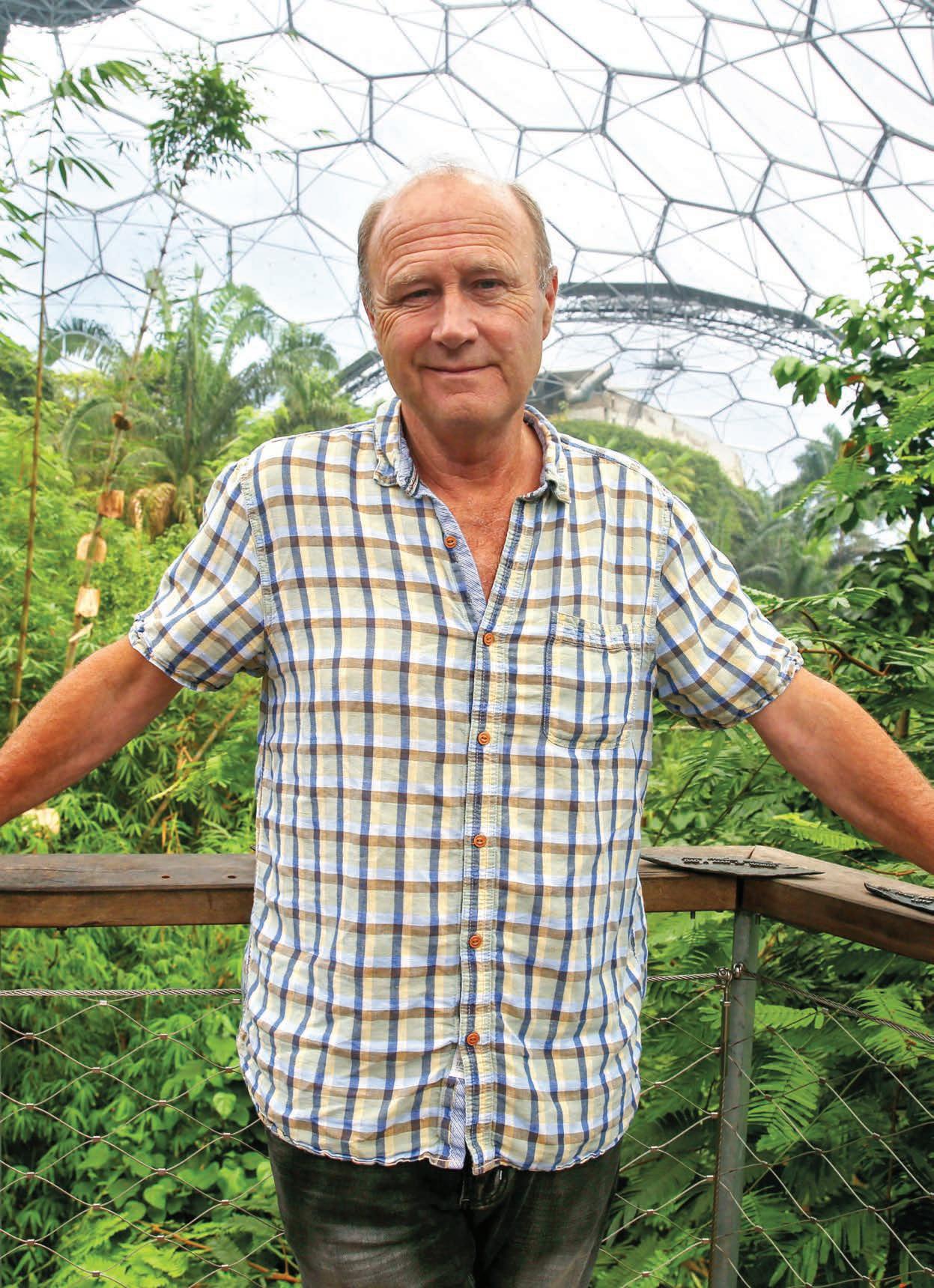
How do you feel about the future of agriculture?
I am fantastically excited by it and believe we’re on the verge of the second agricultural revolution.
It’s a world where we understand ‘land’ not just to be about food production but about a complete ecosystem of activities which includes the management and encouragement of soil fertility, biomass, biodiversity and carbon sequestration.
Who’s investing in this revolution?
It’s people like us at Eden and the really big-impact investment firms who’ll start to buy significant chunks of agriculture and then, I hope, create cooperatives.
We’re seeing it happen in America, Mexico and Australia – and it’s starting to happen at scale.
How does the agronomy degree at the Eden Project [more than 120 students are currently studying] differ from traditional agricultural qualifications?

It’s my belief that the agricultural and horticultural colleges of this country have let down the profession and have been let down by the ministry. You need to actually teach an entrepreneurial spirit and that’s been badly lacking.
Does the UK have the capability to be self-sufficient regarding food production?
Put it this way, if you were king or queen of an island nation, do you really think it would be sensible not to be able to feed the population?
How will the revolution play out?
I think there’s going to be a significant increase in localism and a significant increase in a mixed agronomy, where a much wider range of crops is encouraged and made available as we discover that diet and well-being require a wider food base.
The pleasure is in finding new income streams, new crops and new ways of using farms as centres of well-being which will revolutionise the rural economy.
How do you define ‘agronomy’?
It’s the love child of horticulture and agriculture and includes nursery and market gardening. I find the phrase rounder; it covers more things.
Can this self-sufficiency be achieved by our current line-up of MPs [as of September 2019]?
I thought that was going to be a nice question but you spoilt it! Do I think it is possible? Yes. Do I think it’s possible with our current politicians? With the exception of Michael Gove, no, I don’t.
I don’t think any of the current crop of politicians have a vision of what the sunny uplands would look like for our nation. They’ve got completely hooked on whether they are, or are not, part of something else without realising that, for most of us, it’s nice to be inspired by a vision that sees us becoming food and energy independent.
CountryStore 13
THE INTERVIEW
‘The National Lottery should make a half a billion pounds available to buy land across Britain’
Do you think people understand the value of healthy sustainable food ?
I think most people are blissfully unaware that their bodies are such brilliant machines that they make Ferraris look primitive. They feed crap into them – I’ve done it myself. I do know a lot about nutrition because I was a diabetic and I basically fed myself out of it.
We’re fundamentally ignorant. We pay less for food now than we did in 1953 and we disrespect the land, which is why so much of our country that has been in deep agriculture has so few harvests left in it. How do we get the next generation involved?
I think the National Lottery should make a half a billion pounds available to buy land across Britain that then belongs to the nation. It could be leased out at really reasonable rates to young people who want to get into market gardening and growing. That would revolutionise the countryside.
Is Britain equipped for the change?
I’m seeing this revolution coming at me like a shotgun. I deal with Chinese people who are putting the environment at the centre of what they are doing and saying: ‘The reason we have an agricultural businesses is because of British research and British training. How is it possible that you have a government that doesn’t recognise that you were once world leaders and that you are going to lose that?’
What future do you envision for farmers?
Farming faces a fabulous opportunity – if we can rid ourselves of the boring spokespeople and make people realise that it’s the most brilliant rock ’n’ roll thing. We depend on it; we are nurturing our life forces. And subsidies ...?
We need to get rid of the word ‘subsidy’. I think it has done a lot of damage to people’s perceptions. If we are going to pay payments, let’s pay for carbon sequestration, biomass and biodiversity. Stop pretending we’re subsidising but ask on the nation’s behalf: ‘Will you look after the land for the nation?’
A PIECE OF EDEN
Tim Smit’s vision of turning a disused Cornish china clay pit into a re-creation of a rainforest is now a thriving UK tourist attraction which pulls in millions of visitors from across the globe.
The Eden Project with its biomes (the world’s largest conservatories), sculptures, gardens and play areas has put environmental conservation, education and sustainability at its very core. It’s a mission and message that’s being exported all over the world as Eden works with partners in China, Australia and New Zealand as well as closer to home.
Eden Project North
Plans are afoot for Eden Project North, a major new attraction in Morecambe, Lancashire. The destination will combine indoor and outdoor experiences, connecting people with the internationally significant natural environment of Morecambe Bay.

‘The support we are getting is marvellous,’ says Tim. ‘We’re really excited and expecting to be up and building, probably inside the year. It’s going to be one of the major places on the planet and I’m really happy about that.’
Foyle River Garden Project
The Eden Project is also working with The Foyle River Gardens in Derry~Londonderry to explore ways to sensitively rejuvenate a site extending from the Foyle Bridge towards Culmore Point.
‘We’re linking estates together to create a magnificent series of walks and outdoor spaces,’ says Tim.

Junction 27
The Eden Project is also working in partnership with developers for a proposed new leisure and tourism destination at Junction 27 of the M5 which it’s hoped will be the ‘Gateway to the South West’.
14 CountryStore www.molevalleyfarmers.com
©Hufton+Crow
©Chaz Oldham
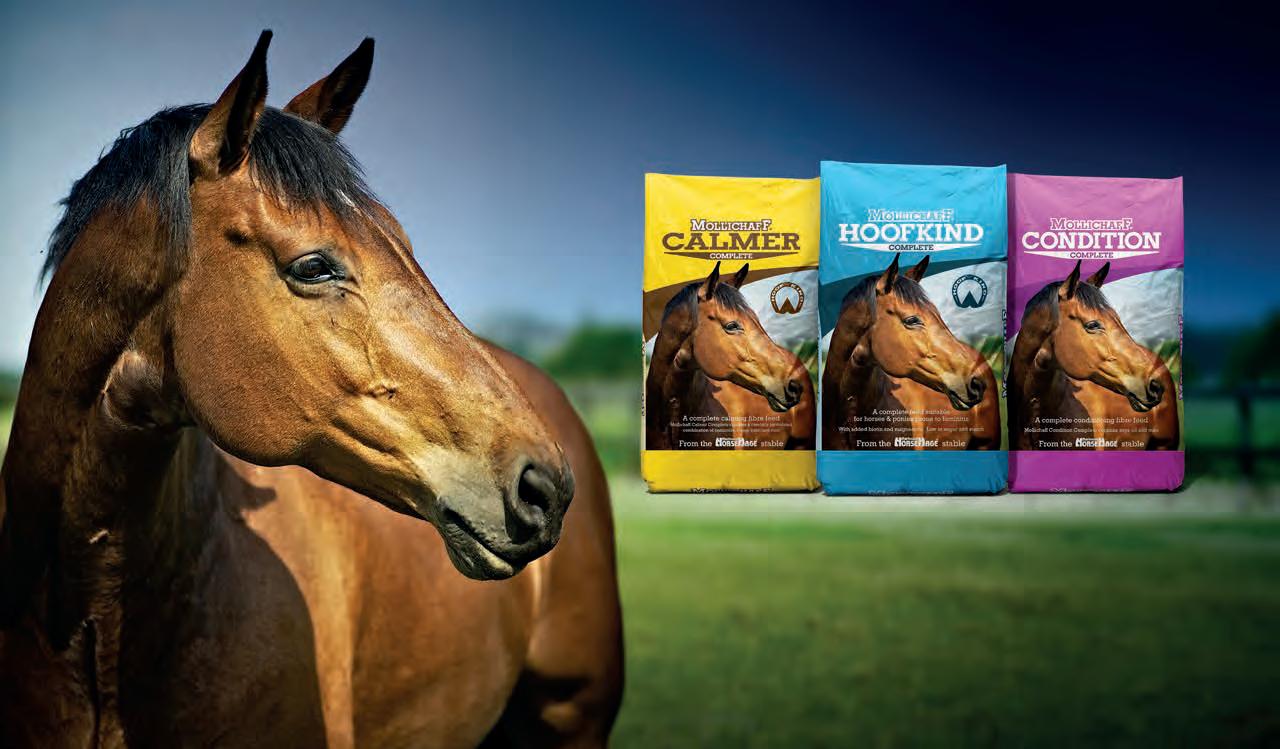






CountryStore 15 www.molevalleyfarmers.com ·Complete feeds in one bag ·High in fibre ·A more natural way of feeding ·Varieties for calming, conditioning & low calorie Complete Peace of Mind HorseHage & Mollichaff Helpline: 01803 527274 www.horsehage.co.uk Follow HorseHage & Mollichaff on Facebook BY APPOINTMENT TO HER MAJESTY THE QUEEN MARK WESTAWAY AND SON MANUFACTURERS OF HORSE FORAGE
Stewarts Christmas Shortbread Tins 400g £9.99 each

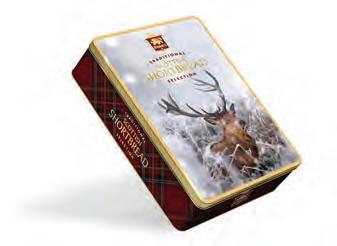
Perfect PREZZIES



Christmas is sorted with our sackful of goodies



Steven Brown Heather McCoo Tin 160g £5.99 Filled with light and crumbly shortbread
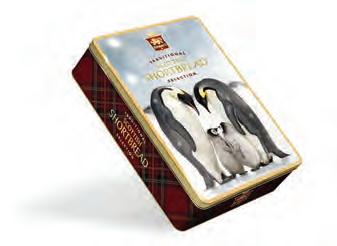



Sheila The Sheep 100g £14.99 Filled with clotted cream shortbread


Warmies Cuddle Toys £12.95 each Mix and match any 2 for £20 Bagpuss, Dragon Blue, Flamingo, Highland Cow, Penguin Grey and Unicorn designs available




Items and offers available in selected stores while stocks last, from November 1 until December 24
David Walliams Mental Maths Games Tremendous Times Tables Wonderfully Witty Word Games £7.99 each Buy any 2 for £12
Normal
Remote Control Liebherr £49.98 Save £10
price £59.99
Normal price
Remote Control Fendt Vario £59.99 Save £10
£69.98
Monty Bojangles Taste Adventure 225g £5.50 Save 30% off RRP £7.49 Delicious cocoa dusted truffles
Long Hot Water Bottle £15.95 each Save 20% Normal price £19.94 Available in Chevron, Cream, Grey Fur and Tartan
Treat little ones 16 CountryStore www.molevalleyfarmers.com Buy one get one free
Ridley’s Dog Lovers Puzzle
£16.67 Save over 33% Normal price £20




Ridley’s Dog Lovers Cards

£6.49 Save over 33% Normal price £10
Let
Ridley’s Table Tennis Set

£19.99 Save over 33% Normal price £30
Gentleman’s Hardware Whisky Chillers
£6.49 Save over 33% Normal price £10




Gentleman’s Hardware Gardener’s Multitool
£16.99 Save over 33% Normal price £26
Gentleman’s Hardware Cheese Board Set

£14.99 Save over 33% Normal price £28
Gentleman’s Hardware Rocking Whisky Glasses

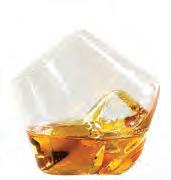
£11.99 Save over 33% Normal price £18
Ridley’s General Knowledge Quiz Brain Freeze Quiz Brain Teasers Quiz Sing It Back Quiz
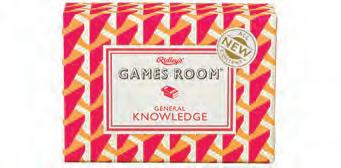
£7.98 each Buy one get one half price
WIN a Town & Country Hand Trowel &

Fork Gift Set



Designed in the classical style, these hand-held tools are made from high quality stainless steel with shaped weatherproof handles, so they perform as well as they look. A stylish and indispensable tool set for all keen gardeners. Five sets available to win.

To be in with a chance of winning, simply fill in the form below and send to: Sarah Barclay, Moorland House, Station Road, South Molton, EX36 3BH or visit www.molevalleyfarmers.com/countrystore
Name Address Postcode Account number Tel ................................................................................................. Email
Closing date for entries is January 31 2020
So you get the best value from Mole Valley Farmers and its associated companies, we would like to send you information and offers via email, text, phone or mail. Your consent can be withdrawn at any time and we never share your information with 3rd parties. Required * Yes I’d like to receive updates and offers No I do not wish to be contacted How would you like to hear from us?
Text Email Mail LIFESTYLE
Phone
the games begin
CountryStore 17 www.molevalleyfarmers.com
A TRADITIONAL Festive Feast
Feasting at Christmas time has been enjoyed since before the Middle Ages, but it was the Victorians who turned it into the modern gastronomic showstopper. We take a gander at the culinary history books – and investigate ways to prepare the festive centrepiece
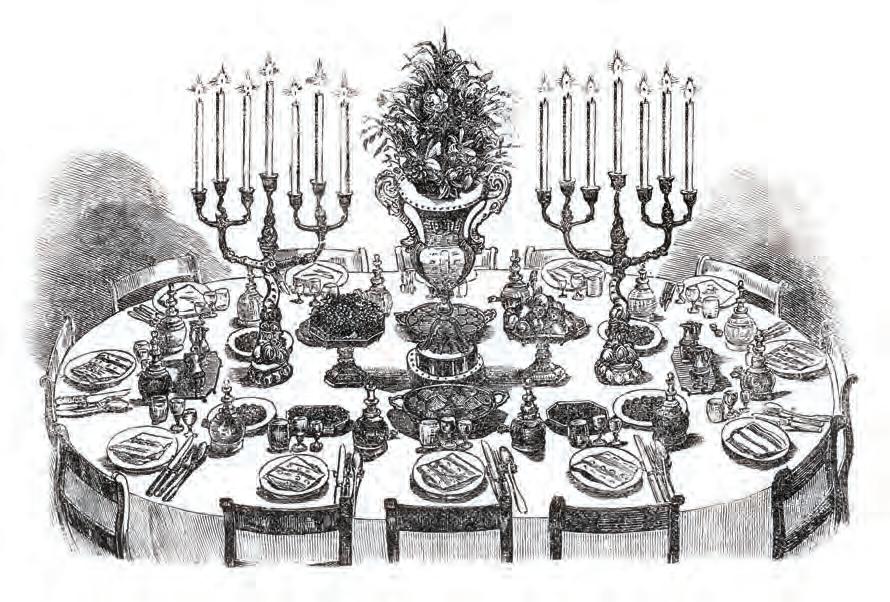
Words: Jo Rees

18 CountryStore www.molevalleyfarmers.com
Turkey may be the main event when it comes to meat on the Christmas table, but it didn’t arrive in England until the sixteenth century when it was brought to Britain from Mexico.
In The Taste of Britain, Laura Mason and Catherine Brown suggest there was originally confusion among consumers as to what was turkey and what was not, as guinea fowl was introduced at the same time and also named turkey.
Legend has it that Henry VIII was the first English monarch to tuck into turkey on Christmas Day. Yet the New World contender didn’t seriously challenge goose’s place on the festive leader board until the late 19th century. And even when it became fashionable it was the preserve of only the wealthiest revellers.
The turkey we eat nowadays is mostly one of various hybrids of Norfolk Blacks (the historic breed of turkey fattened by East Anglian farmers) and Cambridge turkeys. Various cross breeding between the two – and other breeds such as the American Bronze – have resulted in the Cambridge Bronze and the KellyBronze.
Turkey
The KellyBronze was created by Derek Kelly in 1971 (they’re still reared by the same family) and, in 2011, was the first turkey to receive three gold stars in the Great Taste awards. Much of its popularity is due to its high volume of breast meat and the good flavour that results from the bird reaching maturity slowly.
To brine or not to brine?
Popular in America during Thanksgiving, brining a turkey involves soaking the bird in a
Alternatively, do neither, just bring the turkey to room temperature and give it a good twist of salt and slather the breast in butter or cover with strips of streaky bacon before roasting.
Chop chop
The reason that so much attention is paid to keeping turkey moist is that the breast can tend to be dry, a result of it having hardly any natural fat to break down during cooking.
The exception to this are slow-grown birds such as the KellyBronze which lay down more natural fat during their long maturation.

If you are worried about your Christmas turkey being dry, one solution is to joint the bird and cook the breast separately as a turkey crown. That way you can take it out when it’s just done and leave it to rest while the legs continue to cook. And … rest
huge pot of salted water for 12-24 hours. It’s said to make it more succulent, although blind taste tests report that it can result in a less flavoursome bird that’s just slightly more juicy. An alternative is drybrining which involves making a rub from salt, ground pepper and brown sugar and letting the turkey sit in it for 8-16 hours (refrigerated) before rinsing it off and cooking.
Resting is important to enable the juices to be reabsorbed into the meat. If you wrap the bird in foil to rest, you are essentially extending the cooking time, so do factor this in.
CountryStore 19 www.molevalleyfarmers.com
LIFESTYLE
‘There was confusion as to what was turkey and what was not, as guinea fowl was also named turkey’
Goose was perennially popular in the South until knocked off its perch by turkey but, in the north of England, beef was always the favoured choice. And it’s made a resurgence in recent years.

As Christmas is all about feasting, many cooks fork out on a beef joint which sets them back a pretty penny. Master Butcher Alastair David of Darts Farm, near Exeter, says: ‘Prime rib of beef is a popular choice, with its recognisable trimmed ribs creating a bold centrepiece,
as is a rolled sirloin. This is a prime boned and rolled roast – you are essentially roasting a huge single piece of sirloin steak, which is pretty unbeatable.’ Alternatively, soft-as-butter fillet becomes even more special when wrapped in mushroom duxelles, parma ham and covered in pastry to create beef wellington.
Core values
Resting the meat after its been cooked is as important for beef as it is for birds. Use a meat thermometer to make sure you whip the joint out of the oven just as it reaches the perfect point of pinkness. It’s a terrible thing to overcook a beautiful
piece of well-reared beef to a grey and mealy consistency.
Alastair says: ‘The key thing is to make sure you cook the beef to the core temperature required and use a meat thermometer to do that. Then let the meat rest, relax and reabsorb the juices lost in cooking. Good things come to those who wait.’
Sharp practices
For beef, as with all festive roasts, make sure your carving knife is freshly sharpened so that you can slice with delicate control and serve the roast with style.
20 CountryStore www.molevalleyfarmers.com
Goose

Until recent years, goose was the traditional British Christmas roast. East Anglia, Norfolk and Lincolnshire were the most famous regions for rearing geese, a consequence of the goose-friendly food source that this arable area produced as a byproduct: fields of corn stubble after the crops were gathered in. Geese are still put out to forage in the stubble on some smaller farms, although the modern mechanised means of harvesting leaves less stubble for hungry geese, so the practice is less widespread.
A Cratchit Christmas
It’s impossible to talk about geese at Christmas time without referencing Dickens’ much loved description of the Cratchit’s festive supper in A Christmas Carol:
‘Such a bustle ensued that you might have thought a goose the rarest of all birds; a feathered phenomenon, to which a black swan was a matter of course — and in truth it was something very like it in that house … ‘Mrs Cratchit, looking slowly all along the carving knife, prepared to plunge it in the breast; but when she did, and when the long expected gush of stuffing issued forth, one murmur of delight arose all round the board and even Tiny Tim, excited by the two young Cratchits, beat on the table with
the handle of his knife, and feebly cried “Hurrah!”’
Cooked your goose
Goose has almost the opposite problem to turkey, in that it is apt to be very rich. Butcher Alastair David says: ‘Fat is flavour and the higher proportion of fat in a goose –more like duck, really – is what makes it so delicious.’ This is due to the quantity of fat under the skin which renders down during cooking. This useful byproduct makes superb roasties, but you don’t really want the bird sitting in a bath of fat as it cooks, so it’s best to raise it on a platform (foil, vegetables, a wire rack –whatever you have to hand) and pour the precious goose fat into a jug every so often so you can use it for the spuds.
Like turkey, the legs take longer to cook than the breast, so jointing the bird and cooking the two separately makes sense. Unlike turkey, however, goose is best served slightly pink.
More strongly flavoured than turkey or chicken, the darker meat makes a good pairing for more acidic sauces which cut through the richness. A sharp orange and cranberry relish with a hint of the warming spices of cinnamon and star anise makes a pleasing accompaniment, as does Delia’s Smith’s sharp and sweet red cabbage with apple recipe.
Christmas DINNER STATS
Did you know ...
Around 57 Olympic-sized swimming pools could be filled with the beer consumed by Brits over Christmas.
We scoff around 7,000 calories on Christmas Day –reaching our daily allowance by approximately 2pm (eek).
About 230,000 tonnes of food is chucked away each year at Christmas time. Brussels sprouts fields in the UK cover an area equivalent to 3,240 football pitches. If you lined up all those sprouts they would stretch from London to Sydney.
On Christmas Day, 205 million glasses of Champagne are consumed as part of the feasting.
CountryStore 21 www.molevalleyfarmers.com
LIFESTYLE
Delft Bowl

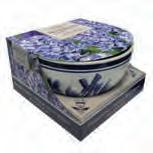
Any 2 for £9.98 Normal price £5.99
Complete with compost
Blue Hyacinth
Narcissi Bridal Crown
Crocus


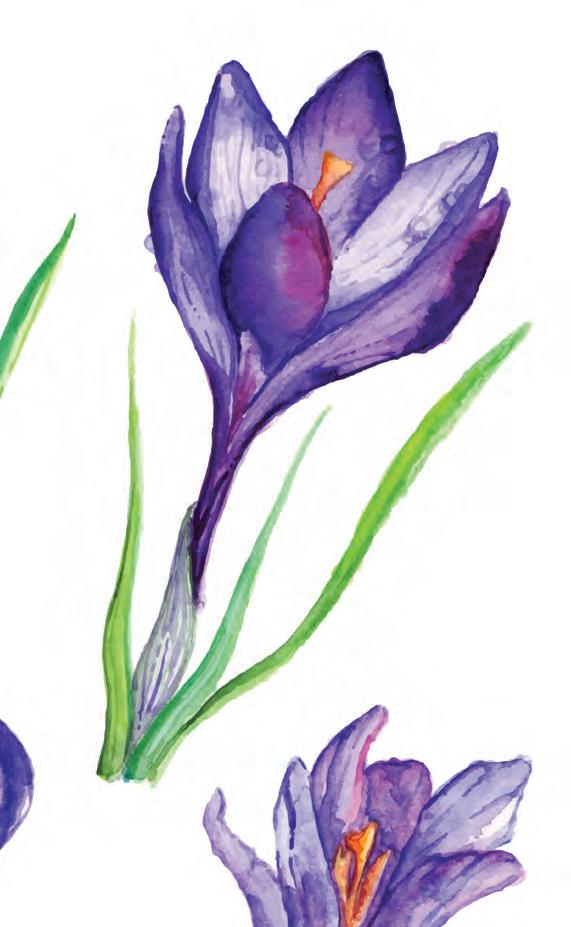
Pink Hyacinth
Narcissi Tête-à-Tête
CHEVRON-CIRCLE-UP Llama Planter £6.98
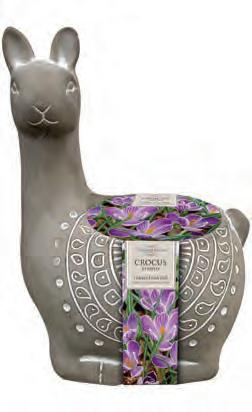
Complete with crocus bulbs, compost and growing culturals
CHEVRON-CIRCLE-UP Sausage Dog Planter £7.99

CHEVRON-CIRCLE-UP Indoor Crocus Vase £5.99

Complete with bulbs, compost and growing culturals
Hyacinth Glass Carafe
Any 2 for £5
Normal price £2.99
Contains hyacinth bulb and glass carafe
Blue Hyacinth

Pink Hyacinth


White Hyacinth
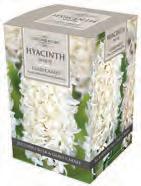
lovely BLOOMIN'
Comes with narcissi bulbs, compost and growing culturals
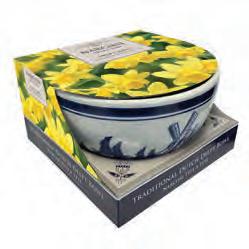
Bring
CHEVRON-CIRCLE-UP Indoor Narcissi Glass £12.98


Complete with bulbs, stones and growing culturals
Amaryllis Black Pearl £9.98
Contains amaryllis bulb, compost and pot
Amaryllis Gift Set




Contains amaryllis bulb, compost and pot
Pink, Red and Striped

www.molevalleyfarmers.com
Items and offers available from November 1, 2019 and while stocks last Please ring to check store availability before travelling
the beauty of nature inside with these gorgeous planter sets – they make great gifts too
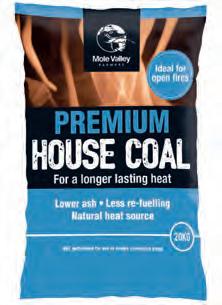

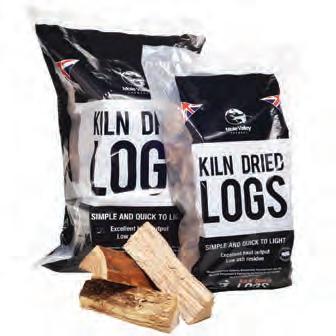








CountryStore 23 www.molevalleyfarmers.com MVF Kiln Dried Kindling £3.29 Items and offers available in selected stores while stocks last, from November 11 until December 8, 2019 MVF Kiln Dried Logs Medium £5.26 Save 15% Normal price £6.19 Large £8.48 Save 15% Normal price £9.99 MVF Molacite 20kg £7.81 Save 15% Normal price £9.19 MVF Fire Briquettes 20kg £6.36 Save 15% Normal price £7.49 MVF Economy Smokeless Briquettes 20kg £6.79 Save 15% Normal price £7.99 MVF Natural Firelighters Pack of 50 £4.99 Pack of 200 £14.99 MVF Premium House Coal 20kg £7.39 Save 15% Normal price £8.69 MVF Economy House Coal 20kg £5.94 Save 15% Normal price £6.99 MVF Premium Smokeless Briquettes 20kg £7.81 Save 15% Normal price £9.19 Keep toasty by the fire this winter using our range of heating fuels
COSY LIFESTYLE
Home
Benefits
OF BUGS
A healthy garden needs insects in order to maintain a thriving ecosystem. We peek under the stones at our most common visitors and discover how they help the garden – and the gardener
hen you're gardening –whether




weeds, digging beds or lifting a flowerpot – you’re sure to
Gardens contain millions of life forms and each plays a part in maintaining a healthy ecosystem. This includes the crawling insects that live, often unobserved, among stones, in soil and on vegetation. They help improve soil structure, break down garden waste and leaf litter and eat each other, keeping pests at bay. In turn, they are a vital food source for birds and mammals.
Not only useful, insects are also fascinating thanks to their many variations in appearance and lifestyle.
Aphid loving ants
Despite their overwhelming numbers, ants are not a major threat to the gardener and in the wild their nests play an important role in aerating the soil.

Where they may cause a problem is in their defence of aphids against predators: ants feed on the aphids' sweet secretions and consequently actively protect them. Ants also defend certain caterpillar species for the same reason, thereby supporting butterfly populations.
Fussy eaters
Caterpillars may have huge appetites, but their tastes can be highly individual with different plants attractive to different species. Every gardener will know how large and small white butterflies adore brassicas.
Caterpillars have fascinating ways to protect themselves: some are brightly coloured or furry; some emit nasty smells while others swell up to appear bigger. By eating those brassicas, they all infuse their bodies with unpalatable mustard gases.

Developing into beautiful and varied pollinators, moths and butterflies play a key role in the lifecycle of the garden.
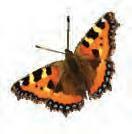
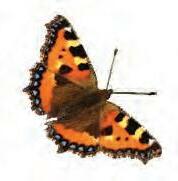
24 CountryStore
Night hunters CHEVRON-CIRCLE-UP
There are hundreds of species of ground beetle in the UK. The violet ground beetle is one of the largest and shelters in leaf litter and under stones. It comes out at night to hunt, feeding on larvae, insect eggs and many pest species – even slugs.
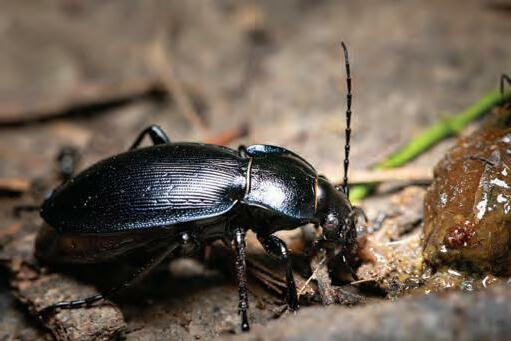
Pest foragers CHEVRON-CIRCLE-UP
Earwigs (known as clip shears in Scotland) may adore nibbling on dahlias, but these nighttime foragers also love to consume aphids and other troublesome insects. Look closely at a common earwig and you’ll spot little folded up hind and forewings –although it’s rare to see them fly.
Natural composters
Depending on where you live, you may know woodlice as slaters, chiggy-pigs or even mankie-peas; there are a multitude of affectionate nicknames for them. They can eat young shoots, but are invaluable at breaking down decomposing old wood and plant matter.
Legs galore
Fly away home CHEVRON-CIRCLE-UP
Children love spotting the familiar red with black spots of the ladybird (often known affectionately as the ladybug) but what they may not know is that this pretty predator is a powerhouse when it comes to ridding the garden of aphids. Both in its larval stage and as an adult, the garden muncher gets through vast quantities of aphids by literally sucking the life out of them. There are more than 45 species of the beetle resident in Britain – about 20 of these are small and dark in colour so often don’t get recognised as ladybirds.

Sap sucking champs Chevron-Circle-Down
Dining on the sap of tender young plants, aphids reproduce at a phenomenal rate. But they themselves are a food source for many insects – and blue tits love them. Aphids produce a substance called honeydew, which coats leaves and can lead to sooty moulds developing on plants; it's a rich food source for a host of microorganisms, fungi and insects.
Centipedes are fast moving hunters, crawling backwards almost as well as they crawl forwards. They scuttle along, pouncing on insects or even slugs, then inject them with venom. Slower moving millipedes feed on decaying vegetation, naturally composting the soil and aerating it.

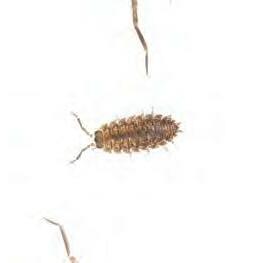

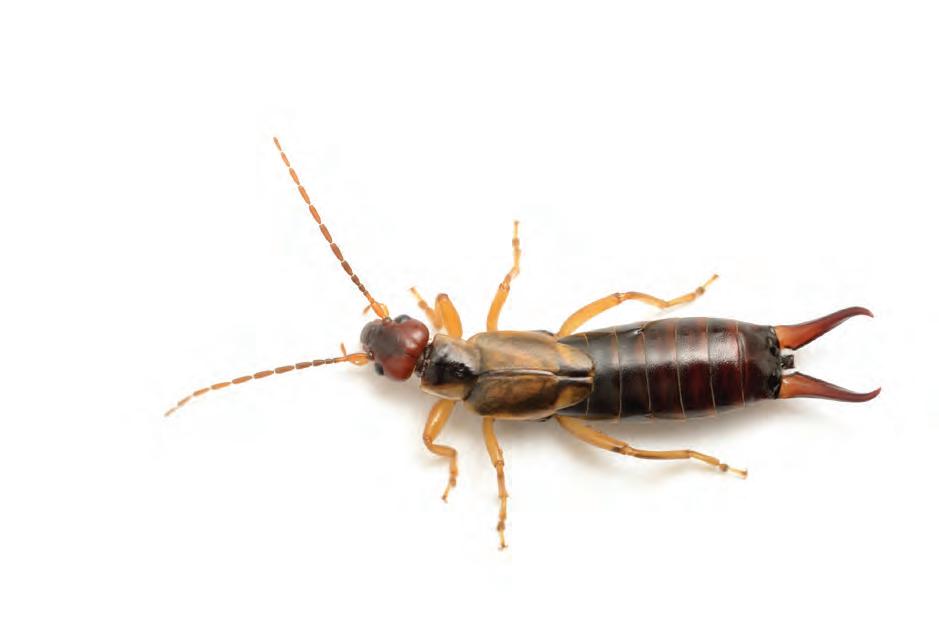

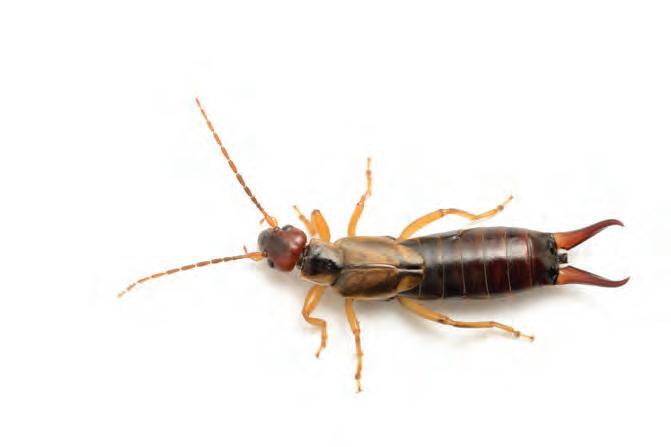

Fly sapper CHEVRON-CIRCLE-RIGHT
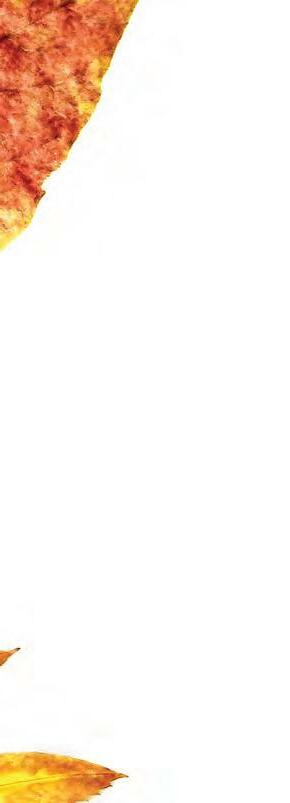
Dragonflies are a gardener’s friend as they help keep the fly, midge and mosquito population in check. These elegant insects make their homes in sunny garden ponds where their eggs hatch into aquatic larvae that feast on the larvae of other flying bugs.

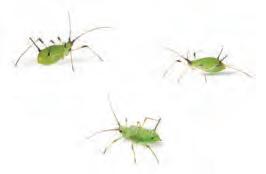
In the mature stage, these winged predators dine upon flying pests by patiently perching before attacking them with swift voraciousness. Dragonflies are sensitive to air pollution so, if you have a large number of them in your garden, it may be a good indication that the air quality is good.

CountryStore 25 www.molevalleyfarmers.com
Violet ground beetle
Ladybird
HOW TO CREATE A
Bug-friendly
garden
1. Leave some wild areas: nettles, grasses, rotting wood, leaves and piles of stones all provide food sources and homes for little creatures.
2. Shrubs with berries and fruits provide a good source of food for insects, as well as birds and mammals.

3. Don’t clear away dead summer growth; leave it to overwinter, providing a home and food source for insects.

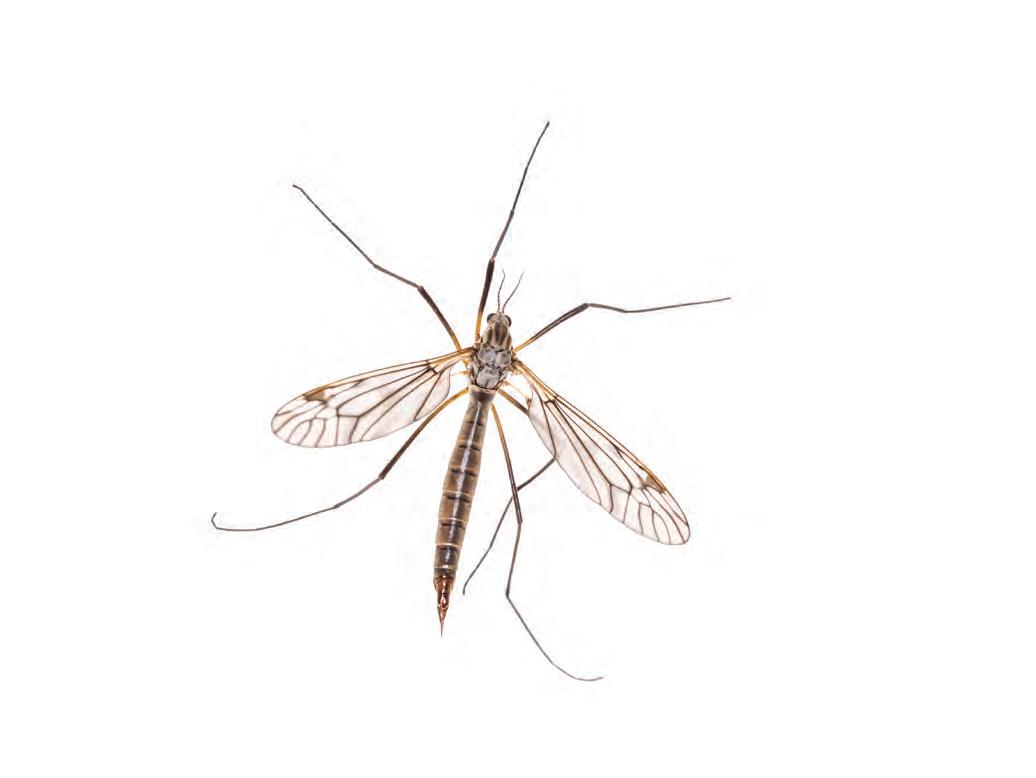
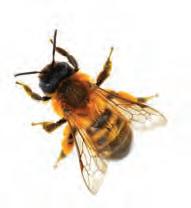
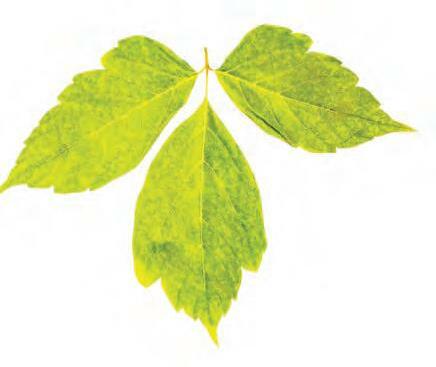
4. Plant a mixture of flowering plants which will
bloom throughout the year to provide pollen and nectar which will attract insects –and, in turn, the birds and animals that eat them.
5. Consider creating a pond or building a bug hotel, giving a range of habitats for all manner of insects to enjoy.
6. Think about swapping a fence for a hedge planted from

Make a bug hotel to attract more insects
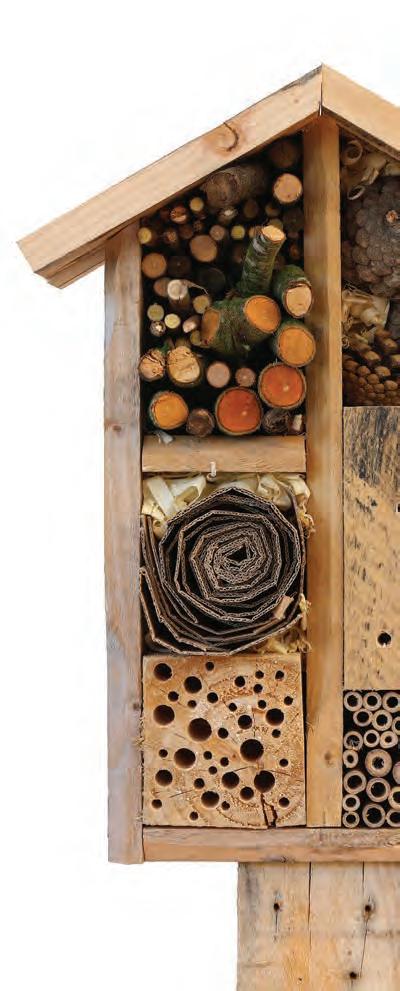
26
Discover Skinner’s Less Active & Senior Range
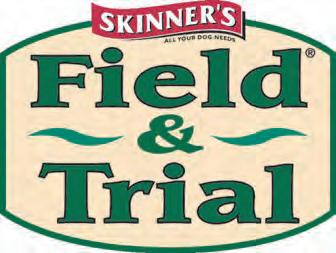
Skinner’s range of diets for s active and senior d og s helps to reduce the likelih oo d of weight gain and is aimed particularly at d og s who have a reduced activity level or are resting and recovering out of season.

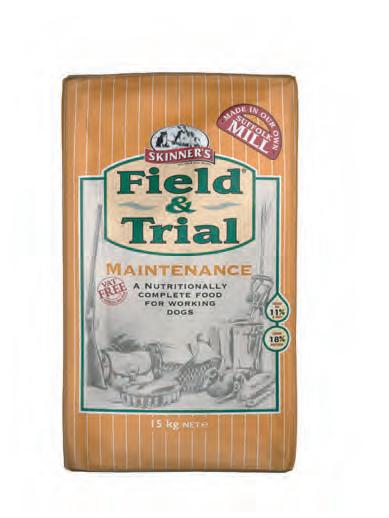
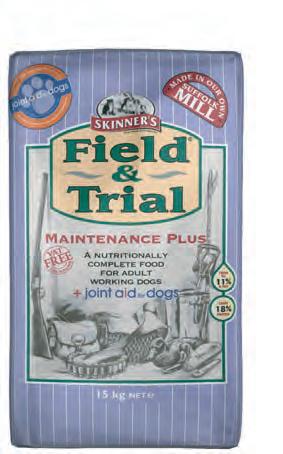

www.skinners.co.uk T: 01379 384247 | E: info@skinners.co.uk
tree O, CHRISTMAS
Awide variety of Christmas trees are available in the UK every year and if you enjoy decking out a real fir with baubles then Mole Valley Farmers is a good place to find some winning trees which will do the job beautifully.
Choose your tree
By far the most popular Christmas tree in the UK, the Nordmann Fir is favoured for its fantastic needle holding ability. Its glossy green, soft-to-the-touch foliage and tiered branches make this variety of tree perfect for displaying large and decorative baubles.
George Hood, Tree Specialist at Needlefresh
in
Wiltshire,
gives us the low-down on the fabulous festive fir
Words: Kathryn Lewis
If you’re a stickler for tradition, the Norway Spruce ticks all the boxes: bushy and well-shaped with light green needles, it also has a lovely pine fragrance. Bear in mind that to prevent needle drop, these trees need regular watering.
Whether you choose a traditional Norway Spruce or a needle-retaining Nordmann Fir, Mole Valley Farmers sells species grown in the UK which supports British farmers.

Pot grown or cut?
If you pick a pot grown tree, you'll need to give it the best chance of survival, which means storing the tree (with its trunk in water) in a sheltered area, such as a garage, for a minimum of three days before transferring it indoors.
Keep the tree watered and away from heat throughout the festive period and there’s a good chance it will make it. After Christmas put it out in the garden in the pot.
When bringing a cut tree home, it’s important to saw around an inch from the base of the trunk before setting it in water as this allows the pores to open and the tree to absorb the water. Freshly cut trees are thirsty creatures and can guzzle up to a gallon a day, so make sure that the water level is never below the base of the tree.
Whichever type of tree you choose, display it in a cool room and always keep it away from fire.
28 CountryStore www.molevalleyfarmers.com
Repurpose your tree
Cut firs aren’t only destined for firewood when their time is up indoors. Here are some ideas of what to do with your tree come January 5th.

• Donate it to a local zoo or animal sanctuary – pines are great for animal enrichment

• Prop the tree next to your bird feeder as a staging area for small birds

• Use the branches and pine needles as mulch for the garden
• In some areas of the UK, discarded Christmas trees are used to support sand dune systems and prevent coastal erosion
• If you’re feeling creative, cut the trunk into rings to make homemade coasters
Did you know ...
All of Mole Valley Farmer's Christmas trees are grown in the UK – either at Drynie Woodlands near Inverness or at Yattendon Estate near Newbury.
Christmas trees are a slow growing product and are therefore a long-term crop. Most Christmas trees are cut between 10-12 years. Between six and ten years old, Christmas trees put on a 30cm growth spurt each year. Pot grown trees are unique to Needlefresh and are field grown in specialist grow pots sunk into the ground. The pots are then dug up when the tree is ready to harvest. The specialist design of the grow pot means that the tree’s core root system is still contained and that, if properly cared for, the tree can be replanted in the garden after Christmas. These are not to be confused with commonly sold potted trees, which are dug out of the ground and potted (which can lead to root damage).
WIN a Wilkinson Sword Pruner Twin Pack


Early Bird Offer
Save 25% or more off cut Nordmann Christmas Trees compared to December prices until 30/11/19. Trees in store from 22/11/19
These sets combine both anvil and bypass pruners to cover a range of pruning activities. Constructed from cast aluminium with soft grip handles for added comfort, they provide the perfect cutting angle and come with a ten year guarantee. Five sets available. To be in with a chance of winning, simply fill in the form below and send to: Sarah Barclay, Moorland House, Station Road, South Molton, EX36 3BH or visit www.molevalleyfarmers.com/countrystore Name
So you get the best value from Mole Valley Farmers and its associated companies, we would like to send you information and offers via email, text, phone or mail. Your consent can be withdrawn at any time and we never share your information with 3rd parties.
CountryStore 29 www.molevalleyfarmers.com GARDENING
Email
Address....................................................................................... Postcode Account number Tel .................................................................................................
Closing date for entries is January 31, 2020
* Yes I’d like to receive updates and offers No I do not wish to be contacted
would you like to hear from us? Phone Text Email Mail
Required
How
Norway spruce (Picea abies)
Nordmann Fir (Abies nordmanniana)
Cairngorms NATIONAL PARK
In the latest of our National Park adventures, Kathryn Lewis visits the Cairngorms, a breathtaking mountain wilderness in the heart of the Scottish Highlands
Covering an area of the eastern Highlands greater than Europe’s smallest country, the Cairngorms is the UK’s largest National Park.

Within the 4,528km² expanse, ancient woodlands border wild wetlands while epic mountain ranges plunge into winding rivers and deep blue lochs. Whether you’re on the trail of the endangered red squirrel or skiing down one of the range's snow-topped peaks, Scotland’s second designated National Park is the ultimate playground for thrill-seekers and nature enthusiasts.
Area (sq km)
4,528
Highest point
Ben Macdui (1,309m)
Coastline
0
Year of designation
2003
Population
18,000
Special areas of conservation
4 Nature reserves
9 Visitors per year
1.8 million
Private land ownership
75%
Scheduled monuments
60
Woodland
Home to a quarter of Scotland's native forest Lochs
60 (approx)
30 CountryStore
Visit REASONS TO
Become a Munro Bagger
As well as being home to four of the five highest mountains in the UK, the Cairngorms also features the 55 munros (a Scottish mountain over 3,000 ft). Conquer any of these hefty hills and you’ll not only enjoy the awe-inspiring views from the top, you'll also earn the title of Munro Bagger.
If you’ve not gone equipped with crampons and guide ropes, there are a plethora of hiking trails for all abilities – Badenoch Way, which goes from Dalraddy to Kingussie, passes moors, lochs and forest without the gradient.

Spot endangered animals
With a variable landscape and nine dedicated nature reserves, the National Park is home to some of the UK’s rarest animals, insects and plant
species. Take a woodland walk and you’re likely to spot red squirrels and roe deer darting between the trees, while mountaineers are often under the watchful eye of a resident golden eagle. Hang about in one of the many hides for long enough and you may even spy a Scottish wildcat, osprey or capercaillie.
Stargaze under clear skies
There are few better places to watch shooting stars and spot distant planets than Tomintoul and Glenlivet – the area is the most northerly Dark Sky Park in the world. The best time to visit is between October and March when the skies are darker for longer.
Tick something off the bucket list
Always wanted to bungee jump from a bridge, sled through the snow with
a pack of dogs or go white-water rafting? There’s an almost endless list of heart-rate-rising activities to get stuck into around the Park – the only question is whether you'll do river tubing or clay pigeon shooting first.
Enjoy a wee dram
After a long day of exploration, a wee dram is in order. There are a number of distilleries crafting traditional Scottish whisky across the National Park, many of which are open to the public for tours and tastings. Cairngorm Brewery, located in Aviemore, also hosts tours and has a brewery shop where you can pick up a bottle of the multi-award-winning stout Black Gold.
OUTDOORS 31
Weathering
No one can deny that there have been dramatic changes to the traditional seasons in recent years, but how has the extreme weather affected UK farmers?
 Words: Clare Hunt
Words: Clare Hunt
THE STORM W
hile it’s a standing joke that we Brits are obsessed with the weather, the last couple of years have certainly given us plenty to talk about. Storm Emma, the Beast from the East and 2018’s scorching summer may have been blips, but for the farmers reliant on dependable weather patterns, they were devastating. Such extreme weather changes, though, have also shown farmers to be determined, versatile and adaptable ...
Sheep farming
When storms hit in late February 2018, lambing was in full swing and the ferocious conditions resulted in high losses of newborns. This was most acutely felt on farms where ewes lamb outdoors, but even indoor lambing systems were challenged by such extreme temperatures. Subsequent heatwaves devastated pastureland when it should have been at its most lush and nutritious, leaving farmers feeding costly concentrate and using up forage stores set aside for the winter.
The shortage of fresh grass translated into a nationwide scarcity of hay and silage, as summer harvests fell well below average, leaving the cupboard poorly stocked for winter 2019. It also influenced the following year’s lambing season: meagre grass through autumn meant some farmers saw suppressed lamb numbers when they came to scan their ewes.
What might the future hold?
At the moment no two years are alike but most shepherds are taking freakish weather in their stride. However, if it looks like a more long-term weather pattern is emerging, farms may choose to lamb indoors, keep newborns inside longer or lamb later in the year. They may build more sheds or invest in more feed stores. Excessively hot weather can encourage parasites and incidences of 'fly strike', so more regular treatments may be required to manage this.
Dairy farming
Dairy operations rely on high-quality feed to produce high volumes of creamy milk, so severe weather is always a concern. If grass growth is disrupted in the peak months of March to May, the knock-on effect ripples well into the next year.
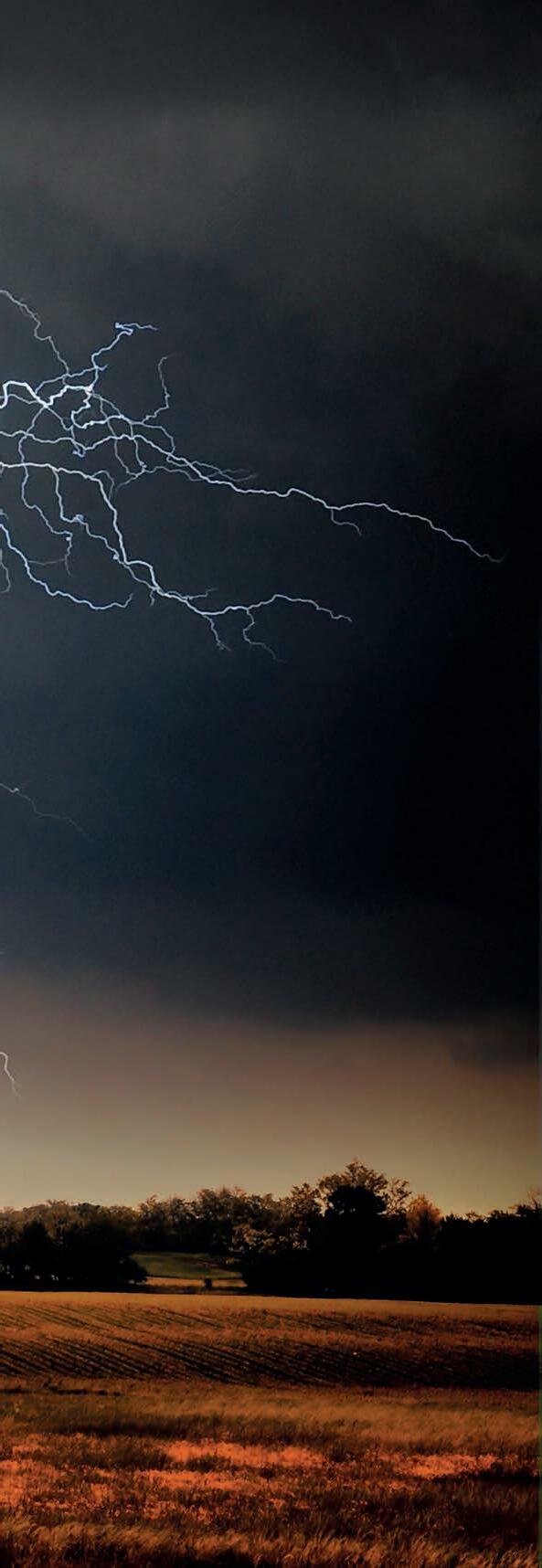
In 2018, much of the early harvest gathered before the heatwave had to be fed to cattle during the summer, jeopardising winter stocks. As dairy farms live and die by their milk yields and the fat and protein content of the milk, nutrition is everything. Buying in unknown and untested crops, often from the furthest reaches of the UK, was risky and expensive.
On dairy farms, letting the cows out from their indoor winter quarters onto fresh spring grass is a much-anticipated herald of summer. But spring grass needs a delicate balance of rain and warmth to coax it out of the ground. In 2017 and 2018, the spring grass in many areas was adversely affected by the lack of rain and unseasonably cold temperatures.
How are dairy farmers adapting?

Di Waternage, a dairy farmer and council member of The Royal Association of British Dairy Farmers says some farmers are mitigating the risks by keeping increased volumes of conserved forage to act as an insurance policy.
‘This is a financial challenge for any dairy business as it not only involves the cost of producing the extra crop, it also requires further investment in the right infrastructure (ie silage pits) to accommodate it,’ she says.
Di and other dairy farmers like her are also mitigating risk by planting drought-hardy crops including maize or fodder beet which can be stored as winter feed. Changes to pasture management – including planting deeper-rooting grasses such as cocksfoot and clover – promote better ground cover and protect soil from baking out.
Rotational grazing systems used by grassland farms are also being given a rethink to allow grass longer recovery periods after grazing.
OUTDOORS
Fruit growing
Since the 1990s, the adoption of Spanish tunnels has revolutionised soft fruit growing. They’re inexpensive (compared to glass), extend the growing season, protect the crops from rain damage and mean berries can be harvested even in bad weather. At one time, soft fruit had a very short season and was slotted in as a cash crop on pig, dairy or potato farms. Today there are many specialist berry growers.

Fruit growing productivity
By innovating for productivity, soft fruit producers have buffered themselves against meteorological challenges.
Cherries grown on dwarf rootstocks in high tunnels are protected from frosts and rain. Drip irrigation means far less water is needed to sustain crops and, as a happy side effect, rainwater can be harvested from the tunnels.
Vegetable production
In recent years, growers have been challenged by excessively dry or wet springs, in which seeds don’t germinate or crops can’t be planted until later than is optimum.

Excessive rain as the crop matures can simply destroy it, while insufficient moisture stunts growth. Unseasonably cold conditions in summer challenge salad crops due to limited light and suppressed demand, while warm autumns impact on vegetables (such as sprouts) which need to peak at a very specific time. In June 2019, entire crops of Lincolnshire peas were lost due to too much rain.
Mitigating risk
For veg growers, following the example of fruit growers isn't practical – they simply couldn't put coverings over all their acres. If it was simply about dryness, they could invest in irrigation systems or the development of drought-resistant varieties. However, with weather patterns being so unpredictable, small growers are having to rely on their customers (mostly supermarkets) being flexible about what they stock. Some larger growers, meanwhile, are mitigating risk by spreading their growing areas across the country
and hoping they'll have a good crop in one place even if another is compromised.
Some growers who already operate on squeakily tight margins are leaving the industry, turning to crops that are easier to grow (such as cereals) or letting out their land to large-scale growers.
34 CountryStore www.molevalleyfarmers.com

AVAILABLE
@ REGATTAOUTDOORS
AT MOLE VALLEY
ROMINA PARKA STYLISHLY WATERPROOF
The young farmer GOING FOR GOLD
Successful young jockey Harry Cobden talks about life in the saddle, riding for maestro trainer Paul Nicholls and staying close to his Somerset farming roots
Harry Cobden doesn’t waste time: he’s just turned 21 and already he has multiple Grand National and Cheltenham Gold Cup rides under his belt, finds time to be a partner in the family farm and even runs his own pheasant shoot near Yeovil in Somerset.
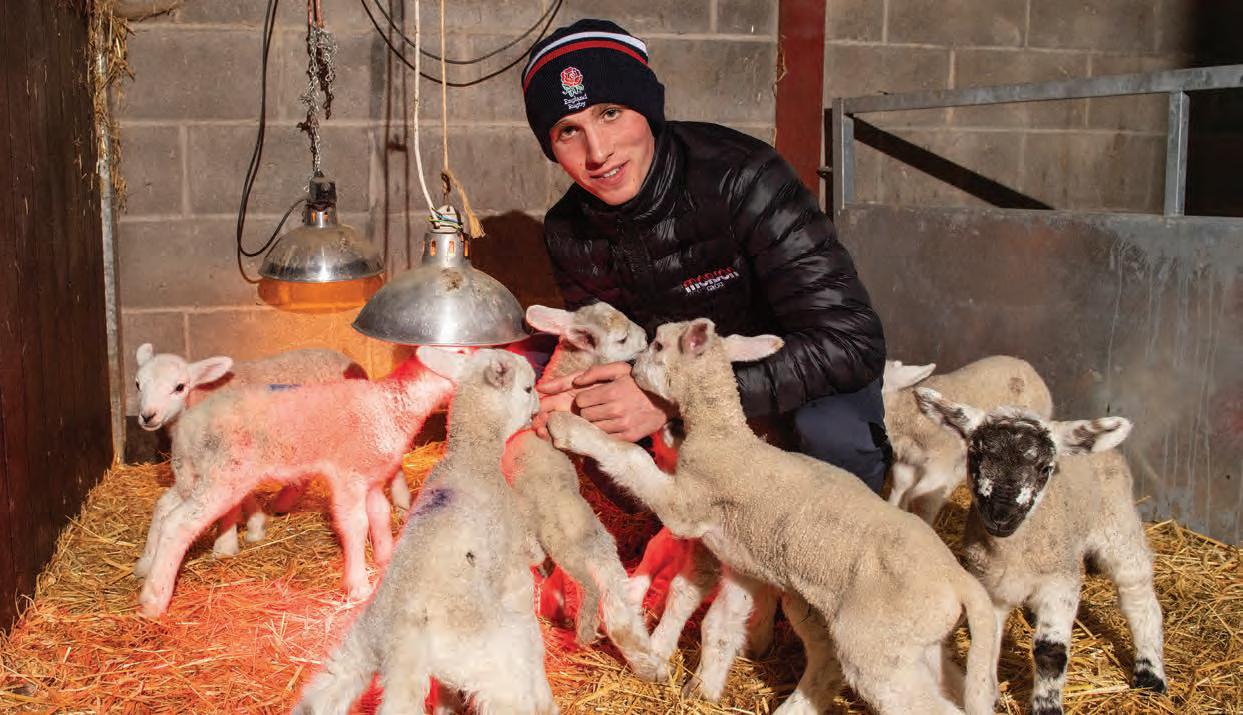
He did start early though. When just a toddler he began riding his cousin’s miniature Shetland. Then, by the age of nine, was racing ponies – notching
Words: Sophie Chamier
up 18 wins on his first one, Nimfield Millionaire’s Delight.
At 16, Harry left school without a single GCSE (‘I didn’t turn up for any of them’). He’d actually ridden a 33-1 winner at Leicester on the day of his English paper (to his mother’s fury) and found employment with a local trainer soon after.
He was looking pretty unstoppable until, on June 1, 2018, a fall at Market Rasen resulted in a broken neck (in two places).
Such an injury could be career ending but astonishingly, after just four months’ recuperation, Harry was racing again and even managed to achieve his goal of riding 100 winners by the end of the season (the actual tally was 109).
How’s your neck now?
I try to get physio every day at the races. Obviously my neck’s stiffer in the mornings now, but I was quite lucky with how well the injury healed. It was a worrying moment when the surgeon said, ‘You’ve broken your C2 and C3’.
36 CountryStore www.molevalleyfarmers.com
Photo: Dale
Cherry
It didn’t feel that bad. I’d walked away from the race and got in the shower and then my body started seizing up. What’s the most difficult thing about being a jockey?
The travelling. I’ve had my car two years now and it has 97,000 miles on the clock. I did a fair bit of driving myself but now I’ve got a full-time driver so I can look at all the races, go through the form, study what I’m going to ride the next day and try to get on the best horse. The life of a jockey is more than just turning up and riding. There are a lot of decisions to make.
I get home and I might go night-flight duck shooting or take the dogs out for a walk. There’s always plenty to do and I never dwell on a bad day’s racing. What happens that day happens and there’s nothing you can do about it. You’ve just got to look forward to the next day and try to put it right.
What’s it like at Manor Farm Stables [Paul Nicholls’ yard]?
The organisation down there is incredible and they’ve got state-of-the-art gallops and schooling facilities. There’ll be 40 plus people riding out every morning and everyone knows what they’re doing.
How long does it take to bond with a horse?
Sometimes it’s only cantering 400 yards to the start, or you could have ridden it 100 times before.
Every horse is different. They’re not machines: some are keener than others; some don’t like being boxed in; and some like being ridden on the outside. You’ve just gotta work it out as you go along.
Which horse has given you your best ride?
If I have to mention just one I suppose it’s Clan Des Obeaux [part-owned by Sir Alex Ferguson]. He gave me my biggest win to date in The King George at Kempton on Boxing Day.

market and buy and sell a few cattle and I’ve got my own shoot just outside Yeovil. I spent most of last summer rearing the birds and bought the posts and wire for the pheasant pens, (plus cattle feed) from Mole Valley Farmers.
To be honest, a lot of jockeys don’t have anything else to think about, just racing. So they get home, whack the TV on and watch racing replays.
What’s your schedule?
Over the winter, I’ll be in four or five mornings a week schooling [over jumps] before I go racing. If we’re busy I might school 12 horses in a morning. There are about 150 horses in Paul’s yard and I try to sit on every single one of them before they run, so it’s a big conveyor belt really.
the Grand National?
When the flag drops and you go past the stand, there’s an almighty roar and it’s an unbelievable thrill just to line up, let alone win. The Grand National is a very prestigious race but you need a lot of luck. I personally want to win a Gold Cup because to win it you’re probably on the best horse in the world. It’s a good bit of prize money too!
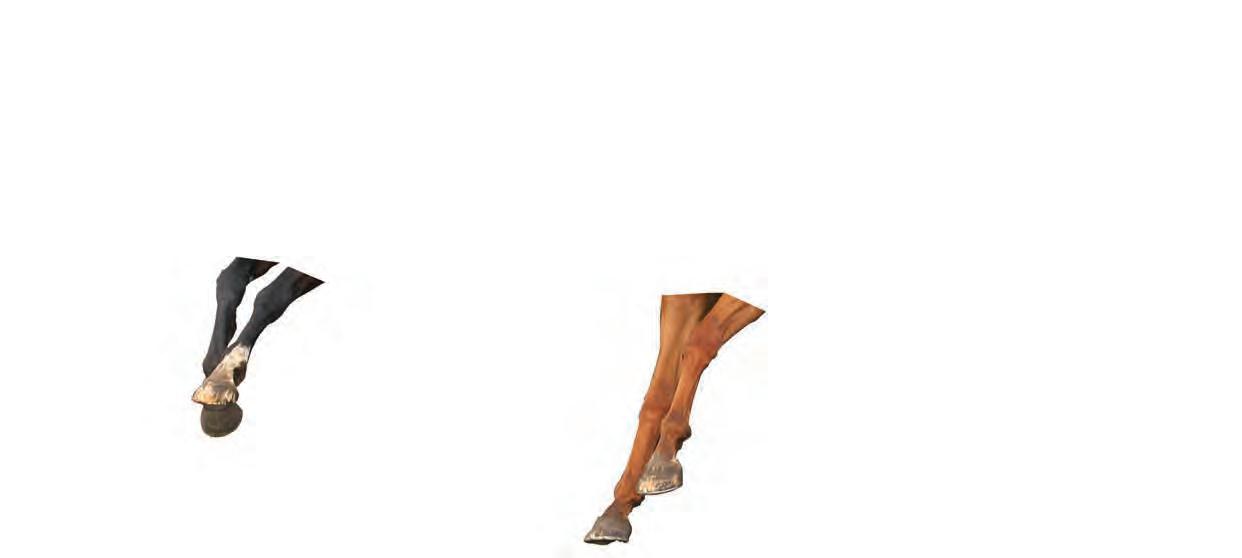
CountryStore 37 www.molevalleyfarmers.com
Harry (in green) winning on Topofthegame at Cheltenham this year
EQUINE
Photo: Turfpix
Show
& TELL
In the run-up to Horse of the Year Show, previous winner Vicky Smith reveals how she prepares her horses for their star turn

Words: Sophie Chamier
‘With the young horses it’s a bit like having a child in the nativity play’
 Vicky Smith with Bart
Vicky Smith with Bart
Whether you’re a show jumper or do the Pony Club Mounted Games, one thing’s for sure, Horse of the Year (HOYS) is the place that everybody wants ’ says Mole sponsored show rider and producer, Vicky Smith.
Last year, after ten years working as a PE teacher in Stockport, Vicky turned professional and when we interviewed her was busy preparing for the 2019 HOYS in October.
‘It’s such a big deal.’ she says. Everybody wants to ride there. There are 20 in each class and you feel very privileged to be there. It’s also the last show in the season and, if you’ve had a good run-up, the pressure’s on. Or, if you’ve got a young horse, the pressure’s on just to give them a good experience in case you’re ever lucky enough to go again.’
Personal training
To train her four-legged HOYS first-timers, Vicky hires an indoor school and sets up flowers and music. The atmosphere at HOYS is so special that it’s really difficult to recreate, but you do all you can to give them a bit of an experience of it. The audience is very close, everything’s very loud and the lights are very bright. With the young horses it’s a bit like having a child in the nativity play.’
By contrast, experienced HOYS competitors will do a lot of slow hacking, farm rides and some hound exercise just to keep them interested. ‘They don’t do loads of schooling in the run-up and I try not to have them too fit for HOYS because they haven’t actually got to do a lot when they’re there – there’s no jumping or anything.’
Primped and preened

The grooming routine goes into overdrive in the run-up to the show: ‘Even though it’s October and they’re starting to get their winter coat, the NEC is a really hot place so you have to have them freshly clipped,’ explains Vicky.
In the 10 days before the show the horses are groomed and given ‘hot-clothing’ every day. This involves adding baby oil to hot water, dipping a tea-towel in it and wringing the water out before wiping the horse with it –endlessly. This process removes the grease from their coats and makes them super shiny: ‘My head girl Harriet Lawton has the horses looking absolutely immaculate,’ enthuses Vicky.
‘We all have the most horrendous sleep deprivation. By the time you’ve untacked them, sorted them out and gone to bed, the alarm clock goes off and you have to start again – for four or five days solid. There’s a lot of coffee consumed during that week!’
In the spotlight
Showing is unique among equine disciplines in that you’ve got a judge riding the horse, not just the rider. ‘Every single person rides differently, so it’s a real art to have your horse prepared for that judge,’ Vicky explains. ‘You can do some homework though, so if, say, their background is in racing, they’re often quite happy for the horses to be more forward-going.
Having good kit is essential to show success and Vicky says: ‘I get my clippers and everything we need on the yard – from rugs to rubber mats – from Mole Country Stores. ‘They’ve become an essential part of my team now, ever since 2015 when I qualified with my event horse for Badminton Grassroots. They provided equipment and got my fellow Mole team mate Kitty King to help me with my flatwork and jumping.’
Show time
Behind the scenes at HOYS, it’s a case of glamour-free graft and anti-social hours: ‘Harriet will be donning a head torch to plait the horses as there is no electricity at the temporary stables in the NEC car park,’ laughs Vicky. Access to the main arena to give horses a taster of the atmosphere is, of course, outside of show hours –usually around 10-11pm and 4-5am.
‘Once you’ve done your initial ride and the judge gets on for theirs, it’s down to the horse. The most nervewracking bit is handing the horse over and thinking, “Right, go and do me proud”. Then you stand there for three long minutes feeling very sick and very helpless while the horse takes the judge around.
‘My proudest achievement so far at HOYS was my first win back in 2016 on the coloured cob The Life of Riley – partly because I’d been second four times previously,’ Vicky adds ruefully.
‘As I rode out of the ring show jumper John Whitaker was waiting to go in and he congratulated me, so that was a bonus!’
Stop press: Vicky has had a fantastic HOYS 2019. Her coloured horse Bart repeated his 2018 victory, winning his class and standing reserve champion, while her light cob Bling Cobsby stood third in his section.
CountryStore 39 www.molevalleyfarmers.com EQUINE
‘We all have the most horrendous sleep deprivation’
Gorgeous grooming
This slimline mains clipper with powerful 45 watt motor is ideal for fast and professional clipping. Benefiting from a constant speed, it can even be used in areas where the coat is thick or dirty. Includes pico trimmer, extra blades and everything pictured plus 3 year warranty. First service free within 12 months of purchase.
Lister Star Promo Pack CHEVRON-CIRCLE-RIGHT
Was £480 Now £199
Take 3
HORSE CLIPPERS
Tame winter coats with these equine grooming essentials and get clipping with confidence

On-the-go grooming
Tidy up your horse using this portable and stylish battery pack clipper. Its new lithium battery supplies a run speed of 2500 stm for up to 2½ hours, resulting in a professional clip. A choice of three power supplies means it can be used in any location. Includes extra set of blades and everything pictured plus 3 year warranty. First service free within 12 months of purchase.
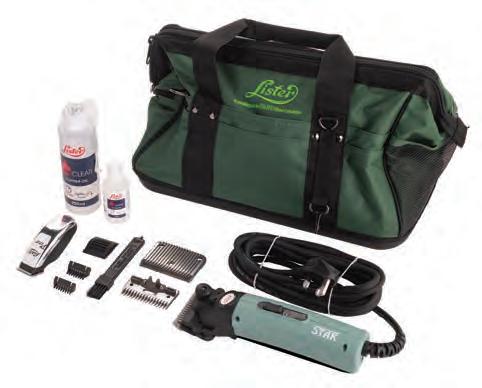
CHEVRON-CIRCLE-LEFT Lister Liberty Promo Pack Was £619.99 Now £329
Tame that mane
Make your horse look world class using this professional clipper pack. The cordless clipper uses lithium ion battery technology which provides up to 120 minutes of cordless clipping. This set includes everything pictured such as a charging unit, extra set of blades, spare battery, 100ml oil, screwdriver and brush in a light Heiniger case plus 3 year warranty.

Chevron-Circle-Down Heiniger Xplorer Clipper Pack Was £502.36 Now £329

40 CountryStore www.molevalleyfarmers.com
Items and offers available in selected stores while stocks last, or until December 30, 2019












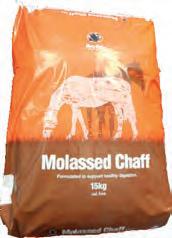
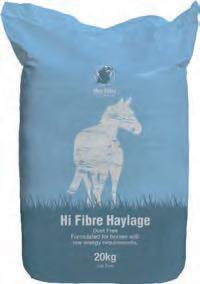





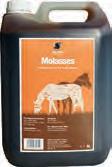









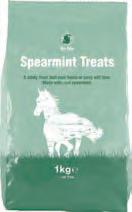













For all your OUR GREAT VALUE MOLE RANGE Mole Valley Farmers Feed, Fibres and Haylage equine needs Mole Valley Farmers Supplements Mole Valley Farmers Treats Visit your local store or moleonline.com For all your OUR GREAT VALUE MOLE RANGE Mole Valley Farmers Feed, Fibres and Haylage equine needs Mole Valley Farmers Supplements Mole Valley Farmers Treats Visit your local store or moleonline.com
CHEVRON-CIRCLE-RIGHT HY Christmas Leg Wraps Red £11.99
Wrap easily around your horse’s legs and fasten with touch tape tabs for a secure fit. Set of 4
WINTER
Wish
LIST
Inspiring Christmas gifts for riders and their horses
Chevron-Circle-Down Weatherbeeta Comfitec Essential Combo Rug £79.99
220G fill, 1200D with twin adjustable front closure, side gusset, cross surcingles, tail flap and removable adjustable leg straps
Chevron-Circle-Down HY Reindeer Antlers £8.99
Simply wrap the touch tape tabs around the headpiece of your bridle and slip your horse’s ears through the holes
CHEVRON-CIRCLE-UP HY Christmas Santa Bridle Set £9.98
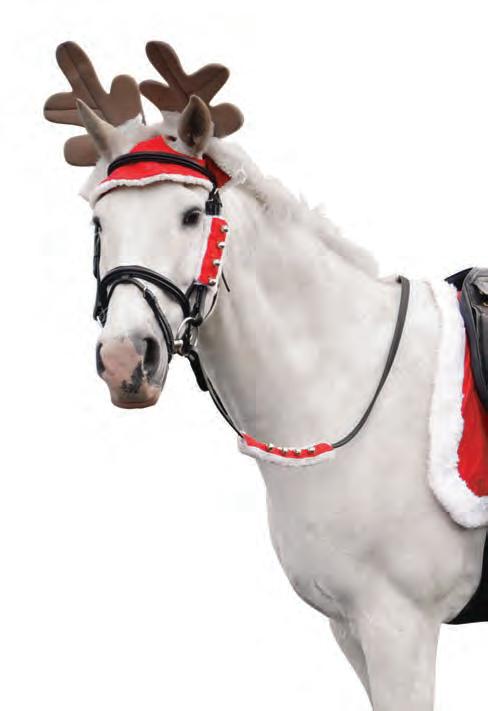
This festive bridle set comes with three decorative pieces, complete with four bells
CHEVRON-CIRCLE-RIGHT HY Christmas Santa Rein Sleeves £7.98
Adorn your reins with festive jingling Santa rein sleeves complete with four bells on each sleeve

CHEVRON-CIRCLE-UP Shires Tempest Jersey Cooler Rug £34.98
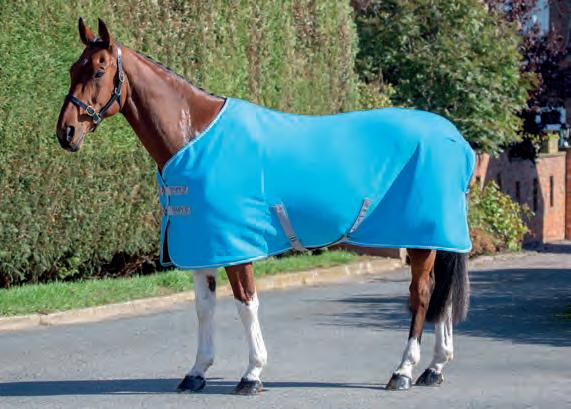
This lightweight rug has a smooth jersey outer and a fleecy inner to help regulate your horse's core temperature
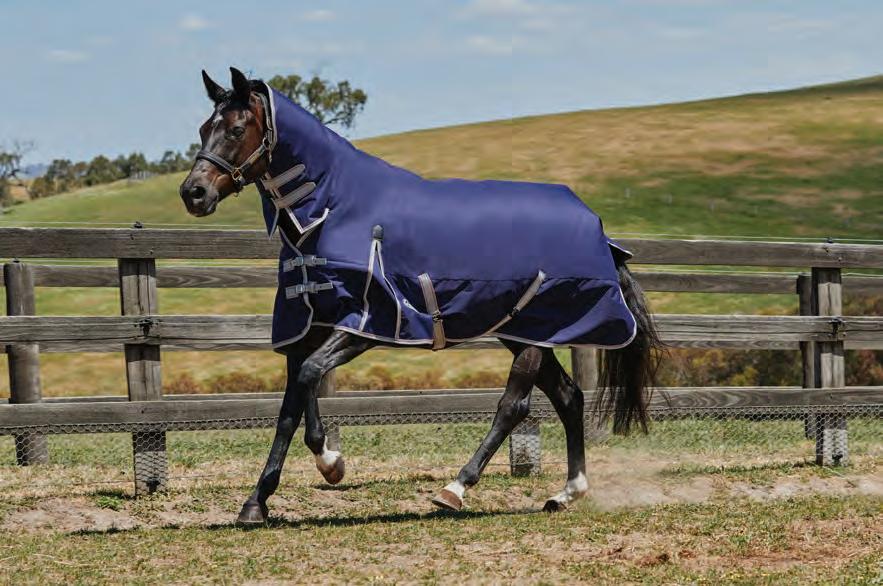
www.molevalleyfarmers.com
EQUINE
CHEVRON-CIRCLE-UP Noble Equestrian Peddie Socks £8.99 each Features a lightweight and breathable panel at the top of the foot and uses Opti-Dry Technology. Available in a range of colours and styles



CHEVRON-CIRCLE-LEFT Horseware Winter Riding Tight in Black Hexagon print £59.99




With a water-repellent finish and a smooth self-fabric waist for comfort. Available in sizes XS–XL
CHEVRON-CIRCLE-RIGHT Noble Equestrian Cheval Jacket £109

Fully seam-sealed jacket featuring a dropped back hem, adjustable waist and packable hood
CHEVRON-CIRCLE-LEFT Little Unicorn Grooming Kit £17.99

This durable set features adjustable pink straps and a hanging loop. Includes a face brush, dandy brush, body brush, curry comb, hoof pick and mane comb

WIN a pair of Firefoot Rawdon breeches and a polo shirt





With over 20 years' experience in the industry, Firefoot combines fashion with practicality for those who like to ride in style. To be in with a chance of winning the outfit pictured below, simply fill in the form below and send to: Sarah Barclay, Moorland House, Station Road, South Molton, EX36 3BH or visit www.molevalleyfarmers.com/countrystore
Name
Address.......................................................................................
Postcode
Account
CHEVRON-CIRCLE-RIGHT Little Rider Advent
Calendar £3.99
Especially designed for little riders, 24 individual windows. Each contain two delicious Herb Stix treats
CountryStore 43 www.molevalleyfarmers.com Firefoot Check out the new autumn/winter range of Firefoot legwear below, available in store now Black and White Check Ladies 26” - 34” and kids 20” - 28” Available in Beige Ladies 26” - 34” and Kids Jodhpur style 20” - 28” (Jodhpur style in Kids) Available in Grey Teal Ladies 26” to 34” Black/Pink, Ladies 26”-34” and Kids 20” - 28” Charcoal Teal, Ladies 26” - 34” and Kids 22” to 28” www.firefoot.co.uk Farsley check breeches Fleece Lined Farsley Breeches Ladies Rawdon Breeches Reflective Ripon Breeches Fleece Lined Ripon Breeches
number Tel ................................................................................................. Email
Closing date for entries is January 31, 2020
So you get the best value from Mole Valley Farmers and its associated companies, we would like to send you information and offers via email, text, phone or mail. Your consent can be withdrawn at any time and we never share your information with 3rd parties.
Required * Yes I’d like to receive updates and offers
No I do not wish to be contacted
Phone Text Email Mail
How would you like to hear from us?
'Social media?
I'M MILKING IT'
Gareth Wyn Jones is the nation’s favourite farmer. He's lived his entire life at Ty’n Llwyfan on the rugged slopes of the Carneddau mountains in North Wales, where his family have farmed for 350 years. It's an unlikely setting for a TV and social media star but Gareth is happy to be known as the 'Tweeting Farmer'

 Words: Rosanna Rothery
Words: Rosanna Rothery
Gareth Wyn Jones didn’t set out to be a celebrity farmer or social media star but it’s a role he plays with a winning blend of sincerity and cheeky charm, qualities which have garnered him a following across the UK.
‘Really I wanted to do more Hollywood, but I didn’t quite get my way,’ quips the star of BBC One’s The Family Farm, before bursting into infectious laughter.
His newly found fame might baffle a few of his contemporaries in the farming world but for Gareth, regular tweeting, creating YouTube videos and having a social media presence has become as much a way of life as sheep shearing and planting peas.
44 CountryStore www.molevalleyfarmers.com
Main image: Dave ThompsonPA Images / Contributor
‘It’s a personal choice – each to their own,’ he explains in sonorous Welsh tones. ‘I’ve got farming friends who say “What the hell are you doing this for?” but I think that’s just a mindset. For the younger generation, it’s much more usual to be sharing their everyday lives with others.’
By videoing and posting his day-to-day struggles and triumphs, Gareth hopes people will make the connection between the food on their plates and the farmers who produce it; a connection that’s been lost in recent decades.
‘It’s so important for us as an industry to get out there more and interact with our consumers and social media is a fantastic platform to reintroduce ourselves to the public.’
In March 2013, snowfall was unexpectedly heavy across the UK and, for many farmers, it meant the loss of thousands of sheep and cattle buried under drifts which reached 12 feet or more.
Gareth was one of the farmers affected and he made moving YouTube footage showing himself and fellow workers digging ewes out of the snow.
Fashion ewe turn
Another social media episode began when a friend alerted Gareth to a tweet by the fashion chain Boohoo stating that the company would no longer be using wool in its clothing due to animal welfare concerns.
‘I thought it must be a joke but what really wound me up was that People for the Ethical Treatment of Animals (PETA) was celebrating and congratulating them.’
Early the next morning, Gareth sped to the top of a mountain and with his flock in the background, made a YouTube video explaining that wool is a natural and sustainable fabric.
‘Within four hours I was doing a live broadcast with Sky News which went out worldwide. That’s how powerful social media is!'
Since its initial tweet, Boohoo has revised its stance and the company is now selling wool that ‘meets high welfare standards'.
‘It’s not right for people to be misled,’ says a passionate Gareth.
‘These people are planting seeds in the [minds of the] younger generation, who have very little understanding of what’s involved. It’s time for farmers to stand up and fight the good fight.’
Gently does it
To engage in that fight, Gareth employs the secret weapons of sincerity, courteousness and likeability.
‘Aggression won’t win; education will,’ he says.
‘I’m sure 99.9 per cent of farmers I know do not want to see the end of the world. They don’t want to see our children starving. We are all on this planet together. The day people realise that farmers are there for them as much as for themselves is the day we reconnect.’
Edible economy
Gareth champions ‘building a better Britain on our bellies’ which means encouraging everyone to buy British produce.
‘It should start at the top with Westminster and the Welsh, Irish and Scottish governments sourcing everything seasonally and where they can locally. If regional produce was going into schools and hospitals, it would turn the economy.’
His stance on veganism, for instance, is more respectful than reactionary: ‘I’ve not got a problem with it. Whatever your diet, whatever your personal choice, that’s your business but don’t mislead people into thinking that by not eating meat you’re going to save the world. The way to save our planet is by eating seasonal, local food which has been sustainably produced.’
The idea that traditional farming carried out by generations of the same families over hundreds of years is responsible for global warming is something he strongly refutes.
It could also help the NHS: ‘We’ve got an obesity problem and a diabetes problem in this country but look at the crap some of this processed food is made from. In the 1950s, it was a lot healthier, people seemed more connected to where their food came from and for some reason, I think people respected the farmer more.’ Supermarket ploys like lost leaders on products such as milk don’t help: ‘Once it’s devalued and it’s like water, people start to think “why should we pay for it?”. But milk is a wholefood, full of vitamins, that you can live off. These are the kind of messages we should be out there promoting and showing the next generation.’
Reality check
So what’s next for the father of three who has thrown open his family life and farm for reality TV shows like The Hill Farm, as well as copresenting the BBC’s coverage of the Royal Welsh Show? Will we see him doing Strictly?
‘You ain’t gonna see me on anything like that!,’ he exclaims with a chuckle. ‘I know my limits.’
CountryStore 45 www.molevalleyfarmers.com FARMING
‘Within four hours I was doing a live broadcast with Sky News which went out worldwide'
Inside INFORMATION
New precision technology is helping farmers improve herd performance and reduce losses. Thanks to these innovative products, farmers can get on top of symptoms before they turn into a disaster, saving the industry millions of pounds a year
For experienced livestock handlers, administering a medicinal or nutritional bolus (a kind of very large, slow-release pill) is all in a day’s work.
Administering a medical grade plastic bolus containing a battery, an accelerometer and a thermometer inside a cow? Maybe not so everyday. However, developments such as smaXtec Inside Technology could see this kind of activity becoming a regular element of livestock care and enable farmers to know their cattle inside and out.
Tech-packed pills
Using a special applicator, the bolus is painlessly inserted down a cow’s throat into the rumen before dropping into the reticulum (see fig 1). It’s weighted to ensure it stays in place and once it’s in there, the animal is none the wiser.

The device then collects data every 10 minutes, recording the cow’s temperature, activity and behaviour.

The data is transmitted to a base station and onwards to smaXtec’s powerful cloud based server. When data is received, it is computer analysed and logged before information alerts about individual

46 CountryStore www.molevalleyfarmers.com
Words: Clare Hunt
Reticulum
Rumen Omasum
Abomasum F IG 1
cows are sent directly to the farmer’s mobile. And because farmers have better things to be doing than analysing data, the alerts (which are brief, clear and specific) can be accessed anywhere and at any time via the user friendly app.
Knowledge is power
So far, so sci-fi, but what can be done with all this information? That’s where things start to get very clever indeed. The smaXtec bolus is a monitoring device, intended to give farmers the data they need to make decisions about each individual animal in the herd.
Just by measuring temperature and activity, it tells the farmer:

• When a cow is in heat and ready for insemination
• When a cow is about to calf (with a 6-15 hour window)
• When a cow has an abnormally high or low temperature
• When the animal is unusually inactive
• When, how much and how efficiently the cow is drinking
This information, gathered from inside the animal, would be very difficult (and time consuming) to gather by any other means, especially as most of the temperature fluctuations would be invisible from the outside.
Bitesized bolus
• The battery in each bolus lasts up to five years
• Replacement boluses can be bought individually


• The system has operated in the UK for three years and in Holland for 12, so data reliability has been tested
• Average return on investment for a farming business is 12 months
CountryStore 47 www.molevalleyfarmers.com
FARMING
Inside INFORMATION
Armed with the valuable data relayed by the bolus, the farmer could:
• Have the cow inseminated within her fertility window, improving conception rates within the herd
• Attend to in-labour cows promptly, reducing calf and cow losses
• Diagnose feverish illnesses such as mastitis (udder inflammation) earlier, thus reducing antibiotic use
• Diagnose low temperature illnesses such as milk fever (caused by calcium deficiency) or metabolic illnesses such as ketosis (when energy demands outstrip energy intake)
• Discover and manage lameness before it becomes acute
• Manage the availability and cleanliness of drinking water to avoid milking animals becoming dehydrated (and allow the farmer to administer fluid drenches if necessary)
Theory into practice
The bolus system is mainly used as a management tool on busy dairy farms. Here farmers are in close, daily contact with their animals, maintaining high standards of welfare and looking out for common complaints (including lameness and mastitis) which can put a dent in productivity. Being able to tackle
problems early improves the well-being of cows, uplifts efficiency and reduces medication use.
smaXtec boluses also work for suckler herds, where animals are reared for beef and are less closely observed than their dairy counterparts. This type of herd may be part of a larger, diversified farming business or a part-time farmer might run it. So being able to keep an eye on animals when they’re out in the fields is hugely beneficial. Similarly, knowing exactly when cows can be inseminated and when calves are on their way saves valuable time.
For block calving operations (where all cows in a herd give birth around the same time) bolus alerts mean labouring cows can be promptly attended to. They can also confirm that no births are imminent, saving wasted trips to the shed and maybe permitting exhausted farmers an occasional night of unbroken sleep at this hectic time.
Other bolus benefits include:
• Minimised time between calving and next conception date (known as the ‘calving index’)
• Lower birth complications and better calf survival rates
• Reduced antibiotic usage
• More efficient time management
More Moletech solutions
Moocall

As a cow goes into labour, her contractions cause her tail to move up and to the side. The Moocall device is attached to the tail to monitor these movements, alerting the farmer by phone when activity is raised and signalling birth could occur within an hour. Monitors can be moved from cow to cow.
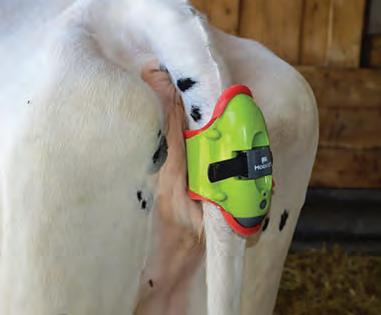
For more information on Moletech solutions, contact Helen Hollingsworth on 01769 576201.

48 CountryStore www.molevalleyfarmers.com
FARMING
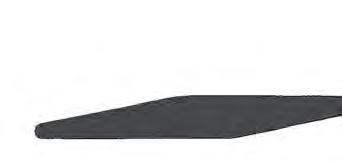




Beefing up
BRITAIN
Drive 30 minutes west of Oswestry and you'll find yourself in a landscape of lush green pasture rising to meet the mountains. It’s here that Wyn Jones works his 500-acre livestock farm, Henfache.

The Jones family have been custodians of this corner of Wales for many generations and now Wyn runs the operation, along with his father and nephew.
The fields and mountains are dotted with the farm’s 1,000-strong flock of Lleyn X Welsh Mountain sheep which grazes far and wide, however it's cattle that Henfache is best known for. A small herd of prize-winning pedigree British Blues is run alongside a crossbreed suckler herd and a larger group of commercial beef animals produced for supermarket sales.
Best of British Blues
Breeding the very best pedigree British Blues is something of a passion on the farm. Renowned for hefty muscle and lean meat, British Blue bulls are a popular choice for crossing
with dairy cattle. Wyn keeps 15 breeding females, whose offspring – both male and female – are sold either to other pedigree herds or to farmers keen to introduce the breed’s desirable traits into their herds.
Wyn uses artificial insemination to ensure his calves are top quality, drawing the optimum legacy from the breed’s wider gene pool. In turn, semen from one of Henfache’s bulls is sold to farmers across the country, passing on his superior traits.
Pedigree animals from Henfache are regulars in the show ring and the team travel the country attending
50 CountryStore www.molevalleyfarmers.com
celebrated events from Cornwall to Scotland. This is the farm’s shop window: winning rosettes and clinching championships raises the profile of its animals and attracts the attention of potential buyers. Building – and keeping – a reputation as a top-flight breeder is critical for a pedigree operation.
When choosing which animals to keep in his own herd, Wyn looks for stock that exemplifies the breed standard and in the cattle with the most promise this "correctness" combines with good size and fluid mobility. If they also have a top quality

family tree, Wyn knows he’s onto a winner. But while picking the best animals has elements of science to it, successful cattle breeders also rely on experience, judgement and instinct. Crossbred sucklers
Alongside the British Blues, Wyn and the Henfache team run a suckler herd, where the calves run with and feed from their mothers until they’re ready
to be weaned. At this stage, Wyn sells them on to other farmers as store animals to be finished.
Careful breeding is also vital in the suckler herd: calves that grow well and quickly are desirable to beef finishers whose profit margins rely on getting animals up to slaughter weight in as economical a way as possible. Henfache calves are crossbred from Limousin, Hereford and British Blues – all muscular breeds with impressive beef credentials.
CountryStore 51 www.molevalleyfarmers.com FARMING
We Brits love a nice bit of beef – it's even a symbol of our national identity – but what does it take to rear top quality beef cattle? We visited dedicated farmer Wyn Jones to find out
Words: Clare Hunt
'Keeping a reputation as a top-flight breeder is critical'
© Laura Heilbrun
WIN Jack Pyke his and hers fleece gilets


Well-established clothing brand Jack Pyke produces outdoorwear using quality materials at affordable prices and is well known for its camouflage colour palette. To be in with a chance of winning, simply fill in the form below and send to: Sarah Barclay, Moorland House, Station Road, South Molton, EX36 3BH or visit www.molevalleyfarmers.com/countrystore
Black Pepper
• Supports healthy joints
• Supports healthy joints
• Supports healthy joints
• Aids digestion and promotes a healthy skin and coat
• Aids digestion and promotes a healthy skin and coat
• Aids digestion and promotes a healthy skin and coat
• Formulated for maximum absorption and bio-availability
• Formulated for maximum absorption and bio-availability
• Formulated for maximum absorption and bio-availability
• Complete turmeric pellet
• Complete turmeric pellet
Turmeric (5.1% curcumin)
• Complete turmeric pellet





(5.1% curcumin)










Turmeric (5.1% curcumin)
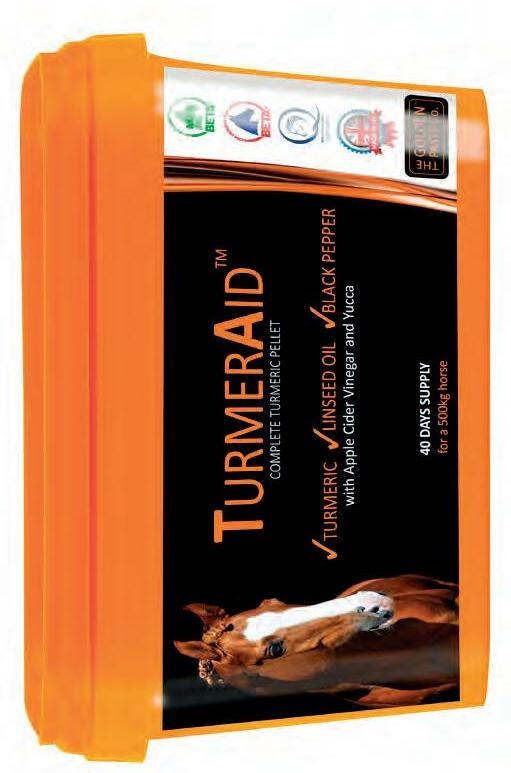


52 CountryStore www.molevalleyfarmers.com
TM www.goldenpastecompany.com
through winter with ID™
Power
www.goldenpastecompany.com
TM
Power
winter with ID™
through
Yucca
TM
Black Pepper
www.goldenpastecompany.com
Power through winter
Turmeric
Linseed Yucca Black Pepper Apple Cider Vinegar
with T URMER A ID ™
Name Address Postcode Account number Tel ................................................................................................. Email Closing date for entries is January 31, 2020 So you get the best value from Mole Valley Farmers and its associated companies, we would like to send you information and offers via email, text, phone or mail. Your consent can be withdrawn at any time and we never share your information with 3rd parties. Required * Yes I’d like to receive updates and offers No I do not wish to be contacted How would you like to hear from us? Phone Text Email Mail
Finishing calves
The Jones family are ever alert to new opportunities and they’ve recently entered into an arrangement with Morrisons supermarket to finish calves for beef. This involves bringing in specially bred calves, aged four to five weeks, to be grown on.
It takes about 17 months – 20 at most – for animals in this system to be ready for slaughter, so it’s a long term proposition which demands commitment. It’s not about getting the cattle fat as quickly as possible as that wouldn’t result in good beef; it’s about producing consistent carcasses through careful rearing.

Wyn’s Morrisons cattle stay indoors in straw-bedded barns year round, eating a balanced diet of chopped straw or silage and concentrates. Getting the nutrition just right and understanding how much energy it contains is critical to ensure that the animals grow lean muscle and just the right amount of flavoursome fat. Finding the best quality feed at the right price is essential for Wyn’s
profit margins and variables like the weather can conspire to inflate straw and silage costs (as was the case during 2018’s summer drought). To supplement the grass and cereal elements of Wyn’s regime he feeds his cattle potatoes – a coproduct of human food manufacturing.
For a farm like Henfache, working with a supermarket lets the team concentrate on what they’re good at – producing excellent beef animals – while relieving them of the responsibility of finding a route to market or directly marketing their product, tasks many farmers scarcely have time for.
Year in, year out
All farmers will recognize the Jones family’s daily schedule: a non-stop roundabout of feeding, checking, cleaning and tending the needs of their livestock. There’s no such thing as a day off and all who work on Henfache have to turn their hands to any task, sharing the daunting workload.
The year is marked by periods that see Wyn and the team even busier
than usual. Calving is scheduled to take place in autumn and late spring, slotting around the hectic and labour-intensive lambing period of early spring.
As summer approaches, Wyn’s attention turns to cutting silage. This is a vital feed source for his fattening beef animals and a way of preserving grass when it’s bursting with new-growth goodness.
Gauging the readiness of the grass by its length and moisture content, Wyn and the team cut and then ensile it. Getting the grass in is a major milestone and with a good harvest comes reassurance that all the bellies on the farm will be filled.
Summertime means showtime: a heady mix of hard work (getting the animals in tip-top condition and turned out to their best advantage) and high pressure (hoping for success in the ring and interest from potential buyers). But it’s not all toil as, alongside the chance to do business, shows are also an opportunity to kick back, have fun and catch up with friends.
CountryStore 53 www.molevalleyfarmers.com
'Getting the nutrition just right is critical'
© Laura Heilbrun
THE LOAD Sharing

Depression and anxiety are hidden problems facing farmers today, but mental health expert Aarun Naik insists that farmers don’t have to struggle alone
Words: Pat Keenor
It is a horrifying statistic: each week one UK farm worker takes their own life.
The agricultural sector is one of the highest occupational groups at risk of suicide and workers in the industry suffer disproportionately high levels of stress and mental health issues. What is it about farming that makes it susceptible to these problems?
According to mental health expert Aarun Naik the circumstances of farming mean those who work on the land are exposed to stress as a result of a range of issues which include:
• Market volatility
• Price pressure
• Debt
• Regulatory red tape
• Rural remoteness
• Long hours of work (often alone)
• Intergenerational tensions from issues such as succession
• Weather
• Animal disease like TB and the corresponding testing regime He urges anyone finding it difficult to cope to get help.
‘Don’t go it alone and keep it to yourself, talk to somebody about what’s going on for you,’ he advises.
There can be a stigma attached to the topic of mental health but his message is clear: ‘If you do notice that you or others are struggling, it’s really important
to seek help and support and to do so early to reduce the possibility of things escalating.’
Aarun stresses the importance of reaching out to somebody within your family or social network who might be able to support you. Alternatively, contacting one of the fantastic organisations within the rural community which understand the unique world of farming can be invaluable. They are available to help those in need, even if that just means being a listening ear (see page 56 for details of organisations).
In Aarun’s experience, men sometimes have more difficulty admitting feeling fragile or emotionally vulnerable than women.
tough, and consequently, often carry unrealistic expectations about being able to cope and handle problems on their own. Having to ask for support can be seen as personal failure – or it raises a fear of being judged as weak.
‘Farmers are typically very willing to help others,’ says Aarun, ‘yet are often unwilling to ask for help themselves. Instead they may tend to keep concerns bottled up and attempt to rationalise what they are feeling as a normal response to difficult situations.
‘They may socially withdraw, isolate themselves and wrestle with feelings of shame and guilt. They will commonly put
‘While male farmers may talk about their bad back or bad knees, they are less likely to talk with family, friends or health professionals about difficult feelings that may be bothering them,’ he says.
‘Furthermore, within the world of farming, a level of social conditioning over generations, particularly among men, is thought to have encouraged an innate culture of self-reliance, stoicism and independence.’
Some farmers may hold a traditional view of masculinity where men are expected to be
off going to see a doctor or not admit that they need help until they are close to breaking point.’ However, Aarun believes it isn’t all doom and gloom.
‘I am hopeful that attitudes are slowly changing as we move through a generational shift. Today’s younger farmers have arguably grown up exposed to less judgment and stigma around the issue of mental health.
‘Consequently, they seem more open to talking about their struggles than their parents’ or grandparents’ generation.’
CountryStore 55 www.molevalleyfarmers.com FARMING
‘Farmers are typically very willing to help others, yet are often unwilling to ask for help themselves’
WHERE TO FIND
SAMARITANS

Confidential and available 24 hours.
Call free 116 123
www.samaritans.org
STRONGHEART
Run by Aarun Naik, it specialises in the mental health and well-being of farmers.
Call 07934 180 579
www.strong-heart.co.uk
FARMING HELP
Major farming support charities under one umbrella. Includes the Farming Community Network (runs a confidential national helpline and e-helpline), the Addington Fund (provides homes for farming families who have to leave their farm through no fault of their own) and the Royal Agricultural Benevolent Institution (a grant-making charity which provides confidential help to retired and working farming people in financial difficulty).
Call 03000 111999
www.farminghelp.co.uk
FARM SAFETY FOUNDATION
Various advice and information on farmer well-being.
www.yellowwellies.org
Aarun Naik was named as one of Farmers Weekly Key Influencers of 2018 for his work focusing on mental health in farming.
After completing his Nuffield Scholarship on mental health and well-being in farming, Aarun made the decision to leave his role at the National Farmers’ Union and concentrate full time on his counselling and training work. Most of his work was not related to farming, yet due to his background in the farming industry, he began attracting clients from the agricultural and equestrian worlds.
Similarly (perhaps because of the insight he gained from his Nuffield studies) various organisations in the farming world have asked Aarun to become involved in a number of initiatives and to develop training.

Aarun’s organisation Strongheart is a way of bringing all of his work in this area together.
Aarun Naik’s Nuffield farming report Supporting Farmer Wellbeing: Addressing Mental Health in Agriculture and Horticulture is available to download at www.nuffieldinternational.org
56 CountryStore www.molevalleyfarmers.com
help
S3 Weigh System
Combined with the S3, MiHub Livestock helps you track your animals’ weights and average daily gains, and forecast their growth, so you can rest easy knowing you’ll meet your weight targets.


You can monitor your animals in groups and act early if they fall behind target, or record visual ID’s to individually track and identify top performers and slow growing stock.
High Visibility LED Backlit Screen
Connect to app via Bluetooth® to record weights and configure settings
Rechargeable battery with 15 hour life (no mains power required)
SuperdampTM III Technology captures accurate live weights more quickly than any other weigh scale indicator on the market


www.datamars.co.uk
Brands of Datamars Group
TruTest. A brand of
*When purchasing a Tru-Test device.
Proponents of rewilding argue that, by letting nature take care of itself, damaged ecosystems can be repaired. Others dismiss rewilding, saying that time-honoured ways of managing the countryside produce food, support a diverse environment and contribute to the economy. We take a look at the pros and cons
Biodiversity Food security Rewilding IN THE BALANCE

 Words: Pat Keenor
Words: Pat Keenor

Pros
Biodiversity in the UK is reducing and studies show that 56 per cent of species are in decline. Rewilding schemes have seen the reintroduction of native animals and plants.
Proponents like political activist George Monbiot believe that wild boar, wolves and lynx should be reintroduced to certain areas.
Cons
Landowners worry that animals roaming free could damage hedges, fencing and crops.

There are concerns that lynx and wolves would be a threat to farm animals and to anyone enjoying the countryside. (On a recent study trip to Norway, a farming delegation heard that, in 2016, Norwegian authorities paid out compensation on nearly 20,000 sheep lost to predators).
Experts agree that the reintroduction of wild boar is controversial due to the damage they cause, with the destruction of crops a real possibility.
Pros
Naturalists argue that current forms of food production damage the farming environment in ways that undermine future food production, for example through unsustainable soil management, fertiliser leaching into waterways and the release of greenhouse gases.
Cons
Farmers say rewilding will take large areas out of the control of the farming sector. Organisations like the NFU warn about the possible damage to domestic food security.
British farms produce 61 per cent of the nation’s food, provide 3.8 million jobs and contribute £111 billion to the economy. Rewilding would reduce food production which could worsen the UK’s carbon footprint through the need to import food from around the world.
58 CountryStore www.molevalleyfarmers.com
NFU president Minette Batters argues that rather than rewilding, farmers should maximise the productivity of their land to produce high quality food. Not only is this profitable, it could also boost carbon storage and renewable energy. She stated that UK farmers have an aspiration to reach net zero across all greenhouse gas inventories by 2040.
Speaking at The Oxford Farming Conference she said: ‘Our Secretary of State must be the brand ambassador for British food. We have one of the most prized markets on the planet. I have no doubt that the prize is there: a sustainable, competitive and profitable farming sector that is fit for this century, not last.’
Ecotourism


Pros
Supporters say rewilding could be a way to help struggling farms with opportunities for ecotourism so that farmers become less dependent on disappearing subsidies.

Cons
Profitable farming Flooding
Pros
The 3,500 acre Knepp Estate in Sussex, a once unprofitable arable and dairy farm, is now a pioneering rewilding project. Cattle, ponies, pigs and deer roam free and their grazing has encouraged new habitats. The result has been the reestablishment of some rare species, while endangered birds, like the nightingale and turtle dove, are now breeding.
The Estate now has the largest population of purple emperor butterflies in the country. It has also become economically viable by offering a campsite, wildlife tours and producing meat from animals grazed on the estate.
Cons
Many say that even if Knepp – an inherited estate – is profitable, it doesn’t necessarily follow that its model of farm diversification would be viable for all types of farms. Tenant farmers or farmers with massive mortgages, for instance, might not be in a position to start up a similar tourist attraction.
Farmers fear they will be excluded from the decision making process, to the detriment of the viability of their land. They say some rewilding schemes have the air of “theme park” rather than a genuine attempt to help species and the land.
Pros
European beavers have been reintroduced to the UK in controlled areas, including the River Otter in Devon. Water takes ten times longer to flow through beaver-generated wetlands than in rivers and streams without them; this slow moving water regulates flow and reduces flooding.
Cons
Anglers say beaver dams could impede migrating fish, while some landowners are concerned about potential flooding caused by the dams, as well as the loss of trees and crops.

CountryStore 59 www.molevalleyfarmers.com
FARMING
COUNTRYSIDE MATTERS
Rural News and Issues
Harvest Home
There’s only one way to celebrate another harvest being safely gathered in and that’s a hearty feast (plus a barrel-load of cider) with friends at a marquee in the countryside
Words: Selena Young
Farming can sometimes be a lonely business, but wonderful traditions such as Harvest Home bring the community spirit to life, offering a fantastic opportunity to spend time with familiar faces and share the best of country living.
To mark the harvest being successfully gathered in, the annual Hewish, Puxton and Wick St Lawrence Harvest Home Luncheon returned to Weston -Super-Mare in Somerset this August.

The 146 year old tradition took place at the Mead family field and saw around 800 country folk come together to honour a tradition with deep roots in the farming community.
As custom dictates, the day began with a church service before attendees met at the marquee for festivities.
Among those proposing a toast was Katherine Mead who applauded the
success of the new Derek Mead Health Room (named after her late father), funded by donations from the harvest lunch and a number of other organisations including Mole Valley Farmers.
Katherine explained that on the second and fourth Saturday market day at Sedgemoor Auction Centre in Bridgwater, nurses have been able to offer cholesterol tests, bereavement counselling and mental health checks to farmers.
‘We survive by donations and our farming community has dug very deep to make this happen,’ she added.
Plates laden with boiled pickled silverside, roast topside of beef and boiled ham were generously passed around the tent. Hands swerved left and right to share salads, breads, sauces and accompaniments.
60 CountryStore www.molevalleyfarmers.com
From left to right: Clifford Pearce (Butcher), Phil Joles (Harvest Home Chairman), Liz and Mike Edwards (Harvest Home Committee members), David Edwards (Harvest Home Secretary), Cllr David Shopland (Chair North Somerset Council), Mrs Ann Shopland, John Thatcher (President)
Every morsel eaten was produced locally and any leftovers were donated to the homeless or auctioned off. Later, between mouthfuls of boozy sherry trifle, stories were shared, cider swigged and general merriment had by all.
Harvest Home is about more than just feasting and cheering a successful yield though, as each year a significant amount of money is raised for a range of charities.

Last year, £25,000 was donated to good causes and this year proceeds from the gallon of whisky prize draw were donated to the Cystic Fibrosis Trust. Two additional charities, Life Skills and Crimestoppers, also received cheques for £1,000. Funds were raised by raffles, best decorated floral and harvest wreaths, a painted welly boot competition and entertainment.
President of the Harvest Home committee, John Thatcher of Thatcher’s Cider, said: ‘The Harvest Home lunch continues to be an opportunity for the farming community to demonstrate what it does and for local people who aren’t involved in farming to join in and have a fabulous day of fun and feasting’.
No-till, no problem
No-till agriculture, also known as zero tillage or direct drilling, is a method of producing annual crops without disturbing the soil by ploughing. It originated in America where it is widespread and used as a way to increase water retention on arid farmland.
As a result of minimal soil disturbance and by keeping the ground covered with residual or cover crops, the health and resilience of the soil is improved. Water can permeate without impaction, leading to less run-off and fewer floods, while beneficial bacteria, earthworm and insect populations increase within the soil.

Another benefit is that carbon is locked in, rather than released into the environment through ploughing. There is also a reduction in fuel, labour and machinery costs – although specialist seeding equipment is needed.
No-till is not easy, it demands a great understanding of soil health and it can take a while for the soil to adjust, but its popularity in the UK is undoubtedly on the rise.
CountryStore 61 www.molevalleyfarmers.com
COUNTRYSIDE MATTERS
Liz and Julie Edwards
Access all areas?
A sheep farmer from Gwynedd has taken radical steps to protect a natural beauty spot on his land for generations to come.
Since the 1980s, landowner Allan Titley has allowed walkers access to his land so that they can picnic on the shores of Blue Lake, a flooded disused quarry near Fairbourne.

He told the BBC: ‘Thirty years ago they respected the place. It is a beautiful spot and it has just been trashed. It’s private land in the middle of my farm. They are destroying the land.’
While some have expressed anger and disappointment at no longer being able to access Blue Lake, many more have applauded Mr Titley’s decision to protect the environment, look after his land and preserve a stunning corner of Wales from being blighted by rubbish.
However, boosted by recommendations on social media, Blue Lake’s popularity exploded – resulting in severe littering. After collecting 40 bags of rubbish, Mr Titley took the drastic action of protecting the lake by blocking the tunnel entrance to the site.
The relatively new phenomenon of social media and websites such as Trip Advisor revealing the whereabouts of lesser known beauty spots is creating a whole new set of problems for landowners who look after natural attractions. What will this mean for the future of access? Watch this space ...
62 CountryStore www.molevalleyfarmers.com
'Protect a natural beauty spot ... for generations to come'
Blue Lake, Fairbourne
Winter checklist
Extreme and fluctuating weather conditions make it even more important for farms to prepare for the winter months. Make use of the relatively quiet late autumn to work through this essential checklist
Vehicle check
• Clean unused machinery and store under cover
• Service and repair anything that needs attention, so it’s ready to go in spring
• Check winter machinery, tyres, fluid levels and engine coolant. Change oil and filters if needed
• Keep spare batteries for jump starting or replacing and ensure that fading batteries are replaced

Farm ready
• Check and clear access points to the farm in case of ice or snowfall
• Identify flood risk areas, clean and repair gutters and clear drains

• Check fences and roofs are secure and strong enough to withstand storm damage
• Keep supplies of salt and grit close at hand in potentially slippery areas
• Stock up on food and bedding and ensure supplies are close to where animals need it, in case bad weather strikes
• Ensure access to water and insulate pipes if necessary
• Draw up a contingency plan for reaching animals in adverse conditions (work with neighbouring farms to source additional safe and accessible housing areas if needed)
• Prepare shelters for lambs and young animals in advance of lambing time
• Ensure winter clothing – jackets, boots and gloves – is adequate and ready to hand
• Clean, sharpen and oil hand tools and store in a dry place
• Ensure adequate insurance cover is in place
Farm security
Rural crime is rising in almost every region, at a cost of £50million in the UK in 2018, so it’s important to maintain high levels of farm security.

• Keep gates closed
• Remove keys from vehicles
• Lock up tools and equipment and keep them out of sight
• Consider installing security lighting and CCTV. Tracking devices on expensive equipment can also be a good idea
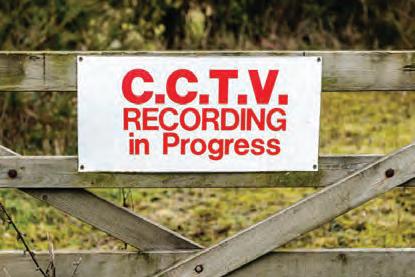
• Lay gravel rather than hard standing around farm buildings
• Join a Farm Watch scheme. Similar to Neighbourhood Watch, they are run by (and for) members of the farming community and supported by the police

CountryStore 63 www.molevalleyfarmers.com
COUNTRYSIDE MATTERS
SMALLHOLDER THE
Been telling porkies? Beware that your body language doesn’t give you away, warns author and smallholder Simon Dawson



Photographs: Guy Harrop

Could you tell if I was lying to you? Could you tell if I fancied you? Can you spot a real smile from a fake smile? How good, exactly, are you at reading body language?
‘Whenever I go in with my pigs, they attack me,’ the man said. We were standing on the path looking up at Trouble and Kenickie, two pigs who could sum up all they needed to know about a person in the stamp of a trotter.
I’d only known the chap for an hour, but he seemed nice enough. He’d come, he said, in a last-ditch attempt at understanding his animals. Things had become bad. Dangerous even. Either this worked, or he was giving up.
‘So, go in with my pigs,’ I told him.
‘Let’s see what’s going on.’
Brow furrowed, he crossed his arms and stepped back. ‘What? I thought you were going to tell me what to do first? Aren’t you supposed to be showing me or something?’
Laughing, I said, ‘If they don’t like you, I promise I’ll come and save you.’
He cut quite an imposing figure as he climbed towards the gate, 6’2” at least – and stocky with it. As he climbed, the pigs came to meet him, like a porcine welcoming committee, arriving either side of the gate together. Turning, he said, ‘You want me to go in? Just like that?’
Now, full disclosure here. I did once feed a friend to my pigs, but it was a very different set of circumstances, more
educational, (and it was only Ziggy, who might be my best friend but he’s also an idiot and definitely deserved it). Anyway, he survived and the therapy is really starting to kick in now, so all’s good.
Leaning against a handy post I waved my hand, 'Go on'. I watched as the chap turned back towards the gate and doubled in size. I’m not kidding, it was like watching Dr David Banner turning into the Hulk, only with less ripping of cloth. He got taller, he got wider and his arms moved out as though someone had sneaked up and shoved a few rolls of wallpaper under them. I blinked twice at the same time as the pigs. Then he opened the gate and stomped in. The BFG without the F.
legged it out, landing next to me with a, 'You see! You see! She was going to eat me'.
‘Er, blimey,’ was all I could manage. Okay, time for a complete body language overhaul. Over the next couple of hours, this is what I showed him.
First, think shape. If you make yourself big and wide, you look aggressive; imagine two blokes squaring up to each other in a pub. While flight animals might run from this, fight animals will see it as a challenge. Soften your outline, be unconfrontational.
Second, think about voice. Say what you like but do it softly. Be friendly, smile; just because they’re animals doesn’t mean they can’t look at your face to see how you’re feeling.
Third, consider personal space. It’s an invisible barrier of about 30cm around your body, and if someone unwanted enters it, it’s very uncomfortable. Same goes for animals. Before you enter their personal space, you need to earn their trust.
‘Right! Get out of my way!’ he yelled. You didn’t need to see his face to know that his teeth were gritted. Stomp. Stomp. Stomp. He barged through them. ‘Keep! Away! From! Me!’
The common misconception is that a boar will attack before a sow, but that’s not always the case. If a female feels threatened she’s in there quick. And Trouble did feel threatened. Everything about the man was aggressive, so she reacted aggressively back, bared her teeth and growled at him. Too stunned to do anything, I watched as he screamed then
Fourth, and possibly the most important: body language is a two-way conversation. Not only do you need to think about what you’re communicating to them, you need to understand what the animal is saying back.
If this all seems confusing, picture this scenario. You’re in a nightclub and you’re single. The music’s loud, so talking’s out. You spot someone really dishy at the bar and decide to approach them. Soft outline, smile, don’t get too close too soon and look for the signs they’re giving you. Approach an animal the same way. Simple.
CountryStore 65 www.molevalleyfarmers.com SMALLHOLDING
‘It was like watching Dr David Banner turning into the Hulk, only with less ripping of cloth’
SMALLHOLDING SEASON
Winter is a tough time for anyone keeping animals. The worries are endless: are they warm enough? Are they too warm? Have they had enough to eat? Are they getting the right supplements? Simon shares a few tips to make life less stressful

Invite the vet for a walk-around
We’re all guilty of using vets only in emergencies and when the worst has already happened. But sometimes pre-empting problems can actually save you money and heartache. Inviting your vet out to walk with you around your farm or smallholding, while chatting about housing, feeding and medications can highlight things you might not have thought of.
Touch every animal, every day
Obviously if you’ve got 2,000 sheep out on the moor this isn’t practical, but if you’ve got a few pigs, a couple of goats and a handful of chickens, physical contact by stroking and petting each animal daily is important, not only for their sense of well-being
(and yours), but also for spotting problems before they become an issue.
Read for pleasure
During long winter nights in front of a blazing farmhouse fire, I recommend a read of In Defence of Dogs by John Bradshaw. He looks at the world through a dog’s eyes, debunking myths and old wives’ tales about man’s best friend.
Make golden paste
This is for you rather than your animals as anything cooked in a home kitchen cannot be fed to livestock. It’s fab for aches, pains and inflammations which many farmers suffer from in the cold months. Ingesting a teaspoon a day is said to
work wonders, but do note that it’s not an alternative to seeking medical help when needed.
Ingredients
Water 250ml
Turmeric 60g
Coconut oil 70ml
Ground black pepper 2-3 tsps
Put the turmeric and water in a pan and stir over a gentle heat until it becomes a thick paste. This should take around 7-10 minutes. Add a little additional water or turmeric along the way to get a good thick consistency. Add the pepper and oil at the end of cooking. Stir well or whisk. Once cooled, keep it in the fridge and use within two weeks (it can also be frozen for up to six months).
66 CountryStore www.molevalleyfarmers.com
Chevron-Circle-Down Burgon & Ball Dag and Hoof Pack £19.32 Contains 3.5” single bow dagging shear and a super sharp footrot shear, essential for keeping healthy, happy sheep
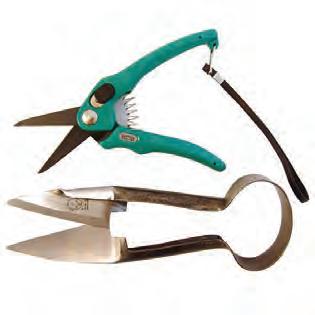
CHEVRON-CIRCLE-LEFT Marriage’s Potbellied Pig Cubes 20kg £11.30

Full of vitamins and minerals, but low in protein to help pigs maintain a healthy weight. Suitable for potbellied, kune-kune, micro and pet pigs
CHEVRON-CIRCLE-UP Mole Valley Farmer's 18% Calf Coarse Mix 25kg £10.10

Specialist 18% protein molassed calf coarse mixture, made with natural ingredients


Essentials SMALLHOLDING
CHEVRON-CIRCLE-UP Mole Valley Farmers Sheep Coarse Mix 25kg £9.95

High quality molassed sheep mixture, fortified with vitamins and minerals, used as a complementary feed for sheep
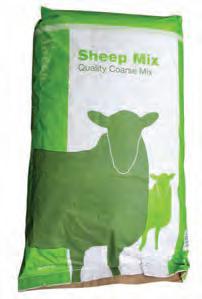
CHEVRON-CIRCLE-UP Ultra Power Rat Trap Metal £7.38

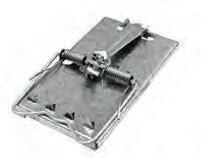
Easy to set and can be used indoors and out

CHEVRON-CIRCLE-LEFT Poultry Essentials Kit £28.50

Perfect if you are new to keeping chickens. Suitable for up to eight birds



CountryStore 67 www.molevalleyfarmers.com SMALLHOLDING
Showtime
Mole Valley Farmers attended 38 shows across the UK in 2019.



Here are some of our highlights
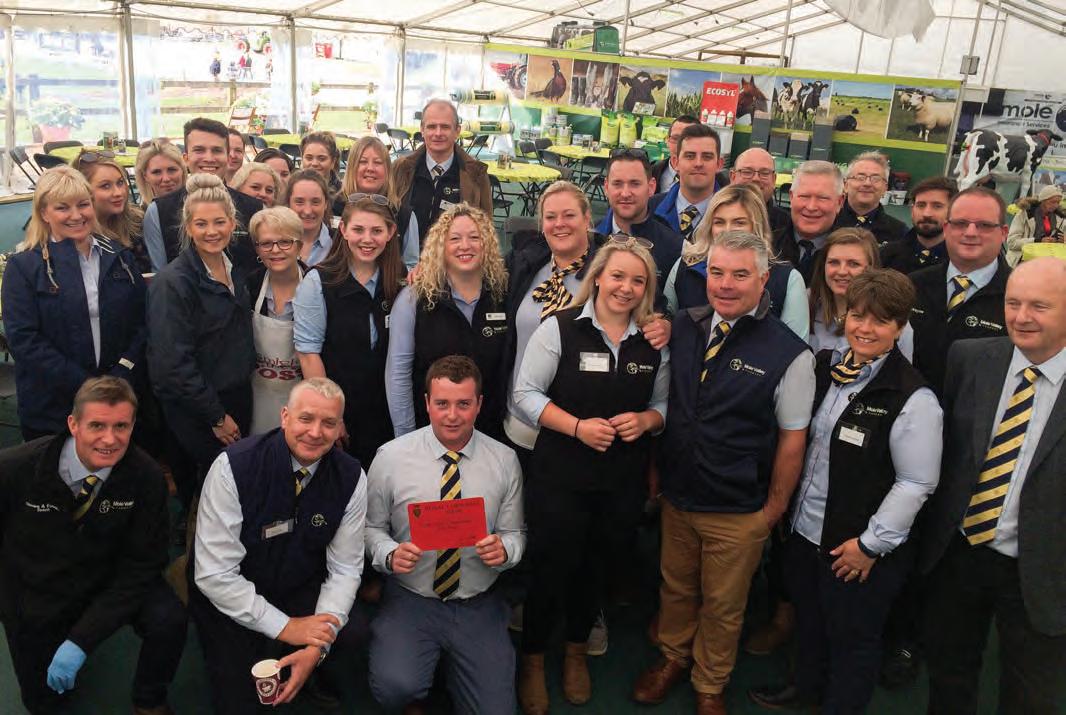
68 CountryStore www.molevalleyfarmers.com
(1) 2019 Royal Cornwall Show First Prize - Trade Stand Competition
(2) Julie Edwards and Andrew Jackson from Mole Valley Farmers chat to Princess Anne at Dairy-Tech (February 9)
(3) Julie Edwards sat with Mole Valley Farmers Young Handlers
1 2 3

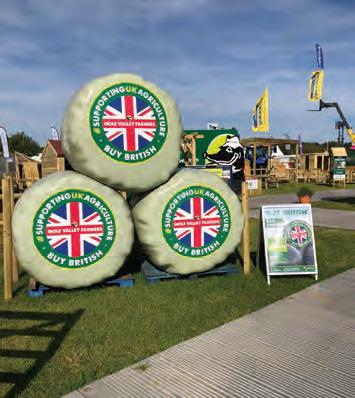





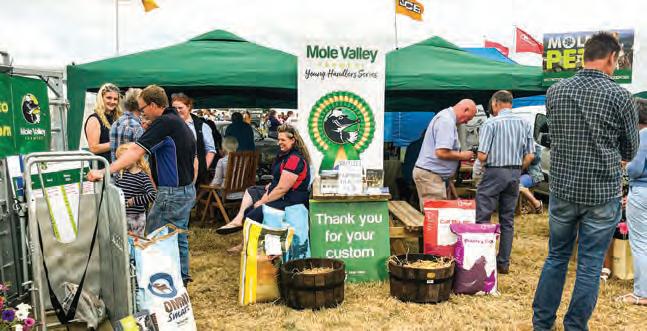

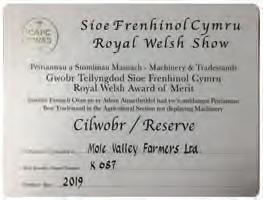


CountryStore 69 www.molevalleyfarmers.com COUNTRY LIFE
(4) Devon County Show – includes the infamous selfie sofa and the popular bale stickers (May 16). (5) Royal Cornwall Show (June 6).
(6) Mole Valley Farmers Young Handler Series. (7) Liskeard Show (July 13). (8) David Branchett and Richard Griffiths at the Royal Welsh Show. (9) University of Reading's CEDAR Hall Farm wins High Feed Efficiency award, sponsored by Mole Valley Farmers, at Cream Awards, (February 6).
(10) 2019 Royal Welsh Show Award of Merit – Best Agricultural Trade Stand (not displaying machinery).
4 6 7 8 9 10 11 5
(11) The Royal Bath & West Show 2019 – Large Stand Gold
TREASURE National
The National Trust was founded by a priest, a lawyer and a social reformist and in 2020 celebrates 125 years as a custodian of coast, countryside and historic properties across the UK
 Words: Kathryn Lewis
Words: Kathryn Lewis
Marking the beginning of footpaths, signalling buildings’ historic status and proudly displayed on car window screens across the country, the National Trust’s oak leaf logo has become one of the most recognised – and best-loved – symbols in the UK. While almost 27 million people visited National Trust sites across England, Wales and Northern Ireland in 2018 (Scotland has its own version: National Trust for Scotland), few know the history behind the charitable organisation.
A leaf out of history
Passionate about the people of London being able to access open spaces, social reformist Octavia Hill first came up with the idea of creating the organisation in 1884 when she was asked to help protect the city’s Sayes Court Garden.
She joined up with fellow open-space campaigners Hardwicke Rawnsley (a Church of England priest known for his preservation work in the Lake District) and lawyer Sir Robert Hunter and in 1895, the trio founded the The National Trust for Places of Historic Interest or Natural Beauty.
Just weeks after the Trust was officially registered, they received their first piece of land, care of Mrs Fanny Talbot. Dinas Oleu is a five acre stretch of gorse-covered hillside in Barmouth, north west Wales.
A year later the Trust saved a building from demolition for the first time, purchasing Alfriston Clergy House in Sussex for the grand total of £10.
In 1907, cofounder Sir Robert Hunter drafted The National Trust Act so that the Trust would be granted status as a statutory corporation. As a result the charity was able to declare land inalienable, which means it cannot be sold, mortgaged or purchased against the Trust’s wishes.
The nation's favourites
The National Trust’s most popular attraction is the Giant’s Causeway (pictured left) in Northern Ireland. Some 665,581 people visited Finn McCool’s basalt columns on the causeway in 2016-2017.

Clumber Park, a beautiful stretch of parkland, heath and woods in Nottingham is second favourite.

CountryStore 71 COUNTRY LIFE
©National
©National
Visitors at the Giant's Causeway in County Antrim, Northern Ireland
Trust Images/John Millar
Trust Images/Chris Lacey
The Chapel of St Mary the Virgin at Clumber Park, Nottinghamshire
Modern milestones
Today the Trust looks after 780 miles of coastline, 248,000 hectares of land and over 500 houses, castles, monuments, gardens, parks and nature reserves. Its work is still driven by a dedication to preserving the nation’s heritage for all to enjoy and last year it spent £138m maintaining its sites – money raised by membership, donations and revenue from commercial operations such as on-site cafes and shops.
As well as being the second biggest voluntary organisation in the UK (the AA pips the Trust to the post when it comes to membership), the National Trust is the country’s largest farmer with around 1,500 tenant farmers and graziers.



It also owns 59 villages (including Buttermere in Cumbria, Chiddingstone in Kent and Lacock in Wiltshire) 39 pubs, nine lighthouses and a goldmine in Carmarthenshire.
FORAGE FIT FOR A KING
· Dust-free · Completely natural
· Highly compressed
· Absolutely nothing added
· Suitable for all types of horses and ponies
“A dust-free forage is so vital for my team of horses” - Mary King “Our horses love HorseHage and we can compete confidently, knowing they are getting a dust-free forage which helps to maintain a healthy respiratory system” - Emily King
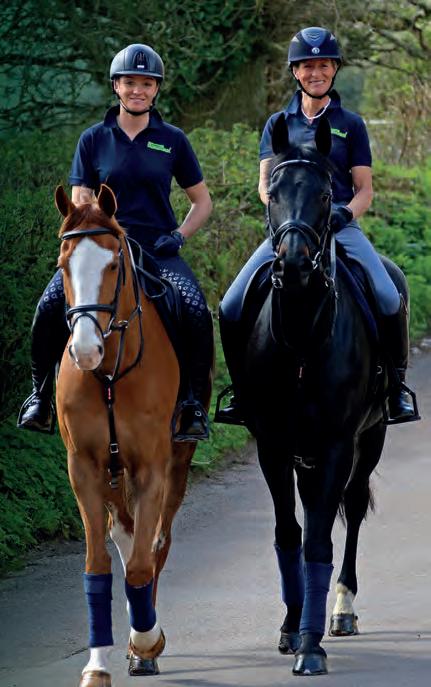
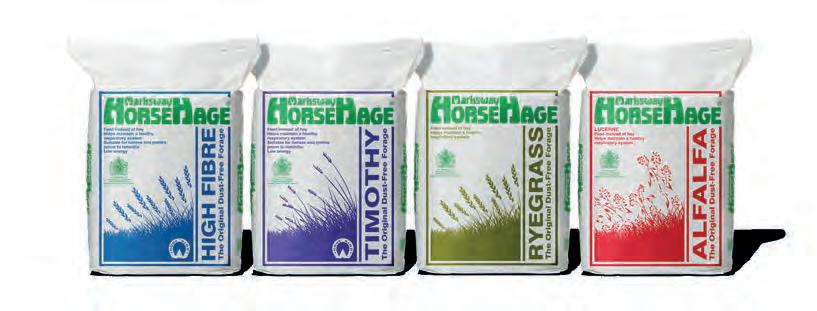
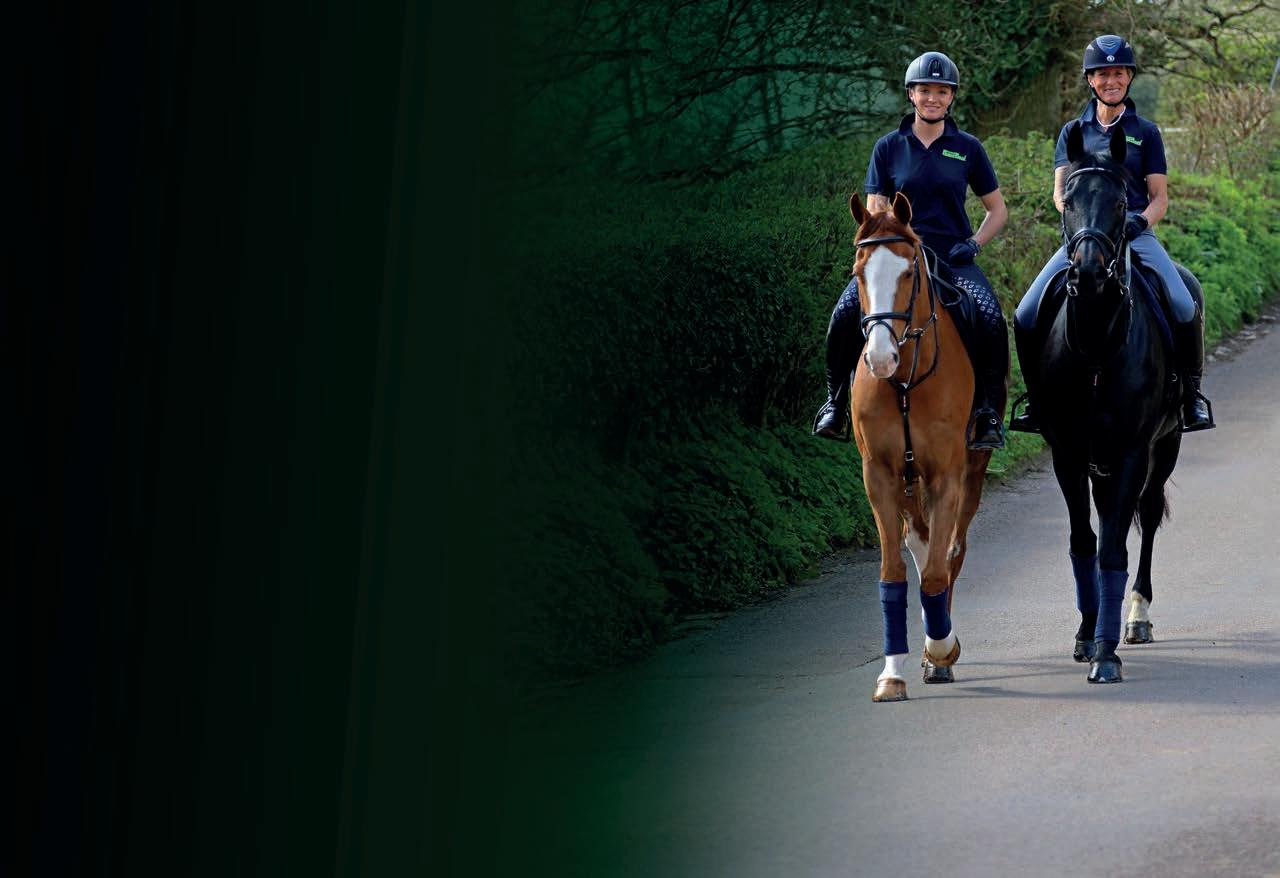
Doesn’t your horse or pony deserve the best too? HorseHage & Mollichaff Helpline: 01803 527274 www.horsehage.co.uk Follow HorseHage & Mollichaff on Facebook BY APPOINTMENT TO HER MAJESTY THE QUEEN MARK WESTAWAY AND SON MANUFACTURERS OF HORSE FORAGE
Visitors in the courtyard at Lacock Abbey and village, Wiltshire
©National Trust Images/James Dobson
Visitors walking their dog on the circular trail around the lake at Buttermere Valley, Cumbria
©National Trust Images/James Dobson
birdieWATCH THE

Attract the birds to your garden with these fantastic feeders




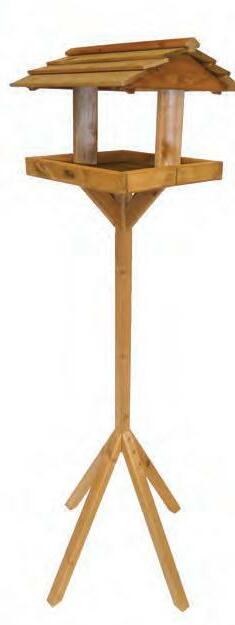




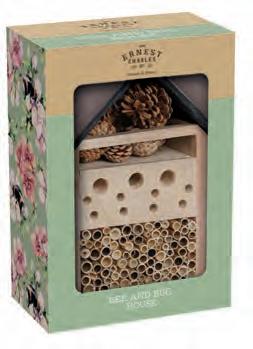

CountryStore 73 www.molevalleyfarmers.com
CHEVRON-CIRCLE-UP Honeyfield's Love Nature Fat Ball Feeder Medium £7.99
1 Honeyfield's Bird Table £24.98 Save £5 Normal price £19.98
2 Honeyfield's Alford Bird Table £42.98 Save £8 Normal price £34.98
1 2 3
3 Honeyfield's Chelmsford Bird Table £59.99 Save £10 Normal price £49.99
CHEVRON-CIRCLE-RIGHT Honeyfield's Standard Dining Station £24.98
CHEVRON-CIRCLE-RIGHT Honeyfield's Love Nature Peanut Feeder Medium £9.98
CHEVRON-CIRCLE-RIGHT Decorative Nest Box Grey £9.98
CHEVRON-CIRCLE-LEFT Squirrel Proof Seed Feeder £9.98
CHEVRON-CIRCLE-UP Squirrel Proof Peanut Feeder £9.98
Items and offers available while stocks last, or until December 24, 201919 COUNTRY LIFE
CHEVRON-CIRCLE-UP Bee & Bug House £9.98

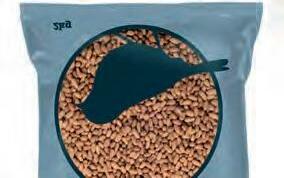
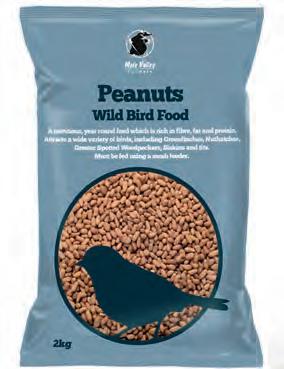

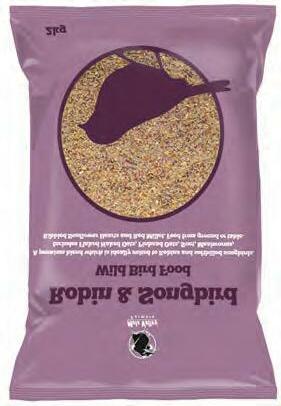



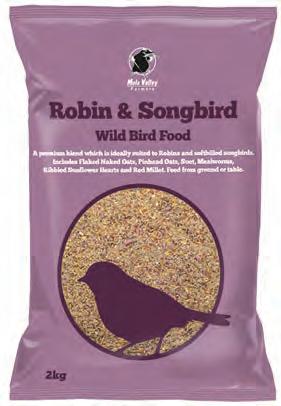




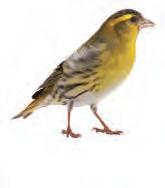

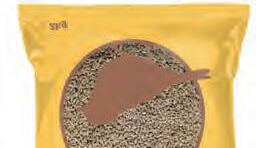
74 www.molevalleyfarmers.com Top up your feeder with nourishing treats MVF Peanuts 2kg £5.29 MVF Sunflower Hearts £4.10 MVF Nyjer Seed 2kg £6.49 birdieWATCH THE MVF Premium Wild Bird Food 2kg £3.49 MVF Robin & Songbird Food 2kg £4.49 MVF Wild Bird Food 2kg £2.99 MVF High Energy, Won't Grow Food 2kg £4.20 Items and offers available while stocks last, or until December 24, 201919
CHEVRON-CIRCLE-RIGHT
£30 Save £5 No VAT Normal price £35
Any 3 for £10
Normal price £4.99
CHEVRON-CIRCLE-LEFT
Pellets With Mealworms & Fruit Flavouring 2kg


£3.98 Save 20% Normal price £4.99
CHEVRON-CIRCLE-UP Honeyfield's Pre-filled Easy Fill & Clean Seed Feeder £4.99

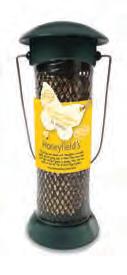
CHEVRON-CIRCLE-LEFT
Fruit & Berry Suet Block 10 pack £6.00 Save 20% Normal price £7.50

Peanut Feeder £4.99 Fat Ball Feeder £4.99
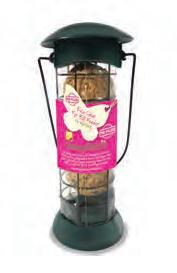

Sunflower Heart Feeder £4.99

CHEVRON-CIRCLE-LEFT MVF Fat Balls 150 Box £10.99 No VAT
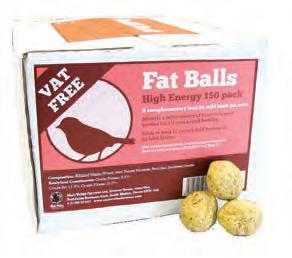
CHEVRON-CIRCLE-UP MVF Fat Balls No Nets 50 Tub £6.36 Save 20% Normal price £7.96
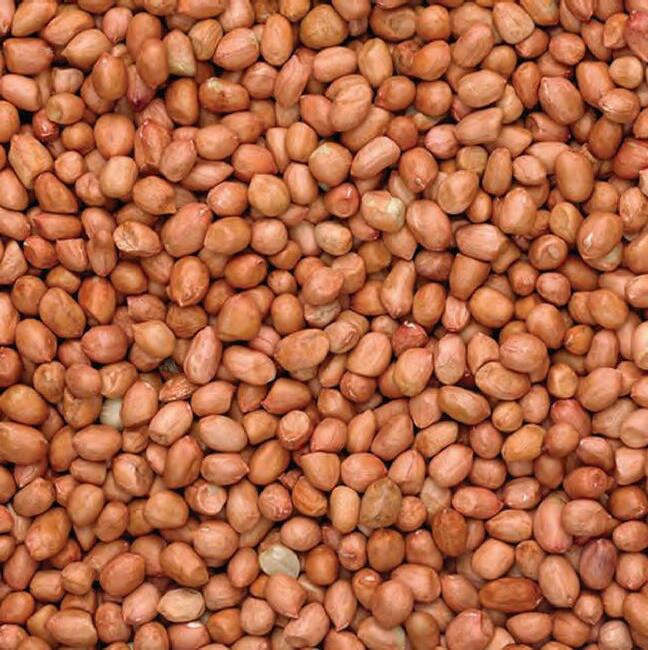


CountryStore 75
COUNTRY LIFE
MVF
MVF Suet
CHEVRON-CIRCLE-UP MVF Half Coconuts 20 Tub £16.99
Wild Bird Peanuts 25kg
Name SAY MY
Words: Abi Manning (derives from 'maningi', meaning valiant or strong)
Whoever thought up the notion of surnames?
We take it for granted that each of us has an assigned family name which forms part of our identity and rarely consider that each name was chosen for a specific reason. Yet understanding those reasons can offer a fascinating insight into our family history.
In England alone, there are more than 45,000 different surnames – each with a unique history to uncover.
Why do we have surnames?
Anglo-Saxon communities were small enough that surnames were not needed, although nicknames based on physical attributes or paternity were commonly assigned
as an identifier. Examples include the likes of Goduuinus Wachefet (Godwine Weak-feet) or Cuthbert Edmund’s Son (Cuthbert, son of Edmund).
It was after the Norman Conquest in Britain, when the population increased and more and more people began to live in communities, that surnames as we know them came into existence.
As evidenced in the Domesday Book, they were initially used only by the nobility and gentry but soon disseminated to the rest of the population (most English people had one by around 1400). The old nicknames fell out of fashion and were largely lost, whereas many Norman-assigned names still survive today.
What's happened since then?
New surnames continued to crop up after the Norman invasion and
the increase in immigration over the following years introduced a variety of yet more new names to the nation. Irish, Highland Scottish and Welsh names are largely derived from Gaelic personal names and the union of England and Wales in 1536 saw the latter adopt the English system of surnames.
Given the evolving nature of names, the road isn't always clear for surname explorers investigating their ancestry. Multiple origins can cause a stumbling block: for example, Cowell could be Irish (son of battle chief), Gaelic (son of Saint Comhghal) or English (either from the place name Cowhill or a variant on the name Cole).
Spelling can also cause confusion. Intentional amendments, lack of literacy or simple evolution have caused variation over time. Significant changes also occurred in the 19th century due to the introduction of standardised spelling.
76 CountryStore www.molevalleyfarmers.com
Whether you're a genealogy guru or family history fledgling, if you're interested in your ancestral roots, unearthing the origin of your surname can be extremely illuminating
There are seven categories of surname commonly found in the UK. Where does yours fit?
Ancestral – Les Dawson
Often given to sons of important figures in the community, male-derived (patronymic) names include the likes of Jackson (son of Jack). Femalederived (matronymic) names such as Emmott (from Emma) tended to be appointed to the daughters of unwed or widowed mothers. Scottish ancestral clan names, such as Douglas and MacDonald, also endure.
Andrews, Anderson, Benson, Davidson, Dawson, Hampson, Harrison, Jefferson, Peterson, Richardson, Robertson, Robinson, Simpson, Thompson, Williams, Wilson
Geography – Victoria Wood
This rather romantic naming method suggests the surroundings in which one's ancestors lived (Brook, Forest).
Bridge, Burn, Bush, Field, Hill, Holt, Knill, Moore, Perry, Stone, Wood
Patronage – Bill Hickman
Names that honour a patron include the likes of Kilpatrick (follower of Patrick) and Hickman (Richard's man).
Palfreyman, Putman, Rickman
Occupation – Karen Carpenter
High-flyers of the 11th century were given names to signify their important role (Bishop, Mayor). Later this stretched to craftspeople and other occupations (Mason, Potter, Farmer).
Archer, Baker, Carpenter, Cook, Cooper, Fletcher, Gardener, Knight, Major, Monk, Piper, Pope, Smith, Squire, Taylor, Wright
Characteristic – Thomas Hardy
Similar to the Anglo-Saxon practice of nicknames, these reflect a personality trait or physical feature (Short, Strong).
Black, Little, Peacock, Red, Russell, Swift, White
Place – Richard Burton
Where a person lived, worked, owned land or was born can be reflected in a surname. Some are obvious (London, Burton) but others reflect an old English place name or a more specific location (Appleton – apple orchard).
Bedford, Bristow, Duffield, Hamilton, Hampshire, Preston, Thorpe
Estate – Elizabeth Windsor
From a land-owning lineage? Many think those with a surname relating to an estate were attempting to strengthen their claim to the land. Staunton, Windsor
CountryStore 77 www.molevalleyfarmers.com CURIOUS BRITAIN

Modern mayhem
Surnames are still evolving today as people bend tradition and create new ways of identifying themselves to others. The patriarchal name passed down the family line is increasingly being eschewed in favour of creating double barrelled names, blending surnames (e.g. combining O'Dowd and Porter to become O'Porter), retaining a maiden name or acquiring a woman's surname instead of a man's.
Future generations attempting to uncover their family history will see a fascinating snapshot of the nature of surname identity when uncovering the varied name choices of their ancestors from the 20th and 21st centuries.
International affairs
How common are you?
The three most common surnames in Britain and Ireland are Smith (500,000), Jones (400,000), Williams (nearly 300,000)
In Somalia, children have no family name but are given three personal names: their own name, their father's name, and their paternal grandfather's name.
In Afghanistan, people traditionally have only a first name. Last names will very occasionally be given which relate to place of birth, tribe, profession or honorific quality.
In China, family names precede a person's given name. Around 70 per cent of the Chinese population have one of just 15 family names, which include Pan, Cheng and Tang.
In Russia, names have three parts: a given name, a patronymic middle name and the father's surname.

Surnames: a protected species
On the brink of extinction (just a handful left)
Miracle, Relish, Birdwhistle
Endangered (under 200 left)
Ajax, Gastrell, Slora
Missing, presumed extinct

Bread, Spinster, Bythesea

CURIOUS BRITAIN
CountryStore 79
Quirky ISLANDERS
Wild and wonderful British traditions and pastimes
Christmas CRACKERS
Nothing ignites the seasonal spirit quite like a homely tradition, whether that's the family's annual Monopoly showdown or a hearty rendition of Auld Lang Syne. Around the nation, however, there are some rather quirkier Christmas customs ...
Words: Abi Manning
Mummer Mia
Ever thought of celebrating the season with a spot of cross dressing and mask wearing before surprising the neighbours with a merry song and dance? Mumming (from the German vermummen, meaning 'to wrap up') was certainly the early Pagans’ idea of a good time. The costumed capers continued until party pooper Henry VIII passed a law which sentenced mask wearers to prison.
Mummers plays are still performed by enthusiastic actors and singers across the UK during the festive season.
Tolling the devil’s knell
Dewsbury’s devilish custom sees energetic bell ringers toll the church bell once for every year since Christ’s birth (that’s 2,019 times this year), ensuring the final stroke rings out at midnight. Local legend traces the tradition back to Christmas 1434 when an angry knight threw a lad in the pond for failing to attend church. In penance the knight donated the bell and asked for it to be rung on Christmas Eve to atone for his sin.
Polar paddling
Start Christmas morning with a splash by joining over a thousand brave bathers – many donning their brightest and boldest seasonal attire – on the beach at Porthcawl in South Wales. Not up for actually taking part in the annual swim at Sandy Bay? Wrap up and join the thousands who gather to watch them.
The Kirkwall Ba’
‘It’s not so much a game … more a civil war’ said the BBC in 1982 of
the Kirkwall Ba’, Orkney’s annual Christmas Eve and Hogmanay mass footballing battle. Competitive Orcadians are divided into ‘Uppies’ or ‘Doonies’ with the sole aim of getting the ba’ (a handmade, cork-filled leather ball) to the south or north end of the town – any way they can.
Hop to it
Clock-watching Yorkshire folk make sure they say the phrase ‘black rabbits’ three times before the clock chimes midnight on New Year's Eve – to ward off evil spirits, of course. As the first moments of January 1 arrive, ‘white rabbits’ is said three times to bring good luck for the coming year.
Baked blessings
At New Year, medieval farmers would dance around a cow and prop a cake on its horns. If the cake fell forward, good luck would abound (apart from having a squashed cake). But woe betide those whose cake fell backward, as it signalled bad luck to come. In Ireland, folk supposedly bang a Christmas bread against a wall to ward off evil spirits before New Year. Each to their own.
80 CountryStore www.molevalleyfarmers.com
CURIOUS BRITAIN
Clockwise from top left: Mummers' parade; Mummers' masks; Porthcawl Swim; The Kirwall Ba', Christmas 1898; Johnnie Walls, boys' Kirkwall Ba' winner, 1932




 Images courtesy of Orkney Library and Archive
Images courtesy of Orkney Library and Archive
Images courtesy of Orkney Library and Archive
Images courtesy of Orkney Library and Archive
WIN £120 worth of Vedoneire clothing
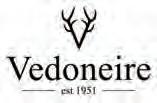



Quality clothing, made with quiet flair and a simple philosophy: that being different comes from within. With six decades of expertise, Vedoneire are masters at making contemporary clothing for men and women that speaks volumes, without making a scene. To be in with a chance of winning, simply fill in the form below and send to: Sarah Barclay, Moorland House, Station Road, South Molton, EX36 3BH or visit www.molevalleyfarmers.com/countrystore Name
Bravely face the cold this winter with our stylish seasonal finds



82 CountryStore www.molevalleyfarmers.com
Bretby Gilet Aubergine £99.95
Shoveler Quilt Jacket Olive £129
Wool Crew Jumper Blue £69.95
Langdale Gilet Olive £79.94
Nelson V Neck Jumper Navy £74.95
Barbour
Prestbury Wax Jacket Rust £199
Address Postcode ..................................................................................... Account number Tel Email Closing date for entries is January 31, 2020 So you get the best value from Mole Valley Farmers and its associated companies, we would like to send you information and offers via email, text, phone or mail. Your consent can be withdrawn at any time and we never share your information with 3rd parties. Required * Yes I’d like to receive updates and offers No I do not wish to be contacted How would you like to hear from us? Phone Text Email Mail
Brakeburn
WIN £250 worth of Weird Fish clothing






Weird Fish was born with a simple mission: to produce well priced, well made and distinctive clothes that become instant feel-good favourites. The brand also prides itself on its clean and green work ethic. To be in with a chance of winning, simply fill in the form below and send to: Sarah Barclay, Moorland House, Station Road, South Molton, EX36 3BH or visit www.molevalleyfarmers.com/countrystore

Name

CountryStore 83 www.molevalleyfarmers.com
Selected stores only. Please call for availability
Fairisle Scarf Multi £29.99
Denim Skirt Blue £39.98
Feather T Shirt Cinnamon
Fairisle Dress Navy £49.99
Classic Quilt Jacket Navy £89.99
Stripe Jumper Multi £44.99
for entries
January 31, 2020
you get the best value from Mole Valley Farmers and its associated companies, we would like to send you information and offers via email, text, phone or mail. Your consent can be withdrawn at any time and we never share your information with 3rd parties.
* Yes I’d like to receive updates and offers
I do not wish to be contacted
would you like to hear from us? Phone Text Email Mail
Address Postcode Account number...................................................................... Tel Email Closing date
is
So
Required
No
How
Hoggs of Fife
WIN a Hoggs of Fife Kincraig Field Jacket
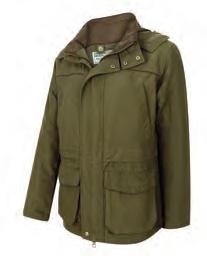




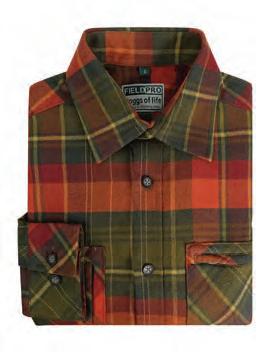

The Kincraig Field Jacket is built to withstand anything the British weather can throw at you when you're out on a day's shoot. It's equally ideal for dog walking, due to its fully waterproof, breathable and lightweight but abrasion resistant qualities. To be in with a chance of winning, simply fill in the form below and send to: Sarah Barclay, Moorland House, Station Road, South Molton, EX36 3BH or visit www.molevalleyfarmers.com/countrystore

Name Address....................................................................................... Postcode
Selected stores only. Please call for availability
84 CountryStore www.molevalleyfarmers.com
King Jacket Dark Green £69.95
Field Pro Gloves £24.95
Kincraig Waterproof Trouser Olive £89.95
Ambassador Shirt Cream £34.96
Autumn Hunt Shirt £34.94
Kincraig Waterproof Cap Olive £24.95
Account number
................................................................................................. Email Closing date for entries is January 31, 2020
you get the best value from Mole Valley Farmers and its associated companies, we would like to send you information and offers via email, text, phone or mail. Your consent can be withdrawn at any time and we never share your information with 3rd parties.
* Yes I’d like to receive updates and offers No I do not wish to be contacted How would you like to hear from us? Phone Text Email Mail
Tel
So
Required
WIN £250 worth of Joules clothing








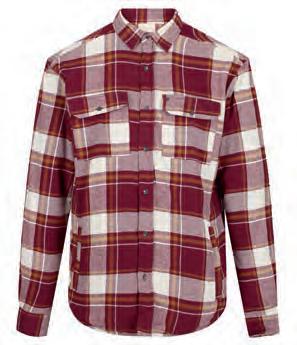
Joules is well-known for its bright and colourful clothing that perfectly balances style and practicality. Adding twists to classic pieces the quality clothing speaks for itself To be in with a chance of winning, simply fill in the form below and send to: Sarah Barclay, Moorland House, Station Road, South Molton, EX36 3BH or visit www.molevalleyfarmers.com/countrystore
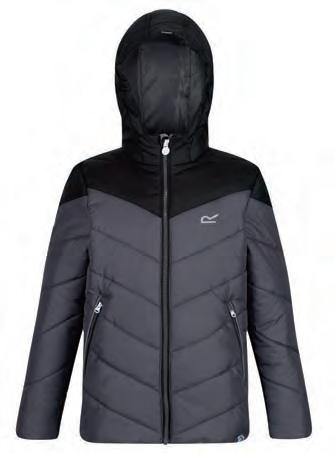
CountryStore 85 www.molevalleyfarmers.com
EYE SPY
Ladies Haniska Fleece Light Vanilla £19.99
Regatta
Ladies Metallia II Jacket Beetroot £44.99
Kids Braylee Jacket Navy Cosmic £24.99
Ladies Makala Shirt Navy Floral £19.99 Also available in Red Floral
Kids Melor Fleece Dark Khaki £14.99
Phyllon Waterproof Jacket Bayleaf £49.99
Mens Tygo Check Shirt Burgundy £24.98 Also available in Green
Kids Lofthouse Jacket Magnet £21.99
Name ........................................................................................... Address Postcode Account number Tel Email............................................................................................ Closing date for entries is January 31, 2020 So you get the best value from Mole Valley Farmers and its associated companies, we would like to send you information and offers via email, text, phone or mail. Your consent can be withdrawn at any time and we never share your information with 3rd parties. Required * Yes I’d like to receive updates and offers No I do not wish to be contacted How would you like to hear from us? Phone Text Email Mail
VetASK THE
My dog loves chasing the conkers I throw for her. When I mentioned this to my neighbour he said that conkers are poisonous to dogs. Is he right? It’s never been a problem.
Colourful autumn afternoons and frosty winter mornings make exercising your dog a delight in the colder months, but there are dangers pet owners should look out for. We put readers’ questions to the pros at Molecare Pet Vets
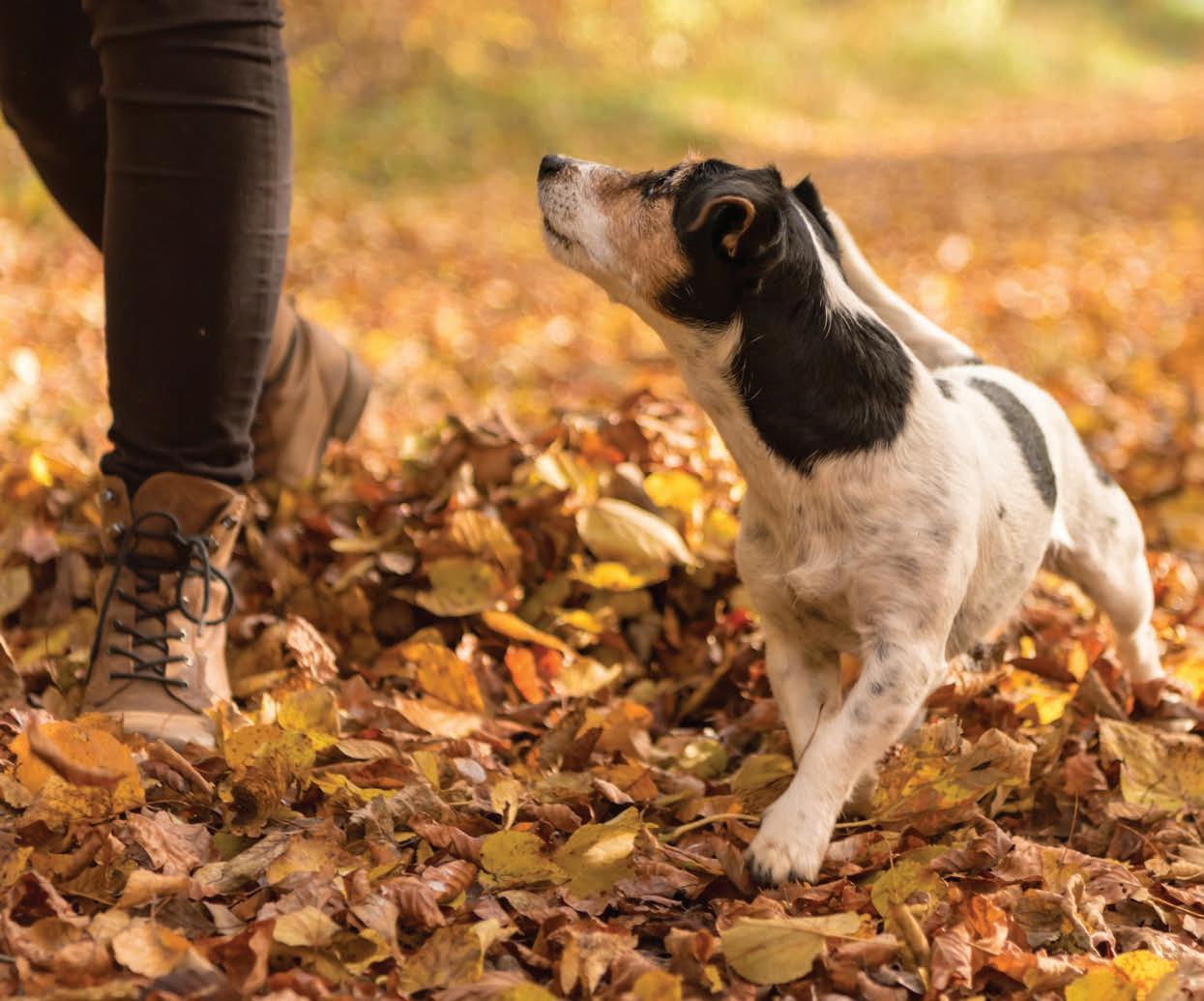
Then you’ve been very lucky - so far. All parts of the horse chestnut tree, including the nuts/conkers, are toxic as they contain a chemical called aesculin, which can cause vomiting, dribbling, wobbliness and a lack of appetite in dogs. Conkers are also a choking risk and, if swallowed whole, can block the stomach or intestines.
Acorns are also a danger to dogs because of the tannic acid they contain, though there’s more in younger, green acorns than brown
86 CountryStore www.molevalleyfarmers.com
'All parts of the horse chestnut tree, including the conkers, are toxic '
ones. A one-off feast of acorns is likely to cause vomiting and diarrhoea (both of which may be bloody and cause the dog to become sleepy), while eating acorns regularly can cause kidney or liver problems. And, like conkers, large amounts may cause a blockage in the intestines. This autumn take a ball with you to the park instead.
During a particularly icy spell last winter my dog had very sore feet for a day or two and had to be kept in. What could have caused this?
Road salt can cause irritation, pain and burns on your pet’s feet, so be very vigilant. Avoid it if at all possible and always rinse your dog’s feet after walks when road salt has recently been scattered.
All pet owners should also watch out for spills of antifreeze. Ethylene glycol is the chemical found in radiator and brake fluid, as well as in some screen wash and it has a sweet taste so it can be very palatable to animals. However, it's toxic and causes severe kidney damage within hours of ingestion.
If you notice that your pet is very quiet and/or still, is vomiting, or is wobbly as if drunk (or even falling over), visit your vet immediately. Signs can progress to fitting and problems with urination.
We got a collie puppy in March and have enjoyed lots of summer walks. Is there anything we need to know about keeping her safe during winter walks?
First off, some basic safety for you and your pet: make sure you’re both visible to car drivers and, if walking at night, consider an LED collar or pendant for your dog.
Always keep dogs on the lead when close to rivers and the sea to prevent them getting swept away. Upsetting as it may be, if your pet gets into trouble in a fast-flowing river, DO NOT jump in to save them – you could end up drowning. Thin ice on lakes is also a danger so don’t let your dog play on it and if they do fall in, don’t put yourself at risk.
When you get home after a dog walk, pay special attention to grooming. Mud and snow can cause your pet’s hair to mat, which can be uncomfortable (even painful) and result in skin infections. It’s important to brush your pet’s hair right down to the skin, as the coat can look smooth on the surface but still be matted underneath – pay particular attention to the armpits, tummy and around the tail and back legs.

Last winter my friend’s dog sadly died of leptospirosis. I’d never even heard of it before then. How do I protect my own dogs?
Leptospirosis can cause liver and kidney failure and is incredibly serious. It can also be transmitted to humans. It’s spread mainly through rodent urine which can accumulate in wet areas through water run-off such as flood waters – which we tend to see more of in the colder months.
A fully vaccinated dog should be protected against leptospirosis, but if their vaccines are out of date (we recommend administering them yearly) or, if you’ve opted not to vaccinate at all, they may be at risk of contracting it.
In the absence of vaccines, avoid areas where rodents may reside, as well as flood waters and wet areas. This is tricky in the winter, which is why we recommend vaccination.
If you would like to contact our Pet Vets call 01626 835002 or, if you have any questions you'd like answered, email countrystoremag@molevalleyfarmers.com

www.molevalleyfarmers.com PET CARE
Country canines' DREAM DIET
Country and working dogs with active lifestyles need extra special nutrition to keep them in optimum health and condition.

That’s why we’ve introduced our nutrient-dense Country Dog range. Made from premium ingredients and quality UK meats and cereals, it’s aimed specifically at dogs suited to farm jobs or country life.
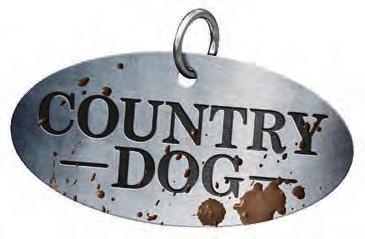

Formulated in the UK by expert canine nutritionists, the new wet and dry food range keeps hungry hounds happy from puppyhood right through to adult life. Choose from value tins, premium trays, small and large bags, plus our first ever Country Dog treats.
Whether your dog works, joins you on long hikes or just likes to investigate the great outdoors, it will benefit from antioxidants to promote
alertness, plus essential vitamins and minerals to support immunity, optimum growth and bone, teeth and skin health.
The recipes focus on increased levels of top quality highly digestible proteins. Both Classic and Premium contain fresh chicken, lamb or salmon alongside prebiotic fibres to promote digestion. There’s also glucosamine and chondroitin to support strong and flexible joints as well as other supplements to encourage a healthy coat, improve alertness and support cognitive health. Country Dog includes no wheat, soya or dairy. Visit your local store to learn more about the new range and pick up a leaflet featuring detailed information on each of the products and recipes in the Country Dog range. Don’t forget your Country Dog loyalty card: when you buy seven big bags you get an eighth free.
Original Adult 1+ years for working and sporting dogs
A complete balanced formula, this contains all the essential vitamins needed to provide a complete and nutritious food.
Classic Adult 1+ years for dogs on a wheat-free diet
Our entry level hypoallergenic dog food is formulated without wheat, while omega oils from flaxseed help nourish skin and aid coat health. Classic is a complete, balanced formulation to meet daily energy requirements.
Premium Adult 1+ years for dogs with higher energy requirements
A quality dog food made with freshly prepared chicken or lamb – both easily digestible protein sources for adult dogs. The prebiotic and yucca extract aid digestive health and general well-being. Includes a balance of protein and fat for energy.
Premium Adult 7+ years for older dogs
The new recipe is made with freshly prepared chicken and contains enhanced levels of glucosamine and chondroitin to support ageing joints. Lower protein and fat meet the needs of dogs with reduced energy requirements.
Premium Puppy with extra protein especially for growing puppies
Designed to give your puppy the best start in life, it contains essential vitamins and minerals to aid a strong immune system along with glucosamine and chondroitin to help joint growth. The high protein and fat content supports brain development and muscle growth.
Premium Grain Free for dogs with sensitive digestion

A delicious alternative to foods containing grains, with the added benefit of being high in omega oils. It is especially suitable for dogs with sensitive digestion and is made using quality, freshly prepared salmon and sweet potato.

88 CountryStore www.molevalleyfarmers.com PET CARE




THE NEW RANGE FOR
COUNTRY DOGS FIND YOUR LOCAL STORE AT MOLEONLINE.COM
WORKING &
L
S

M £19.99 Was £36.49


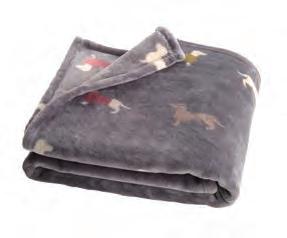




L £25 Was £46

90 CountryStore www.molevalleyfarmers.com
Don't forget your four-legged friends during the festive celebrations Items and offers available in selected stores while stocks last
Pet STORE
Bed
S–M
L–XL
CHEVRON-CIRCLE-UP Faux Fur Donut Cat Bed £28
CHEVRON-CIRCLE-UP
Hessian Faux Fur
Dog
Duvet
£45
£60
One size
Chevron-Circle-Down Christmas Reindeer Bandana with Squeaky Nose
£8
Save over 25% One size £6.50 Was £9
Farm Animal Print Pet Blanket Save over 25% One size £6.50 Was £9
Dog Bed
over 45%
CHEVRON-CIRCLE-UP Dachshund Print Pet Blanket
CHEVRON-CIRCLE-RIGHT
CHEVRON-CIRCLE-RIGHT
Highland Cow
Save
S £14.99 Was £28
M £19.99 Was £36.49
£25 Was £46
Winter
CHEVRON-CIRCLE-UP Rosewood
Christmas
Dog Fleece Small £8
Medium £9
Large £10
over 45%
CHEVRON-CIRCLE-LEFT Dog Bed Blue
Tweed Save
£14.99 Was £28
Chevron-Circle-Down House of Paws
Christmas Plush Dog Toy

Majestic Lion £7.50
Reindeercorn Multi Squeaker £7
Turkey £8.50

Merry Gin-Mas! £8

CHEVRON-CIRCLE-RIGHT Christmas Dreamies Cat Stocking £3

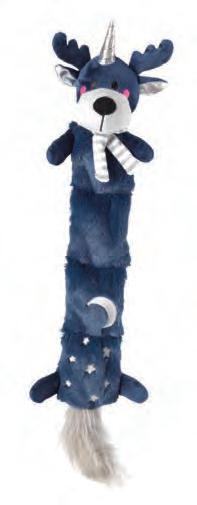
CHEVRON-CIRCLE-RIGHT Christmas Pedigree Dog Stocking £3


CHEVRON-CIRCLE-LEFT House of Paws Star Print Cream Dog Bowl

Small £7.50
Medium £9
Large £12
CHEVRON-CIRCLE-LEFT Rosewood Christmas Bow Tie For Dogs

Small £3
Large £4
Chevron-Circle-Down Horseware Waterproof Dog Rug, Excalibur, Plum & Silver

XXS-XS £16.99
S-M £18.98
L-XXL £22.99
Chevron-Circle-Down Horseware Waterproof Dog Rug, Navy

X Small £24.98
Small £25.99
Medium £26.99
Large £27.98
CHEVRON-CIRCLE-UP Christmas Red
Mice Cat Toy, 2 Pack £3.50
Items and offers available in selected stores while stocks last

CountryStore 91 www.molevalleyfarmers.com
PET CARE
Store LIST
MOLE COUNTRY STORES
ALNWICK
Chestnut Close, Lionheart Enterprise Park, Alnwick, Northumberland, NE66 2EX Tel: 01665 604656 alnwick@molecountrystores.com
ANDOVER
Unit 7, Andover Trade Park, Joule Road, Andover, Hampshire, SP10 3ZL Tel: 01264 323482 andover@molecountrystores.com
BASINGSTOKE
Wildmoor Lane, Sherfield-on-Loddon, Basingstoke, Hampshire, RG27 0HA Tel: 01256 882776 basingstoke@molecountrystores.com
BERKELEY Berkeley, Gloucestershire, GL13 9ES Tel: 01453 810220 berkeley@molecountrystores.com
BILLINGSHURST
Frenches Corner, Billingshurst, West Sussex, RH14 9LR Tel: 01403 782031 billingshurst@molecountrystores.com
BUCKINGHAM
The Creamery, Brackley Road, Buckingham, Buckinghamshire, MK18 1JD Tel: 01280 816011 enquiries@coxandrobinson.co.uk
BURY ST. EDMUNDS
Chapel Pond Hill, Bury St. Edmunds, Suffolk, IP32 7HT Tel: 01284 335220 bury@molecountrystores.com
CANTERBURY
Broad Oak Road, Canterbury, Kent, CT2 7SN Tel: 01227 781398 canterbury@molecountrystores.com
CIRENCESTER
A419 Agricultural Centre, Spine Road Junction, Cirencester, Gloucestershire, GL7 5QA Tel: 01285 869881 cirencester@molecountrystores.com
COLCHESTER
Birchwood Farm, Birchwood Road, Dedham, Colchester, Essex, CO7 6HX Tel: 01206 237845 colchester@molecountrystores.com
DARLEY DALE
Brookside, Dale Road North, Darley Dale, Matlock, Derbyshire, DE4 2HX Tel: 01629 705125 darley.dale@molecountrystores.com
DEREHAM Hall Lane, Greens Road Industrial Estate, Dereham, Norfolk, NR20 3TG Tel: 01362 654958 dereham@molecountrystores.com
DEVIZES
Nursteed Trading Estate, Mill Road, Devizes, Wiltshire, SN10 3EW Tel: 01380 721594 devizes@molecountrystores.com
DORCHESTER
Grove Trading Estate, Dorchester, Dorset, DT1 1ST Tel: 01305 262141 dorchester@molecountrystores.com
DRIFFIELD Albion Mills, Albion Street, Driffield, East Yorkshire, YO25 6QA Tel: 01377 249700 driffield@molecountrystores.com
FAULD
Fauld Lane, Fauld, near Tutbury, Burton upon Trent, Staffordshire, DE13 9HR Tel: 01283 810137 fauld@molecountrystores.com
GILLINGHAM Station Road, Gillingham, Dorset, SP8 4QQ Tel: 01747 824933 gillingham@molecountrystores.com
HEATHFIELD Station Road, Heathfield, East Sussex, TN21 8DJ Tel: 01435 866938 heathfield@molecountrystores.com
HEXHAM Parkwell, Corbridge Road, Hexham, Northumberland, NE46 1UL Tel: 01434 613930 hexham@molecountrystores.com
LEYBURN
Unit 4, Leyburn Business Park, Harmby Road, Leyburn, North Yorkshire, DL8 5QA Tel: 01969 621300 leyburn@molecountrystores.com
LYMINGTON Mount Pleasant Lane, Sway Road, Lymington, Hampshire, SO41 9ZS Tel: 01590 676633 lymington@molecountrystores.com
MARKET RASEN
Gallamore Lane, Market Rasen, Lincolnshire, LN8 3HA Tel: 01673 262800 market.rasen@molecountrystores.com
MELTON MOWBRAY
1 Snow Hill, Melton Mowbray, Leicestershire, LE13 1PD
Tel: 01664 498810 melton.mowbray@molecountrystores.com
NEWARK
Malt Park, Maltkiln Lane, Newark, Nottinghamshire, NG24 1HN Tel: 01636 556690 newark@molecountrystores.com
NEWBURY
Hectors Way, Newbury, Berkshire, RG14 5AB Tel: 01635 43436 newbury@molecountrystores.com
NEWPORT, ISLE OF WIGHT Southbank, Blackwater Road, Newport, Isle of Wight, PO30 3BG
Tel: 01983 524351 newport@molecountrystores.com
PIERCEBRIDGE
Cock Lane, Piercebridge, Darlington, County Durham, DL2 3TJ Tel: 01325 504621 piercebridge@molecountrystores.com
REDHILL
Kings Mill Lane, South Nutfield, Redhill, Surrey, RH1 5NB Tel: 01737 823205 redhill@molecountrystores.com
RIPLEY
Scarah Mill, Fountains Road, Ripley, Harrogate, North Yorkshire, HG3 3EB Tel: 01423 774400 ripley@molecountrystores.com
ROMSEY
Alma Road, Romsey, Hampshire, SO51 8ED Tel: 01794 514426 romsey@molecountrystores.com
SALISBURY
Churchfields Road, Salisbury, Wiltshire, SP2 7PP Tel: 01722 336886 salisbury@molecountrystores.com
STAMFORD Uffington Road, Stamford, Lincolnshire, PE9 2HD Tel: 01780 758722 stamford@molecountrystores.com
STOKESLEY
The Auction Mart, Station Road, Stokesley, North Yorkshire, TS9 7AB Tel: 01642 717600 stokesley@molecountrystores.com
THIRSK
Thirsk Industrial Park, off York Road, Thirsk, North Yorkshire, YO7 3BX Tel: 01845 570020 thirsk@molecountrystores.com
ULVERSTON
North Lonsdale Road Industrial Estate, Ulverston, Cumbria, LA12 9DW Tel: 01229 861414 greenodd@molecountrystores.com
WICKHAM
Fareham Road, Wickham, Fareham, Hampshire, PO17 5DE Tel: 01329 835010 wickham@molecountrystores.com
WINCHESTER Easton Lane, Winnall, Winchester, Hampshire, SO23 7RU Tel: 01962 863007 winchester@molecountrystores.com
WORKSOP 8 Claylands Avenue, Dukeries Industrial Estate, Worksop, Nottinghamshire, S81 7BQ Tel: 01909 498690 worksop@molecountrystores.com
MOLE VALLEY FARMERS
BRIDGWATER
Bath Road, Bawdrip, Bridgwater, Somerset, TA7 8PE Tel: 01278 424240 bridgwater@molevalleyfarmers.com
CULLOMPTON
Honiton Road, Stoneyford, Cullompton, Devon, EX15 1NU Tel: 01884 34333 cullompton@molevalleyfarmers.com
FROME
Standerwick, Frome, Somerset, BA11 2PN Tel: 01373 831114 frome@molevalleyfarmers.com
GWINEAR
20 Cathebedron Road, Carnhell Green, Camborne, Cornwall, TR14 0NB Tel: 01209 831320 gwinear@molevalleyfarmers.com
HOLSWORTHY Underlane, Holsworthy, Devon, EX22 6EE Tel: 01409 253014 holsworthy@molevalleyfarmers.com
LISKEARD
Moorswater Industrial Estate, Liskeard, Cornwall, PL14 4LN Tel: 01579 340034 liskeard@molevalleyfarmers.com
NEWTON ABBOT Battle Road, Heathfield Industrial Estate, Newton Abbot, Devon, TQ12 6RY Tel: 01626 836555 newton.abbot@molevalleyfarmers.com
PENZANCE
Ludgvan Leaze, Crowlas, Penzance, Cornwall, TR20 8AA Tel: 01736 711884 penzance@molevalleyfarmers.com
SOUTH MOLTON
Pathfields Business Park, South Molton, Devon, EX36 3LH Tel: 01769 574477 south.molton@molevalleyfarmers.com
ST COLUMB St Columb Industrial Estate, St Columb Major, Cornwall, TR9 6SF Tel: 01637 881115 st.columb@molevalleyfarmers.com
TAVISTOCK
Unit B, West Devon Business Park, Brook Lane, Tavistock, Devon, PL19 9DP Tel: 01822 614176 tavistock@molevalleyfarmers.com
YEOVIL
Sherborne Road, Yeovil, Somerset, BA21 5BJ Tel: 01935 420971 yeovil@molevalleyfarmers.com
MOLE FARM DIRECT
BRIDGEND
Unit 5, North Road, Bridgend Industrial Estate, Bridgend, South Wales, CF31 3TP Tel: 01656 665555 bridgend.enquiries@molefarmdirect.com
COYLTON
Shieldmains Mill, Coylton, Ayrshire, KA6 6LZ Tel (mill): 0800 783 3633 Tel (store): 01292 434537 coylton@molecountrystores.com
92 CountryStore www.molevalleyfarmers.com





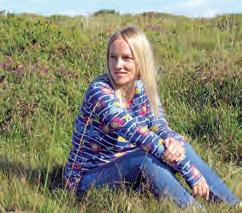
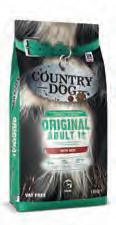
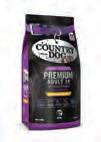


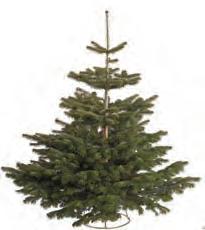




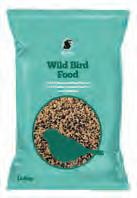


CountryStore 93 www.molevalleyfarmers.com Wilkinson Sword garden tools (offer valid until 24/12/19) Brought to you by Mole Valley Farmers Save£5 Nordmann cut Christmas trees Excludes Early Bird Offer (offer valid from 1/12/19 to 24/12/19) Save10% All footwear Excluding wellingtons, existing offers and sale lines (offer valid until 24/12/19) Save10% Country Dog food (offer valid until 24/12/19) Save£10 Save20% Lazy Jacks clothing range (offer valid until 24/12/19) Save10% Fireside accessories (offer valid until 24/12/19) SAVE MONEY at your local country store Stihl cordless products from Lithium-Ion and Lithium-Ion Compact range (offer valid until 24/12/19) Save10% Save£5 Laundry powder, liquid and liquipods (offer valid until 24/12/19) Save10% Mole Valley Farmers Wild Bird Food 12.6kg (offer valid until 24/12/19)
SAVE MONEY at
your local country store

Terms & conditions
This voucher can only be used in branches of Mole Valley Farmers and Mole Country Stores. Voucher is valid for one use only, is subject to availability and items in stock and cannot be used in conjunction with any other voucher, offer or member discount. Prices are inclusive of VAT unless otherwise stated. Offer is not open to employees of Mole Valley Farmers and associated companies. Please present this voucher with your purchases at the till. Not all products available at all stores, please check before travelling to avoid disappointment. Valid till 24/12/19.
Terms & conditions
This voucher can only be used in branches of Mole Valley Farmers and Mole Country Stores. Voucher is valid for one use only, is subject to availability and items in stock and cannot be used in conjunction with any other voucher, offer or member discount. Prices are inclusive of VAT unless otherwise stated. Offer is not open to employees of Mole Valley Farmers and associated companies. Please present this voucher with your purchases at the till. Not all products available at all stores, please check before travelling to avoid disappointment. Valid till 24/12/19.
Terms & conditions
This voucher can only be used in branches of Mole Valley Farmers and Mole Country Stores. Voucher is valid for one use only, is subject to availability and items in stock and cannot be used in conjunction with any other voucher, offer or member discount. Prices are inclusive of VAT unless otherwise stated. Offer is not open to employees of Mole Valley Farmers and associated companies. Please present this voucher with your purchases at the till. Not all products available at all stores, please check before travelling to avoid disappointment. Valid till 24/12/19.
Terms & conditions
This voucher can only be used in branches of Mole Valley Farmers and Mole Country Stores. Voucher is valid for one use only, is subject to availability and items in stock and cannot be used in conjunction with any other voucher, offer or member discount. Prices are inclusive of VAT unless otherwise stated. Offer is not open to employees of Mole Valley Farmers and associated companies. Please present this voucher with your purchases at the till. Not all products available at all stores, please check before travelling to avoid disappointment. Valid till 24/12/19.
Terms & conditions
This voucher can only be used in branches of Mole Valley Farmers and Mole Country Stores. Voucher is valid for one use only, is subject to availability and items in stock and cannot be used in conjunction with any other voucher, offer or member discount. Prices are inclusive of VAT unless otherwise stated. Offer is not open to employees of Mole Valley Farmers and associated companies. Please present this voucher with your purchases at the till. Not all products available at all stores, please check before travelling to avoid disappointment. Valid till 24/12/19.
Terms & conditions
This voucher can only be used in branches of Mole Valley Farmers and Mole Country Stores. Voucher is valid for one use only, is subject to availability and items in stock and cannot be used in conjunction with any other voucher, offer or member discount. Prices are inclusive of VAT unless otherwise stated. Offer is not open to employees of Mole Valley Farmers and associated companies. Please present this voucher with your purchases at the till. Not all products available at all stores, please check before travelling to avoid disappointment. Valid from 1/12/19 - 24/12/19
Terms & conditions
This voucher can only be used in branches of Mole Valley Farmers and Mole Country Stores. Voucher is valid for one use only, is subject to availability and items in stock and cannot be used in conjunction with any other voucher, offer or member discount. Prices are inclusive of VAT unless otherwise stated. Offer is not open to employees of Mole Valley Farmers and associated companies. Please present this voucher with your purchases at the till. Not all products available at all stores, please check before travelling to avoid disappointment. Valid till 24/12/19.
Terms & conditions
This voucher can only be used in branches of Mole Valley Farmers and Mole Country Stores. Voucher is valid for one use only, is subject to availability and items in stock and cannot be used in conjunction with any other voucher, offer or member discount. Prices are inclusive of VAT unless otherwise stated. Offer is not open to employees of Mole Valley Farmers and associated companies. Please present this voucher with your purchases at the till. Not all products available at all stores, please check before travelling to avoid disappointment. Valid till 24/12/19.
Terms & conditions
This voucher can only be used in branches of Mole Valley Farmers and Mole Country Stores. Voucher is valid for one use only, is subject to availability and items in stock and cannot be used in conjunction with any other voucher, offer or member discount. Prices are inclusive of VAT unless otherwise stated. Offer is not open to employees of Mole Valley Farmers and associated companies. Please present this voucher with your purchases at the till. Not all products available at all stores, please check before travelling to avoid disappointment. Valid till 24/12/19.









94 CountryStore www.molevalleyfarmers.com Brought to you by Mole Valley Farmers
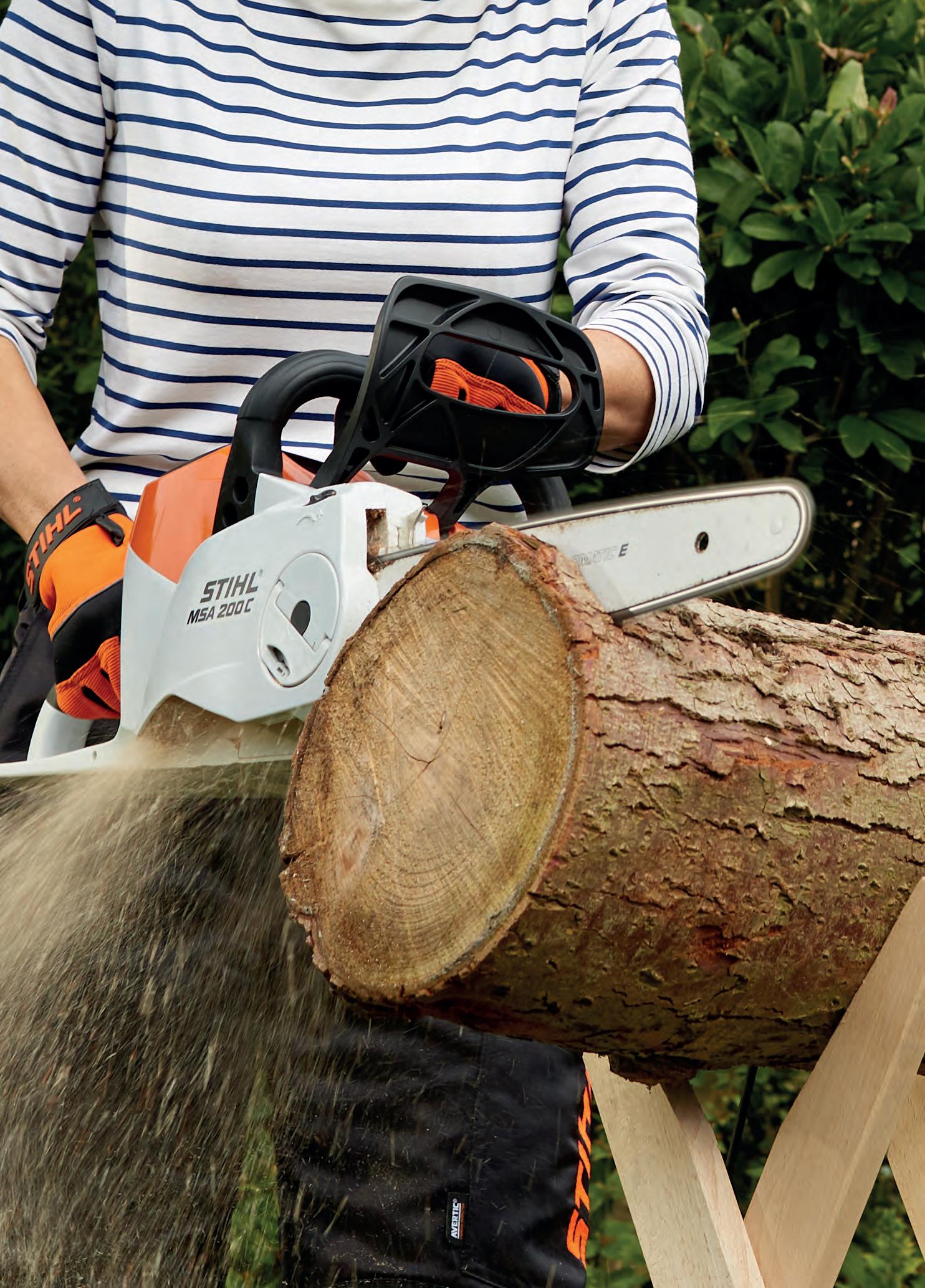



buy a stihl chainsaw. GET free cutting edge accessories. — BUY SELECTED STIHL CHAINSAWS AND GET YOUR HANDS ON THESE FANTASTIC FREE ACCESSORIES! STIHL and Mole Valley Farmers Ltd reserve the right to substitute free accessories offered in this promotion for alternative suitable tools. While stocks last. Full terms and conditions available at www.stihl.co.uk. FREE ACCESSORIES WORTH UP TO £94RRP Offer 1: Buy a MS 180, MS 181, MSA 160, MSA 200 and receive a FREE spare chain and a FUNCTION Basic helmet worth up to £62.50. Offer 2: Buy a MS 211, MS 231, MS 251 and receive a FREE spare chain, a FUNCTION Basic helmet AND a MEGACUT pruning saw worth up to £94. BUY SELECTED STIHL CHAINS WS AND receivefree accessories

WHATEVER THE WEATHER. Featured style Derwent II
YOUR PERFECT COMPANION
































































































































































 Words: Clare Hunt
Words: Clare Hunt









 Vicky Smith with Bart
Vicky Smith with Bart

















































 Words: Rosanna Rothery
Words: Rosanna Rothery




































 Words: Pat Keenor
Words: Pat Keenor


















































 Words: Kathryn Lewis
Words: Kathryn Lewis























































 Images courtesy of Orkney Library and Archive
Images courtesy of Orkney Library and Archive
Images courtesy of Orkney Library and Archive
Images courtesy of Orkney Library and Archive





























































































